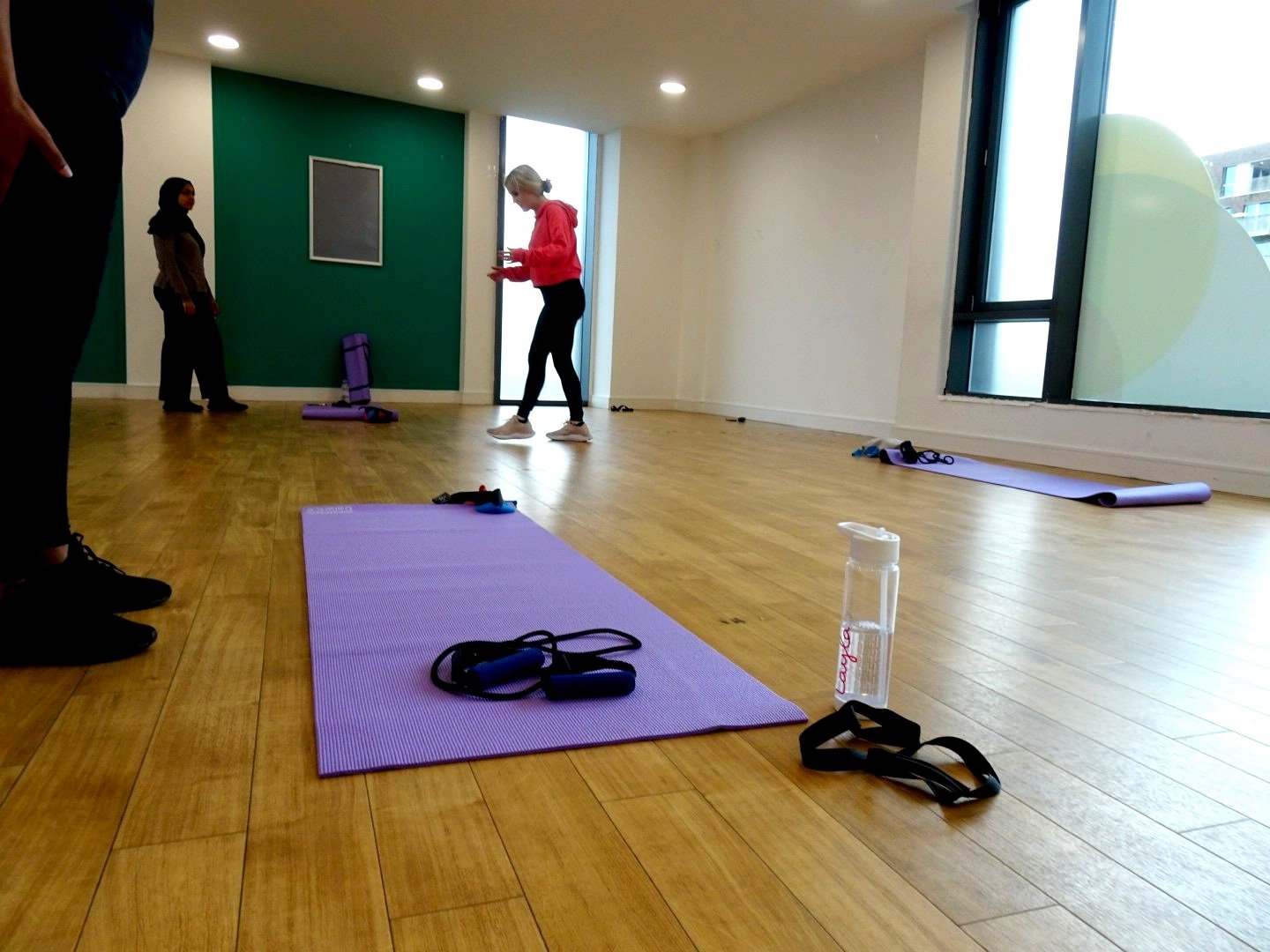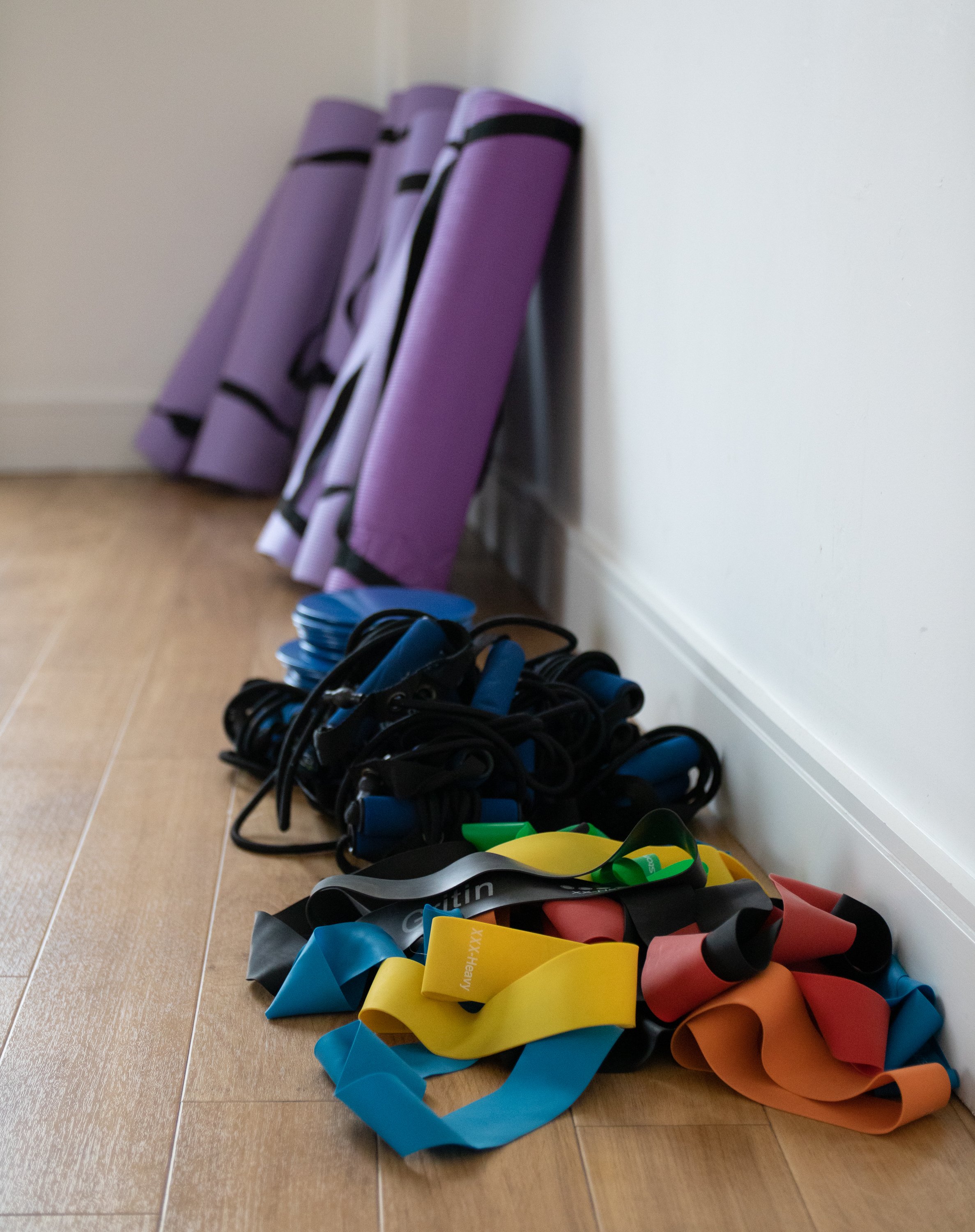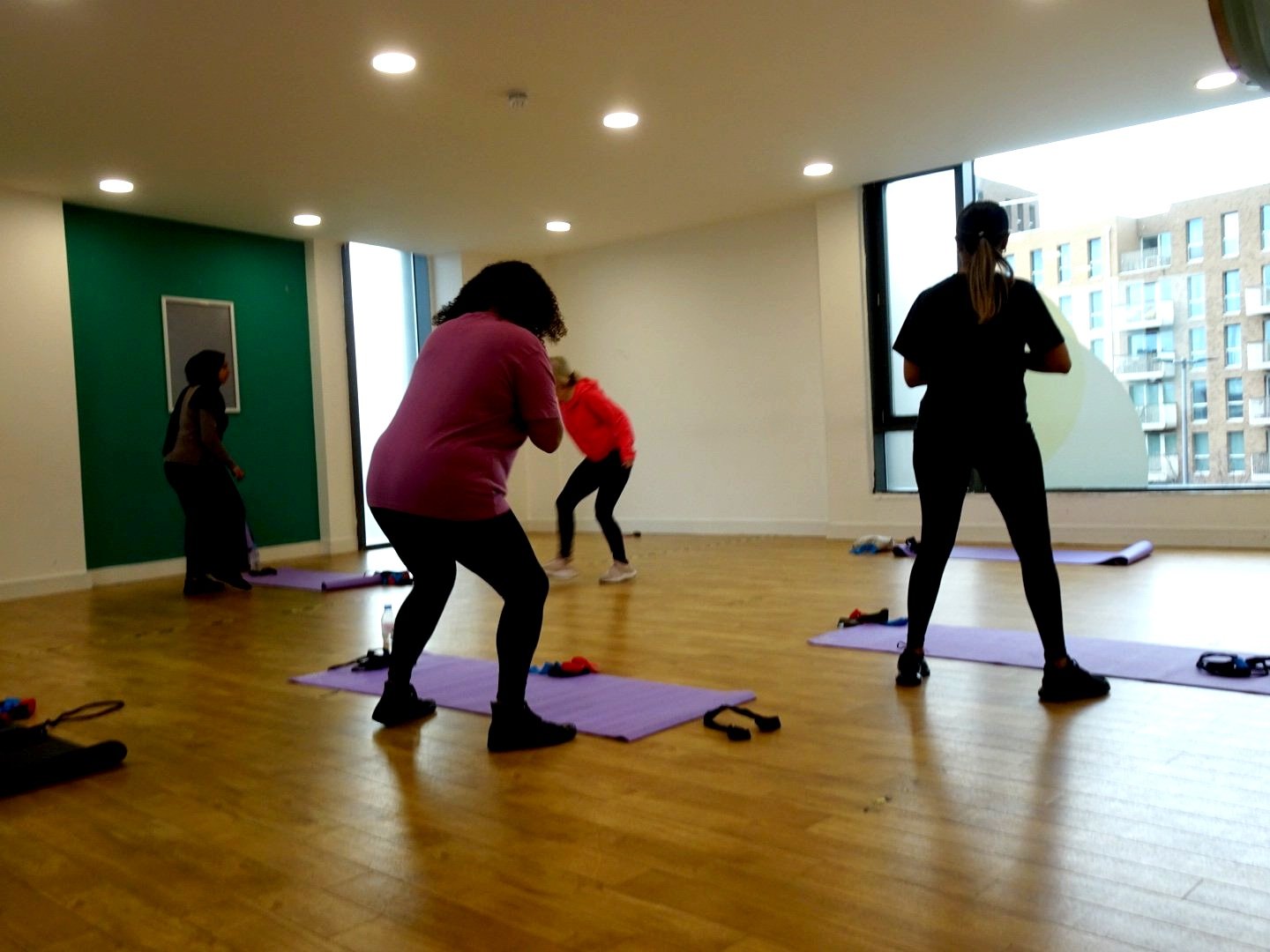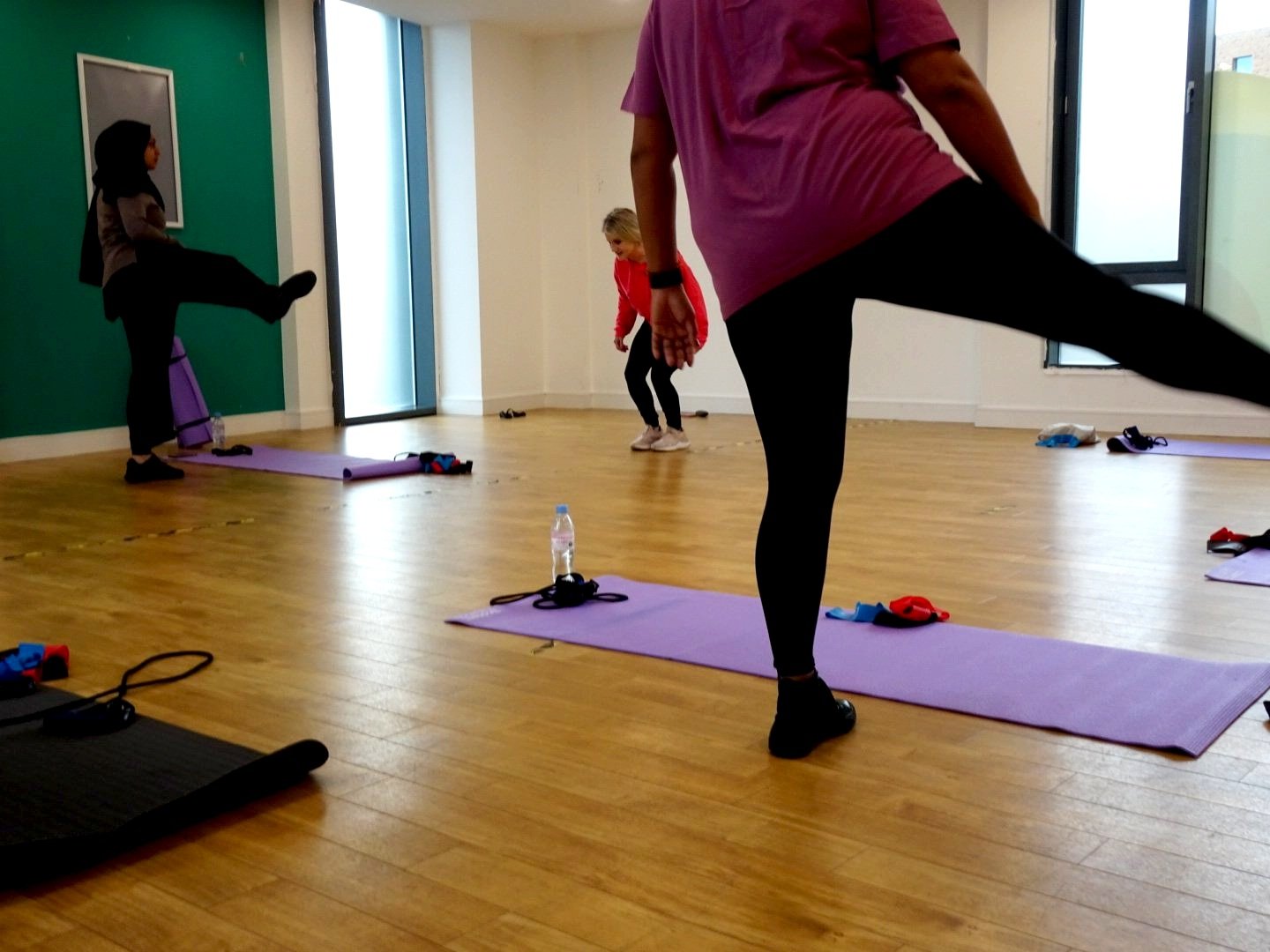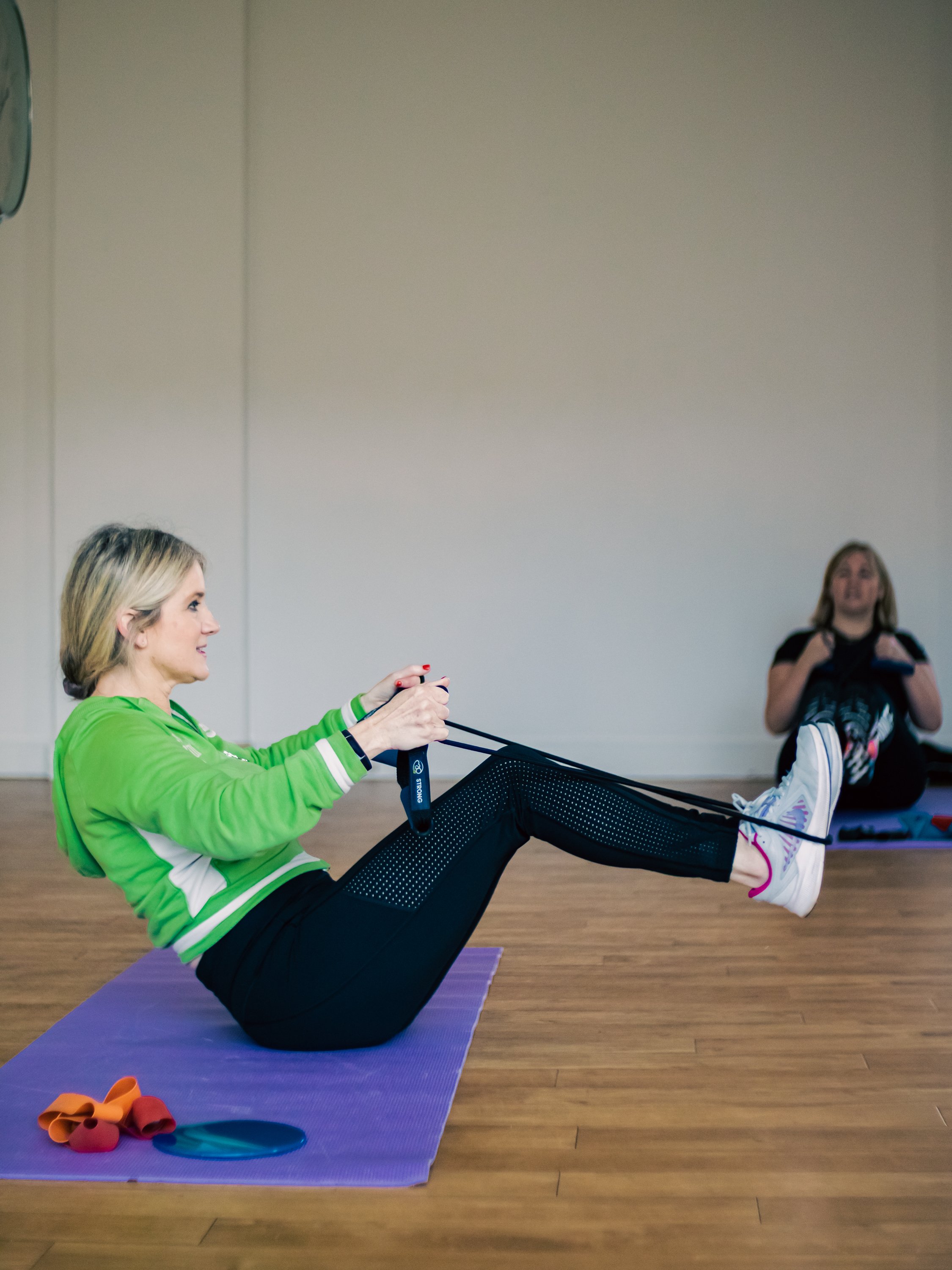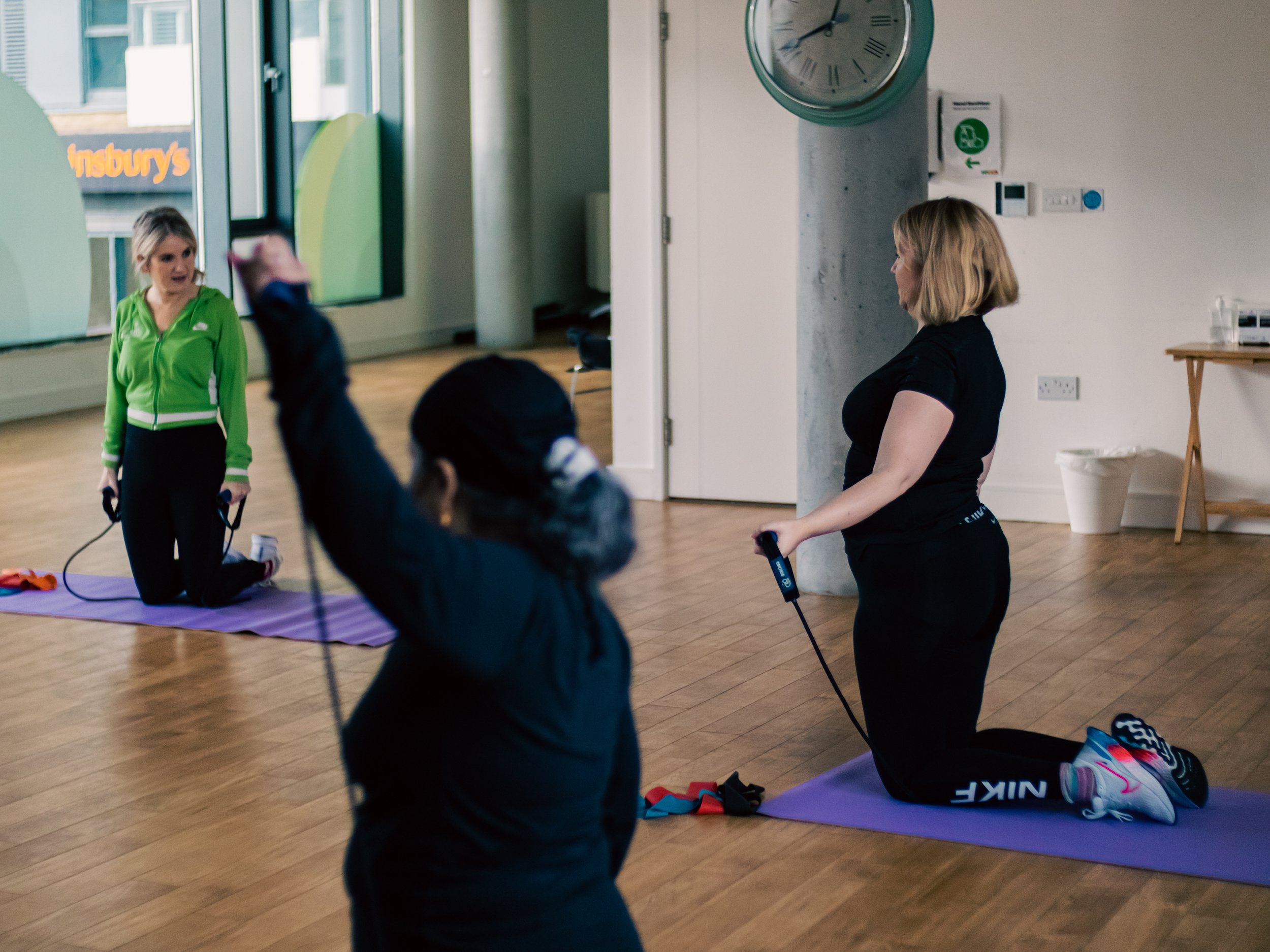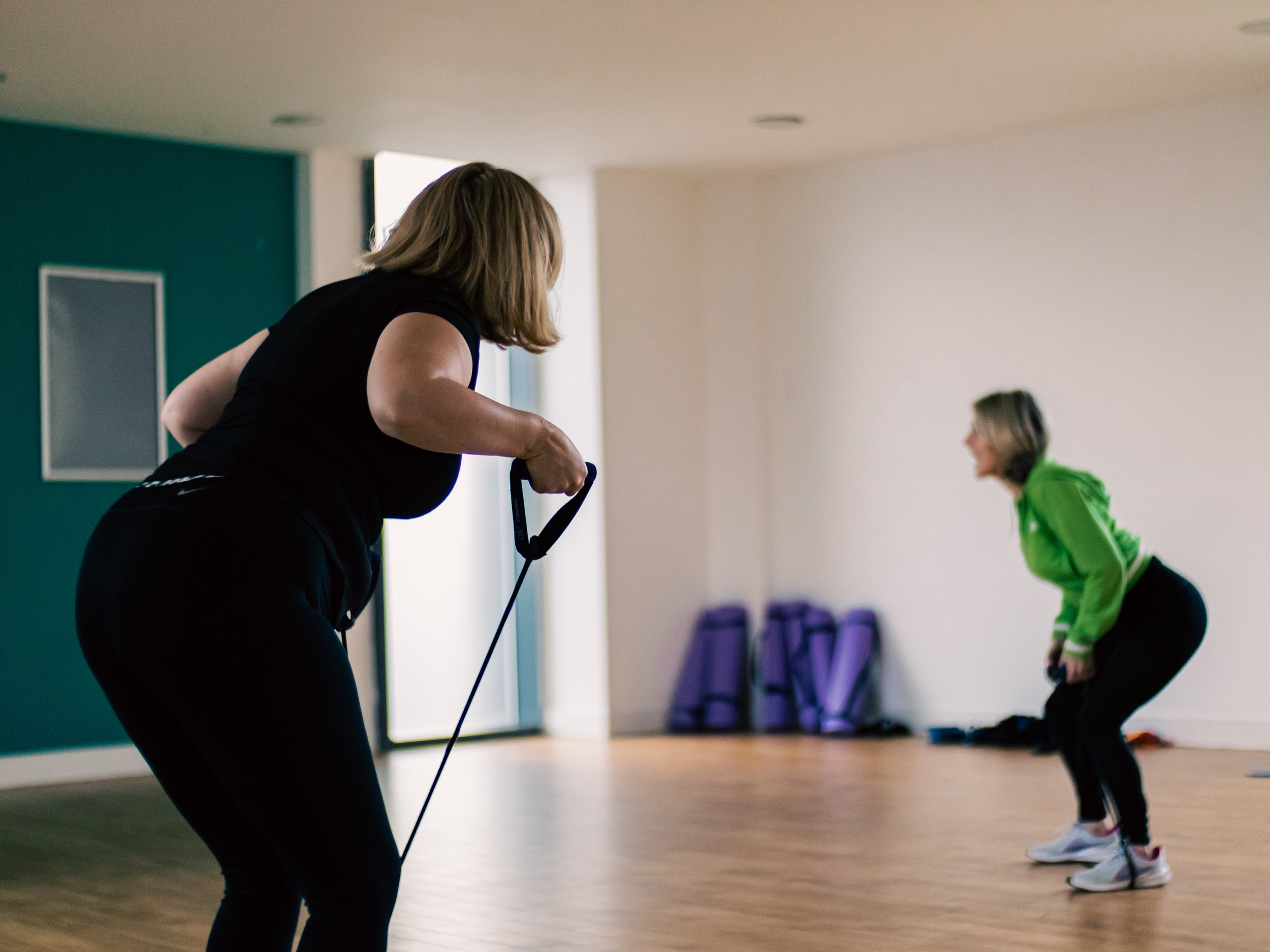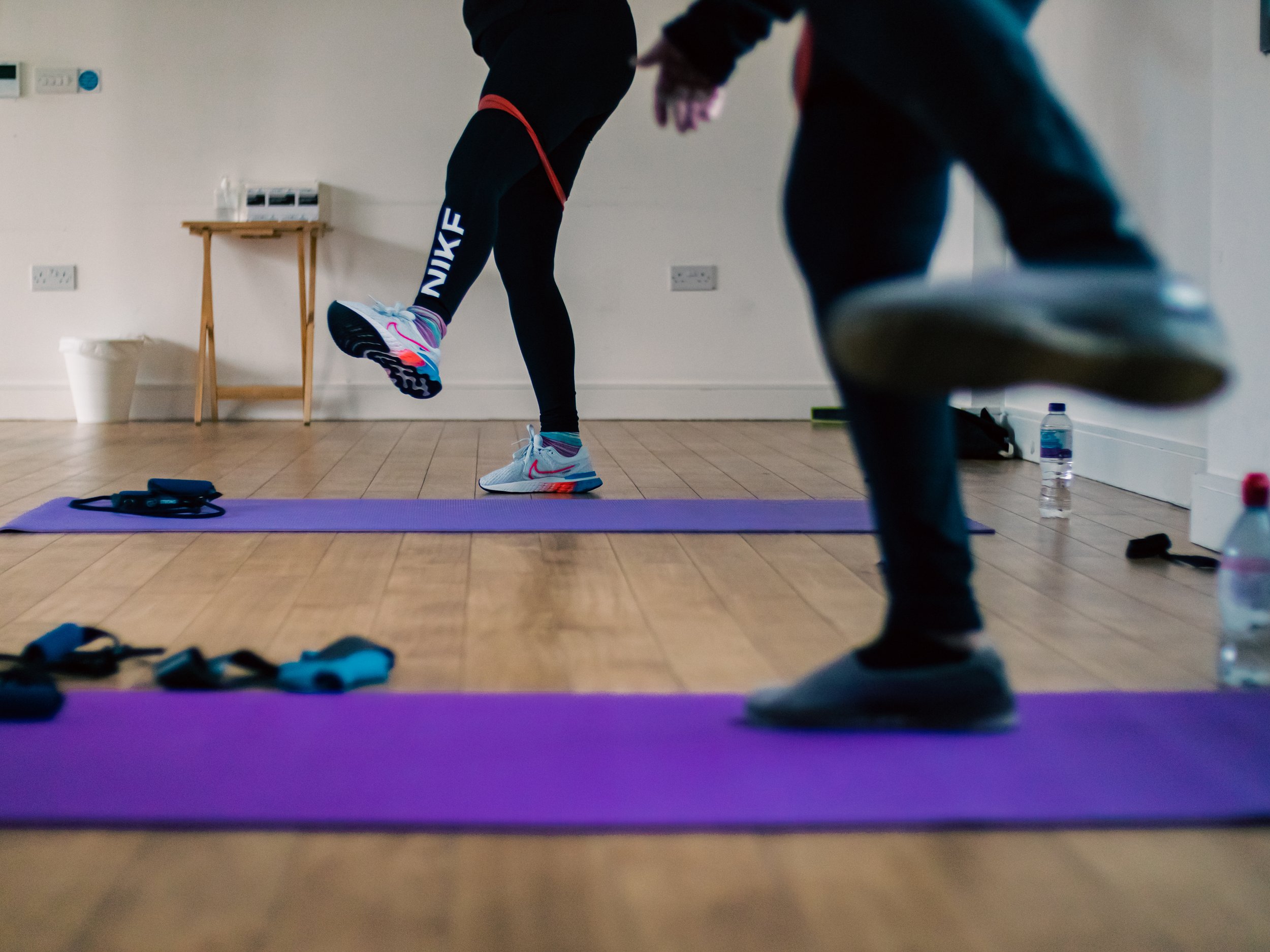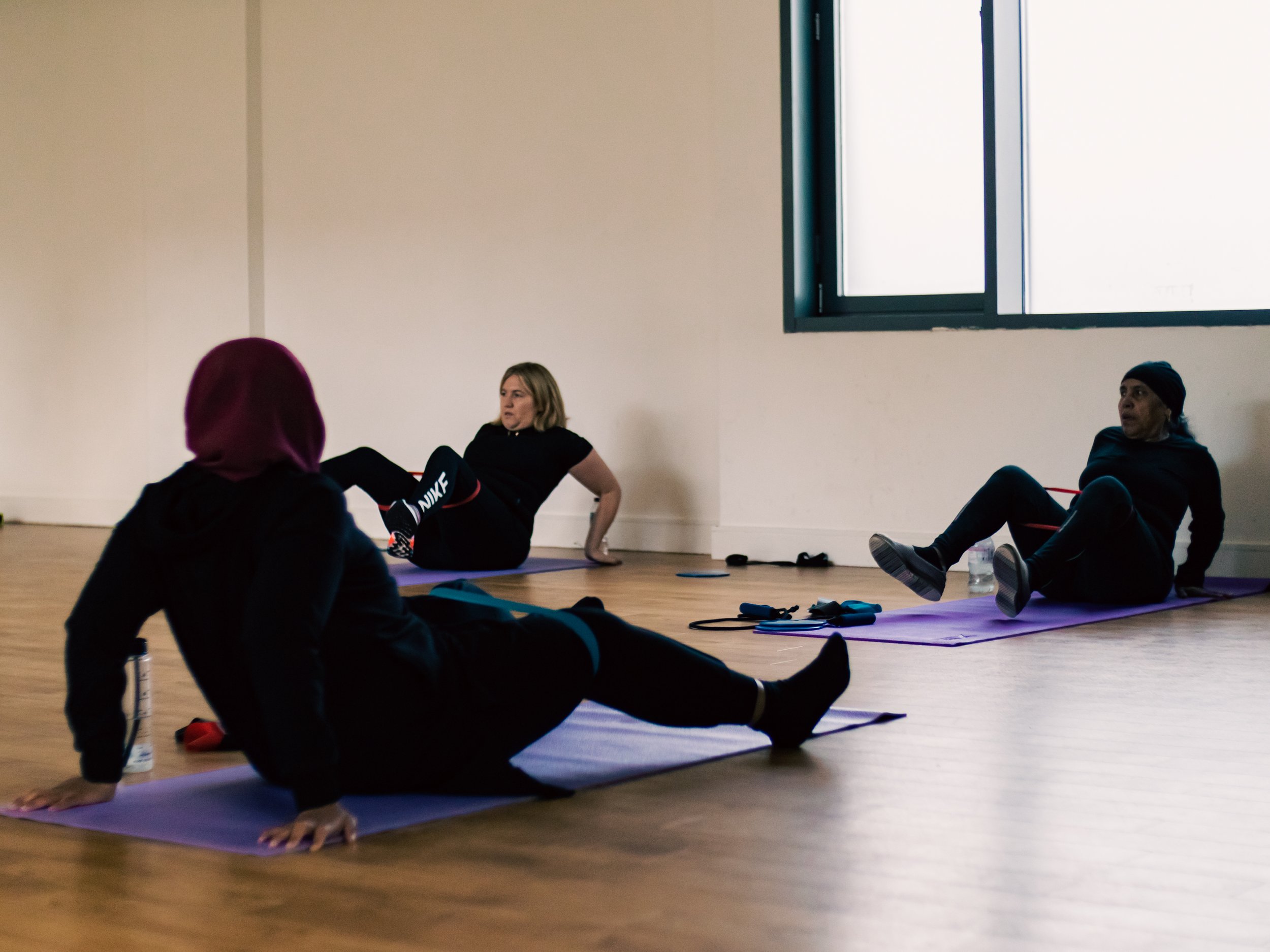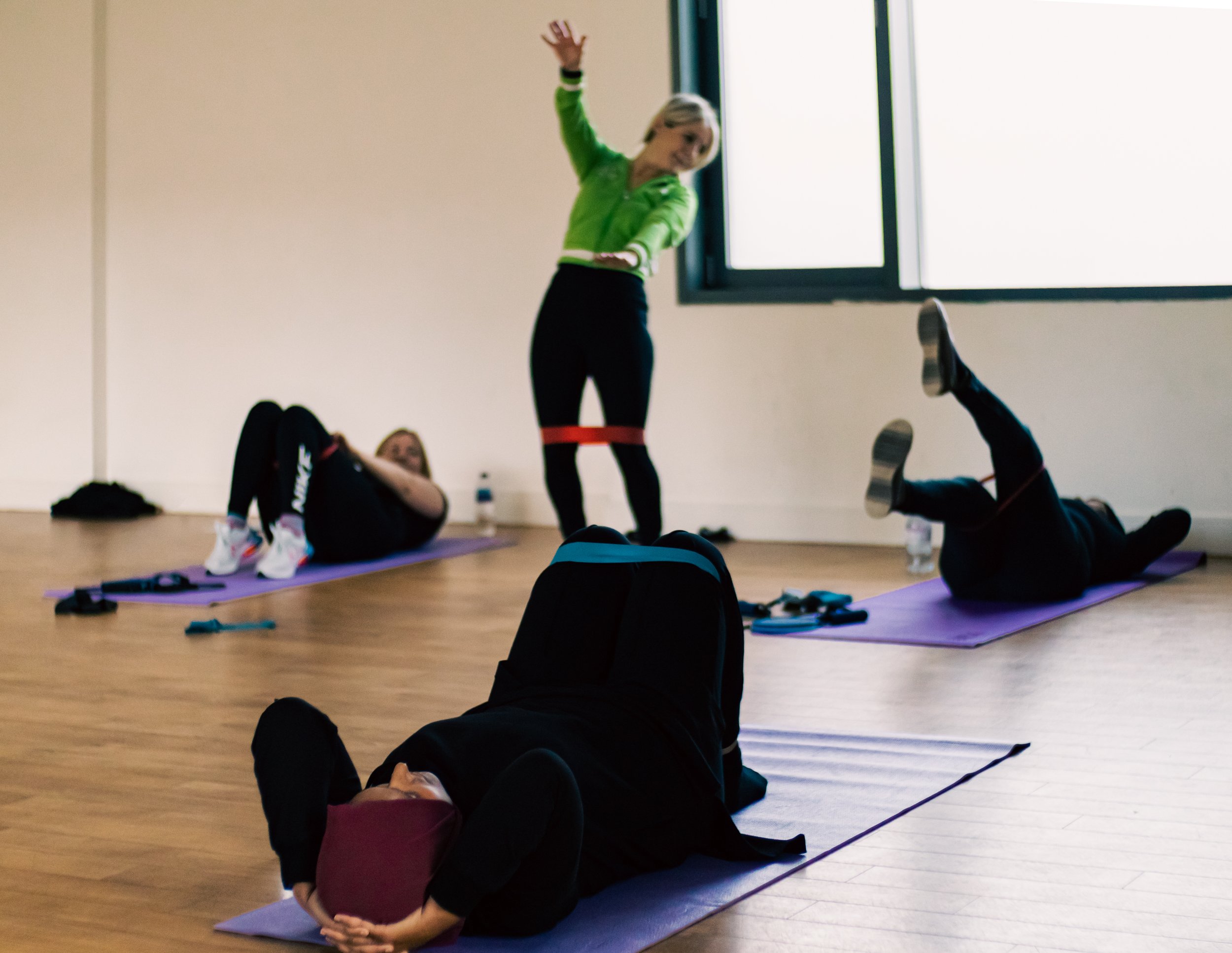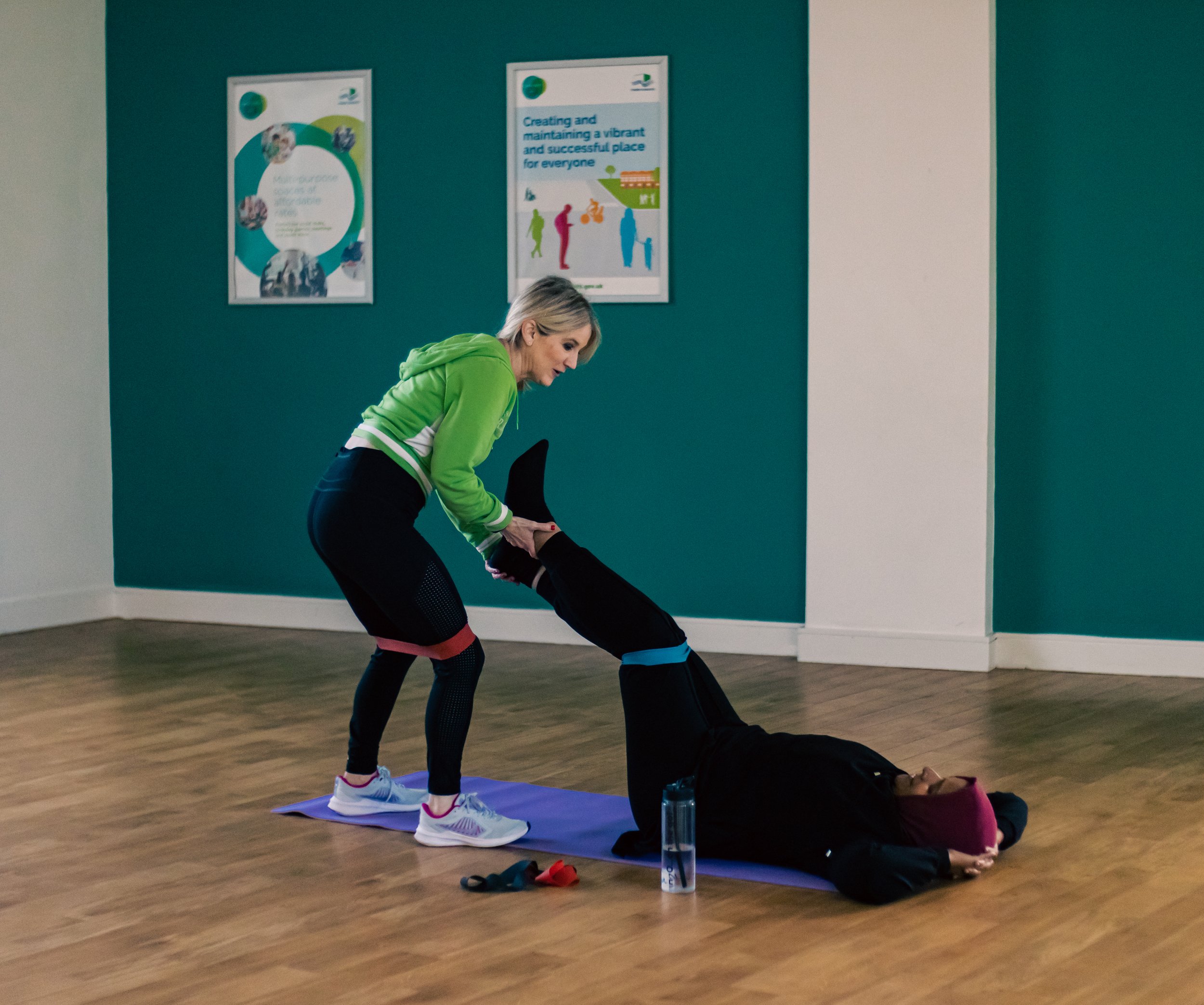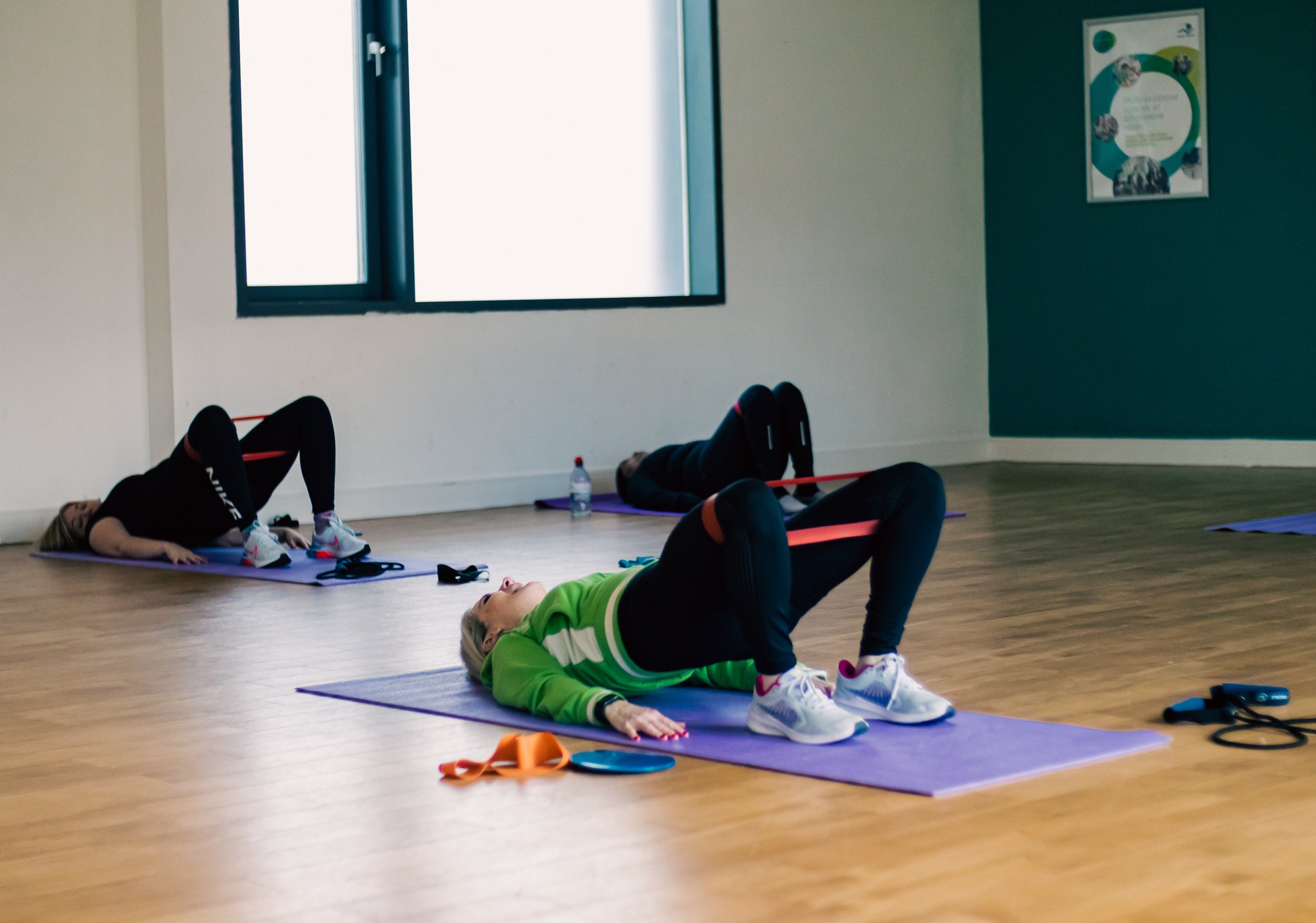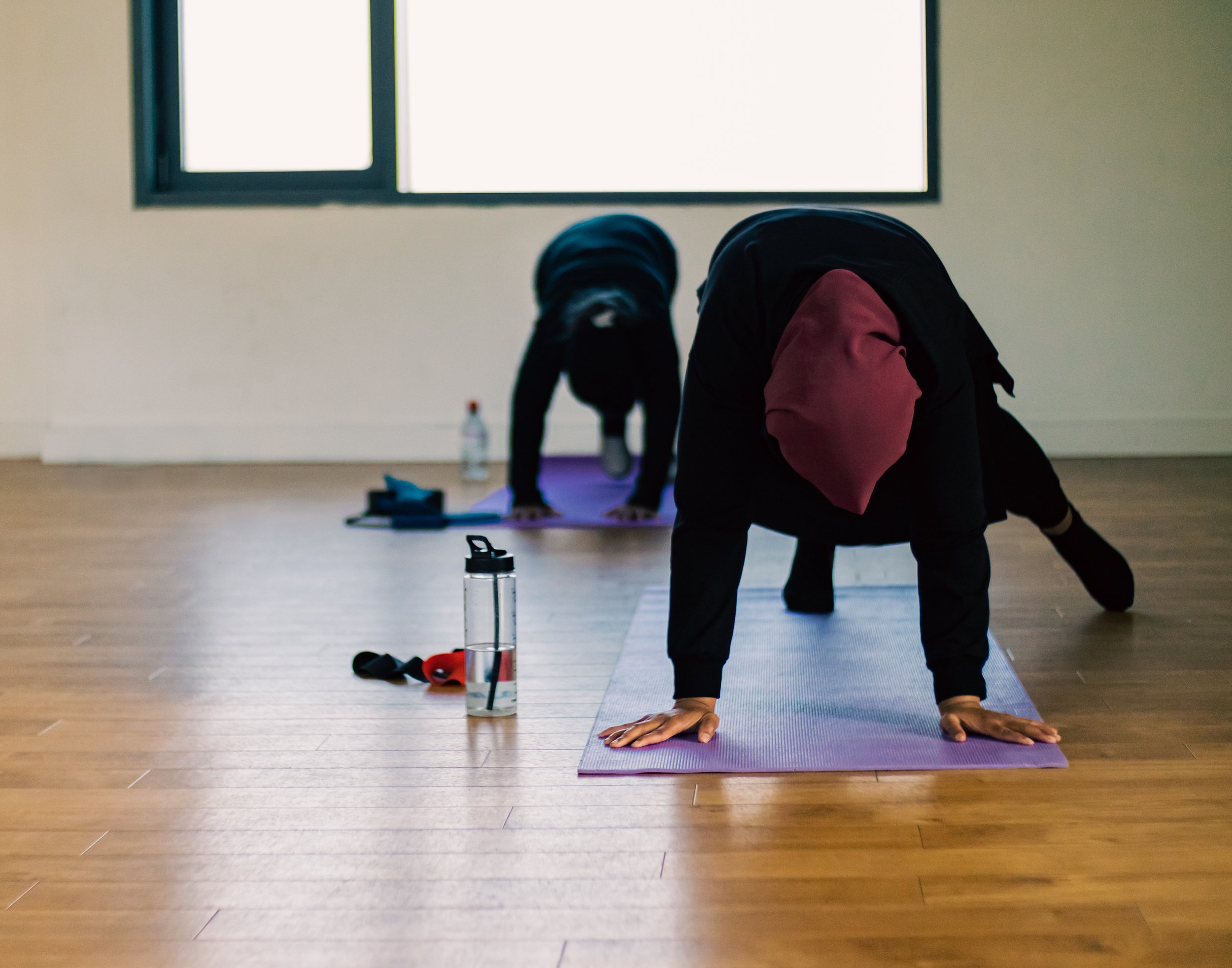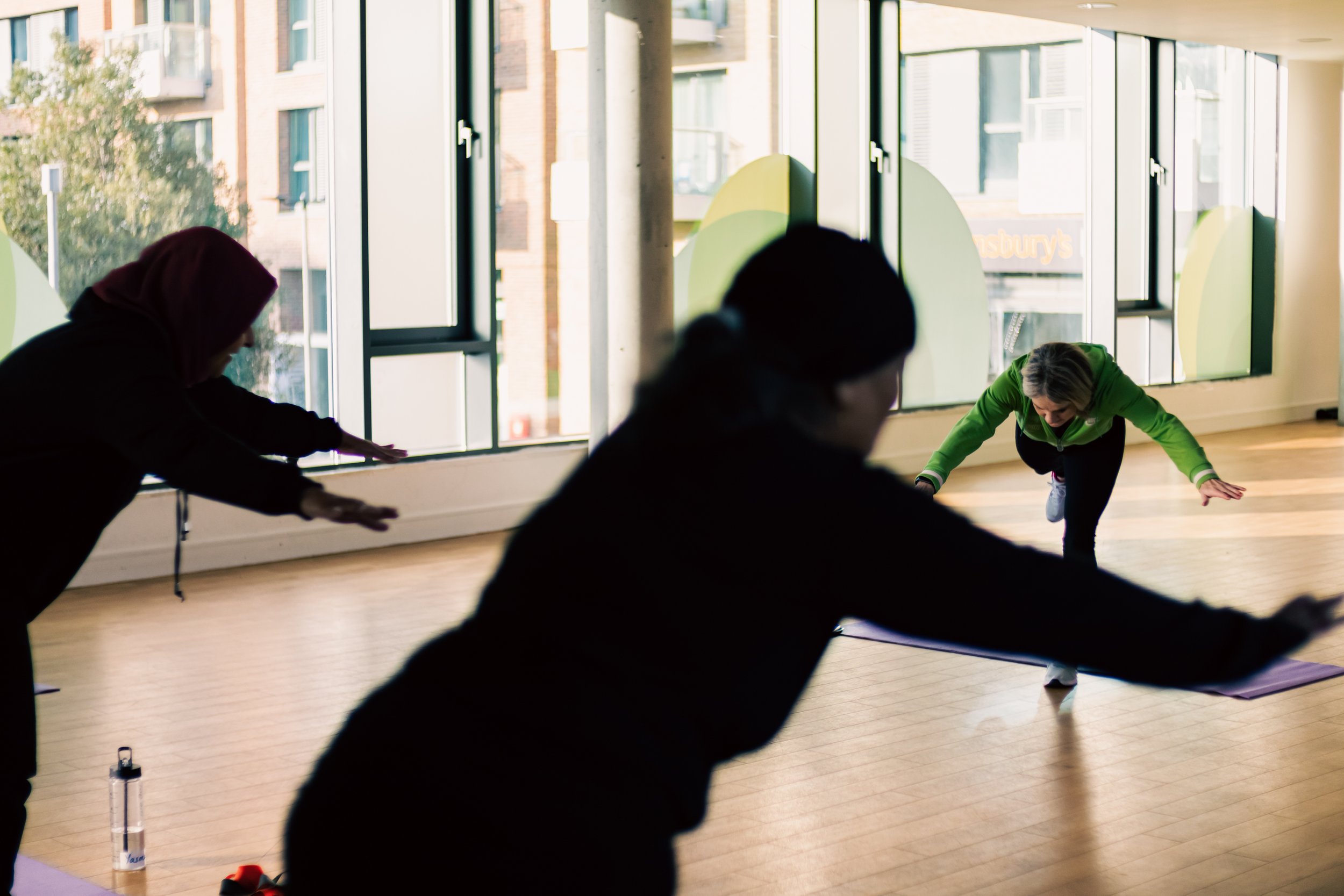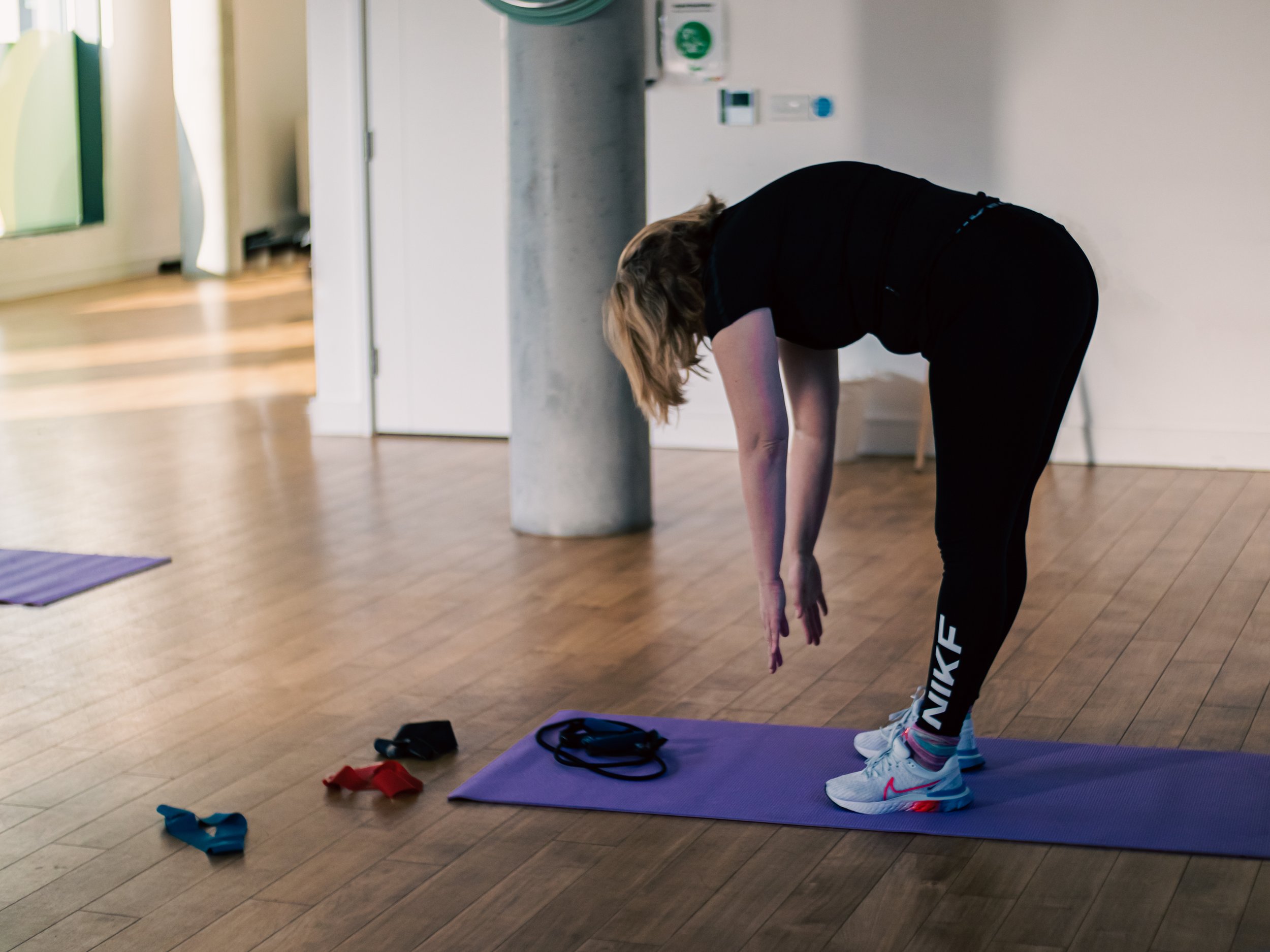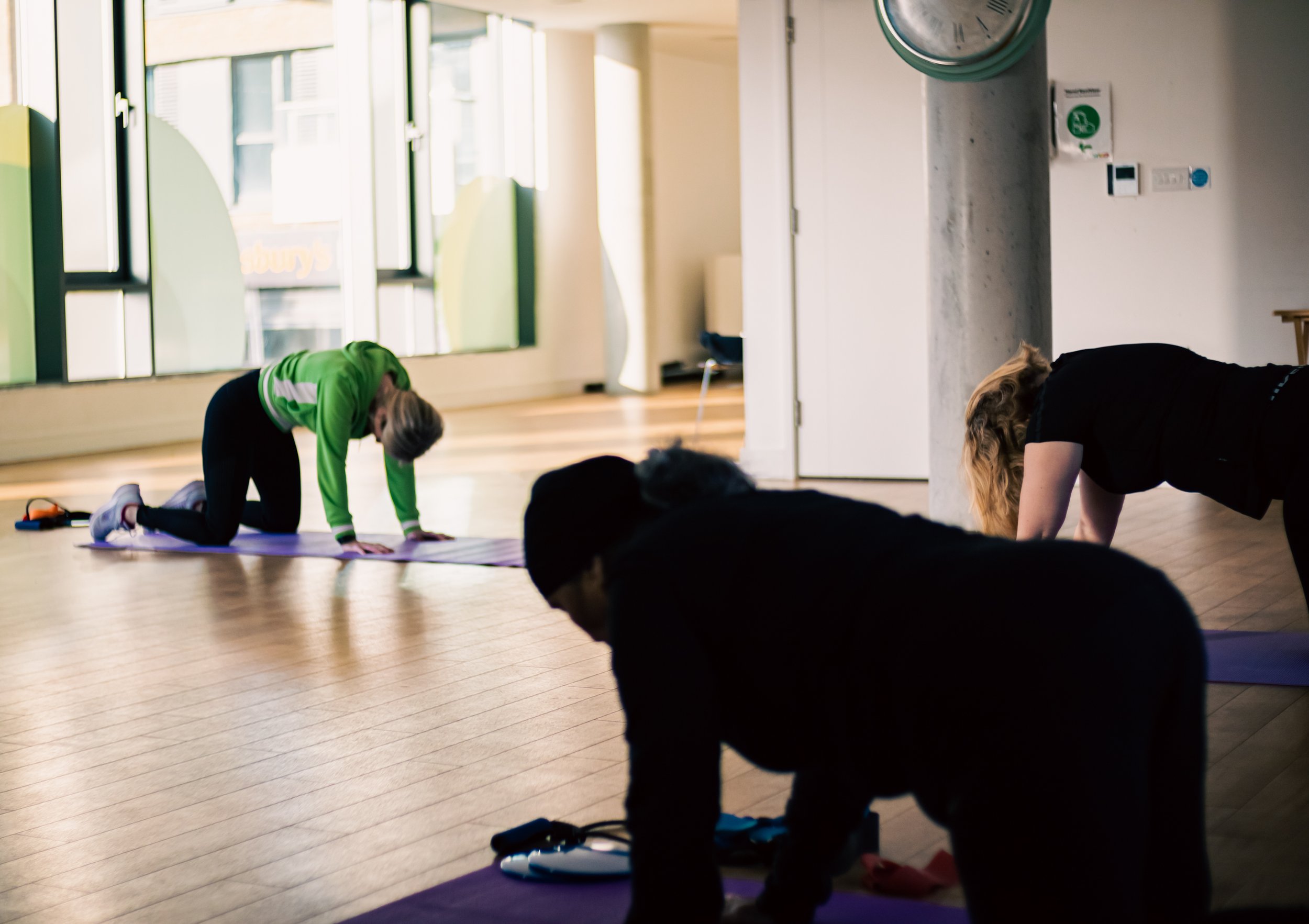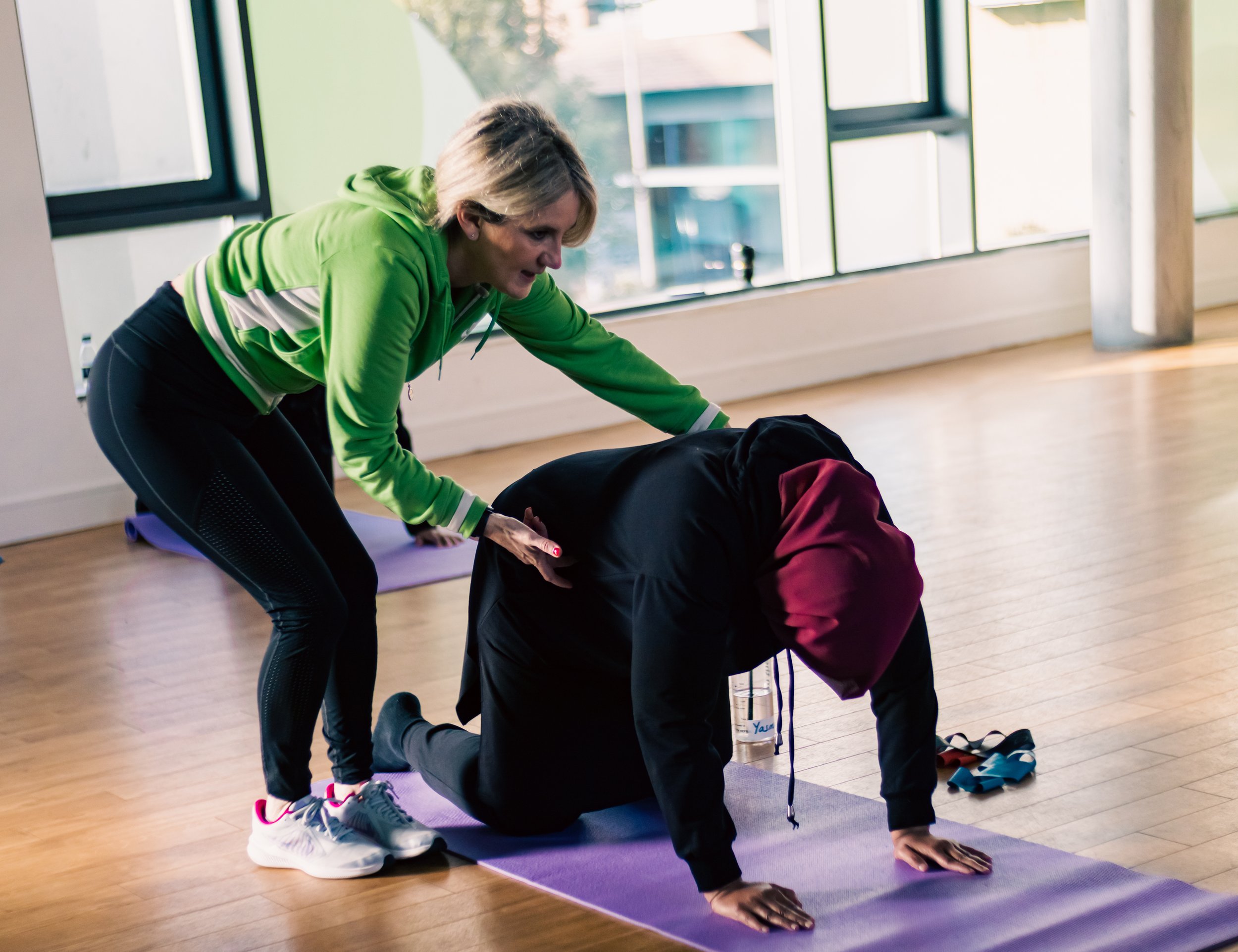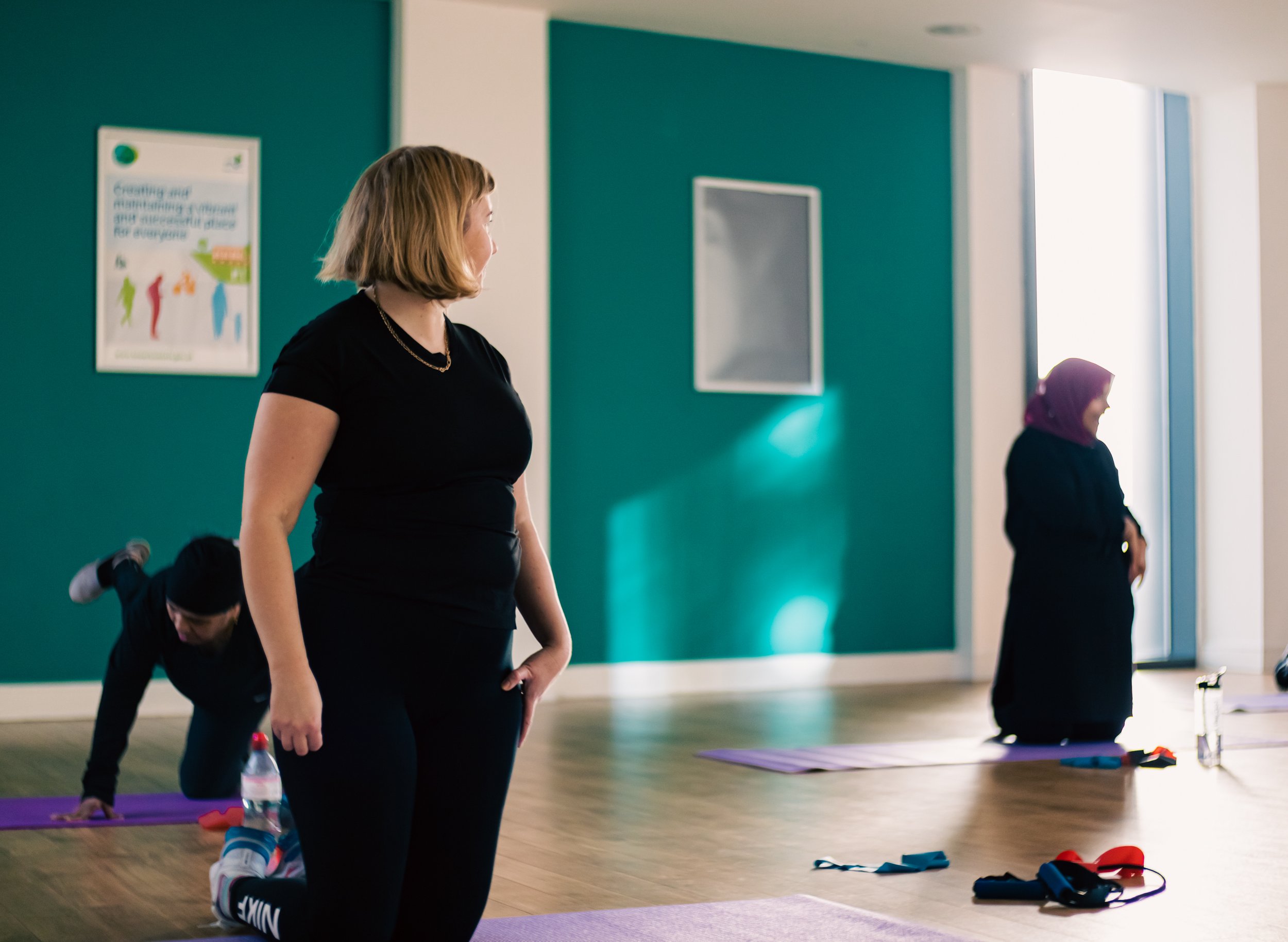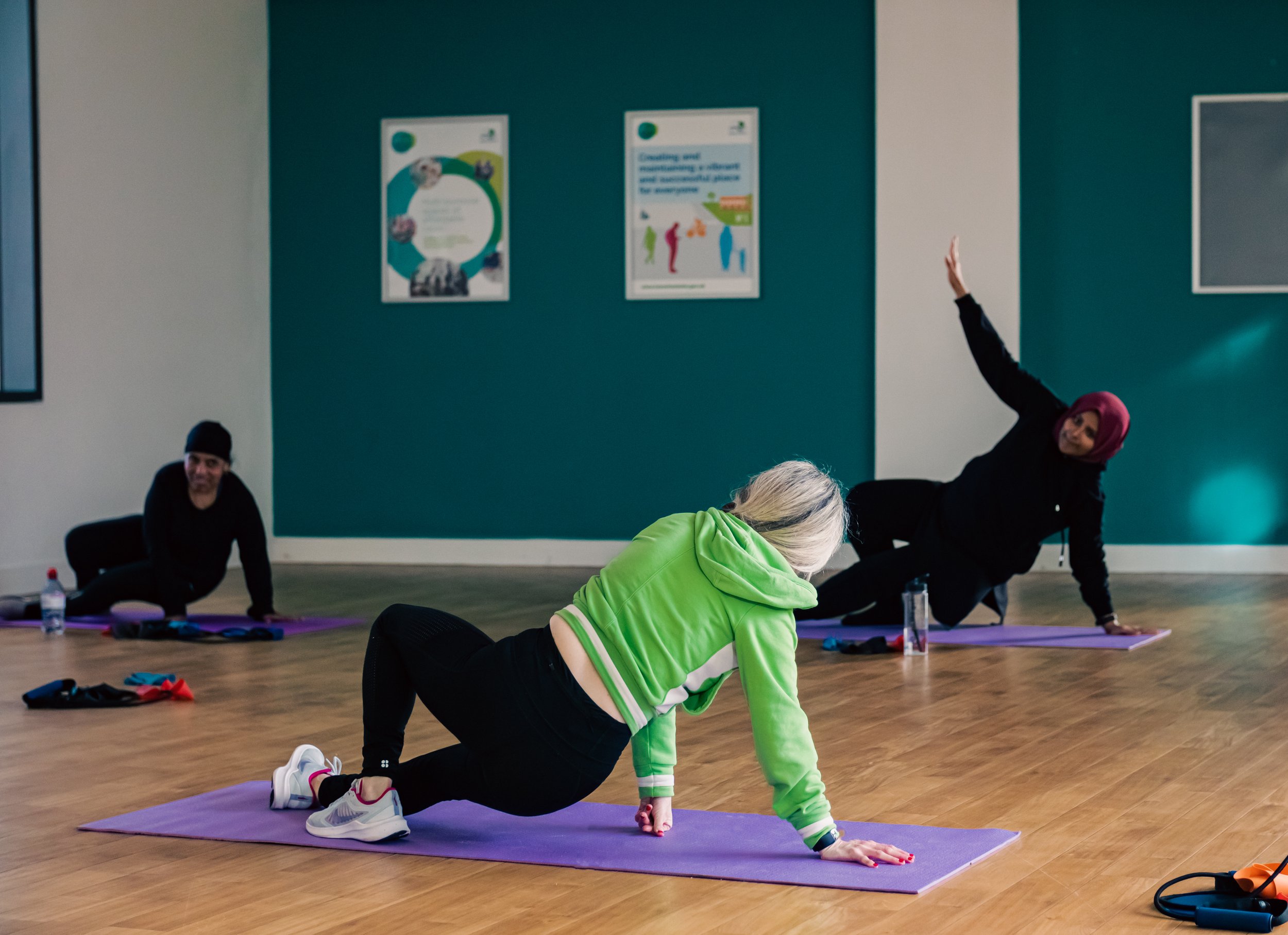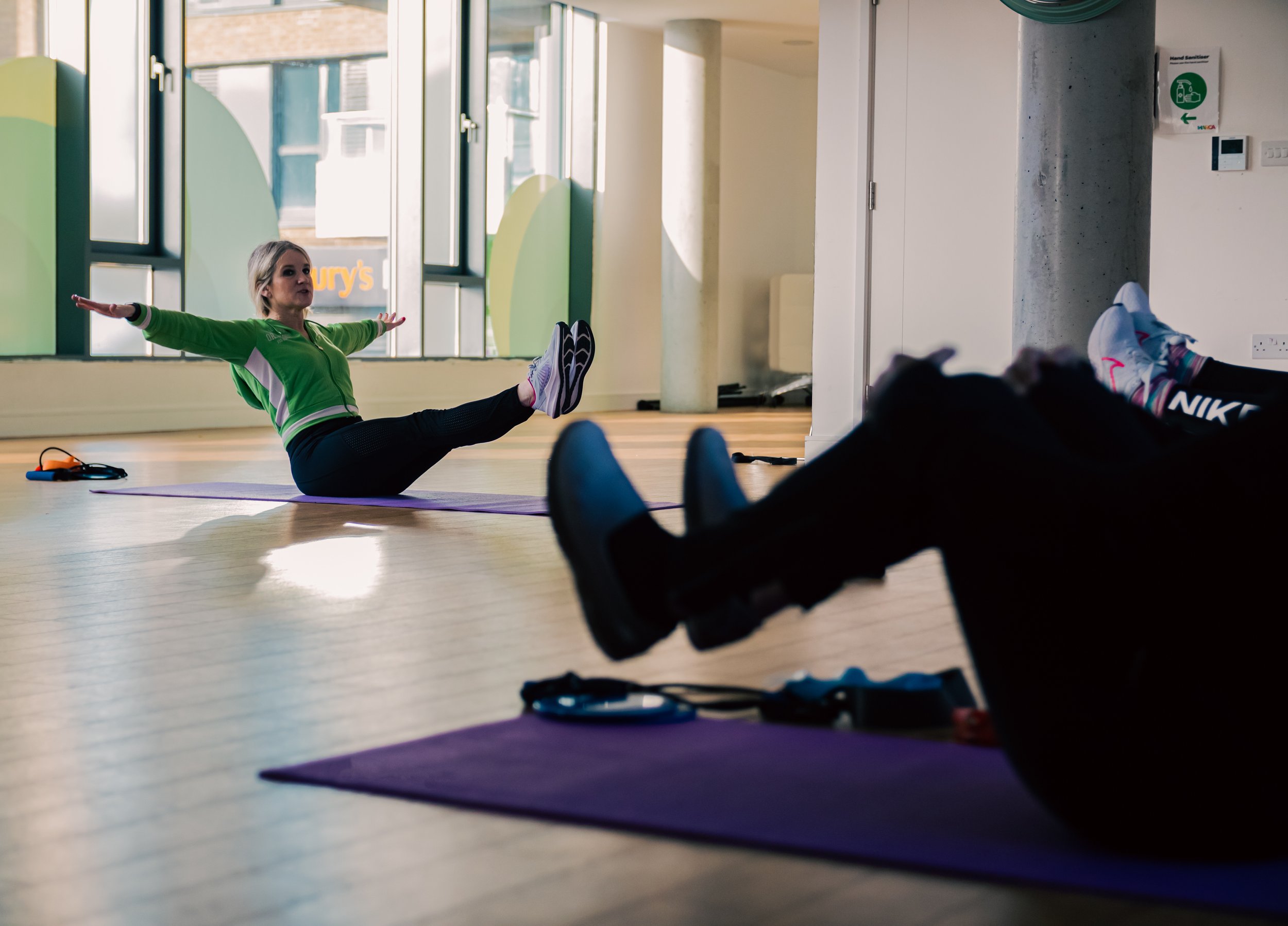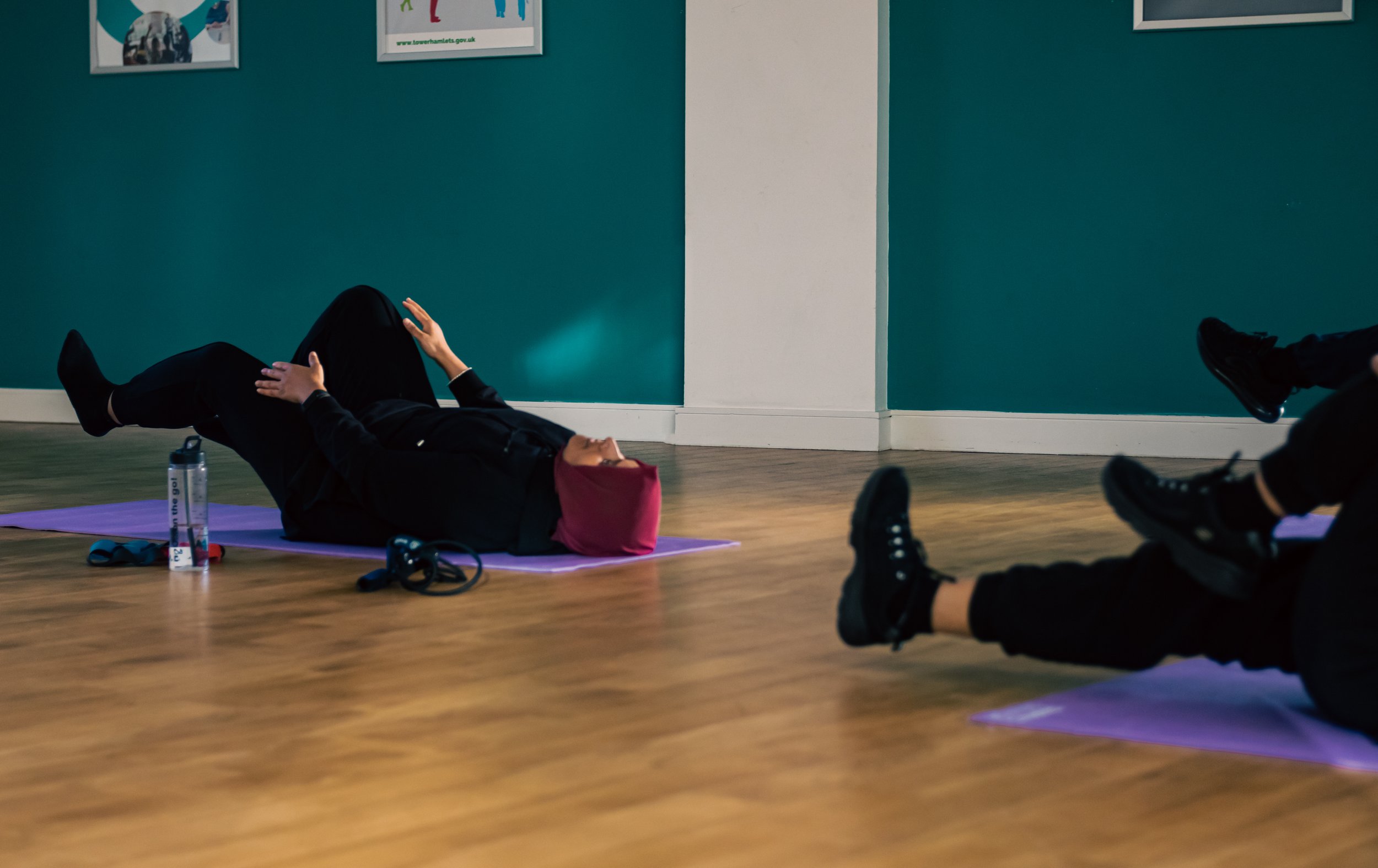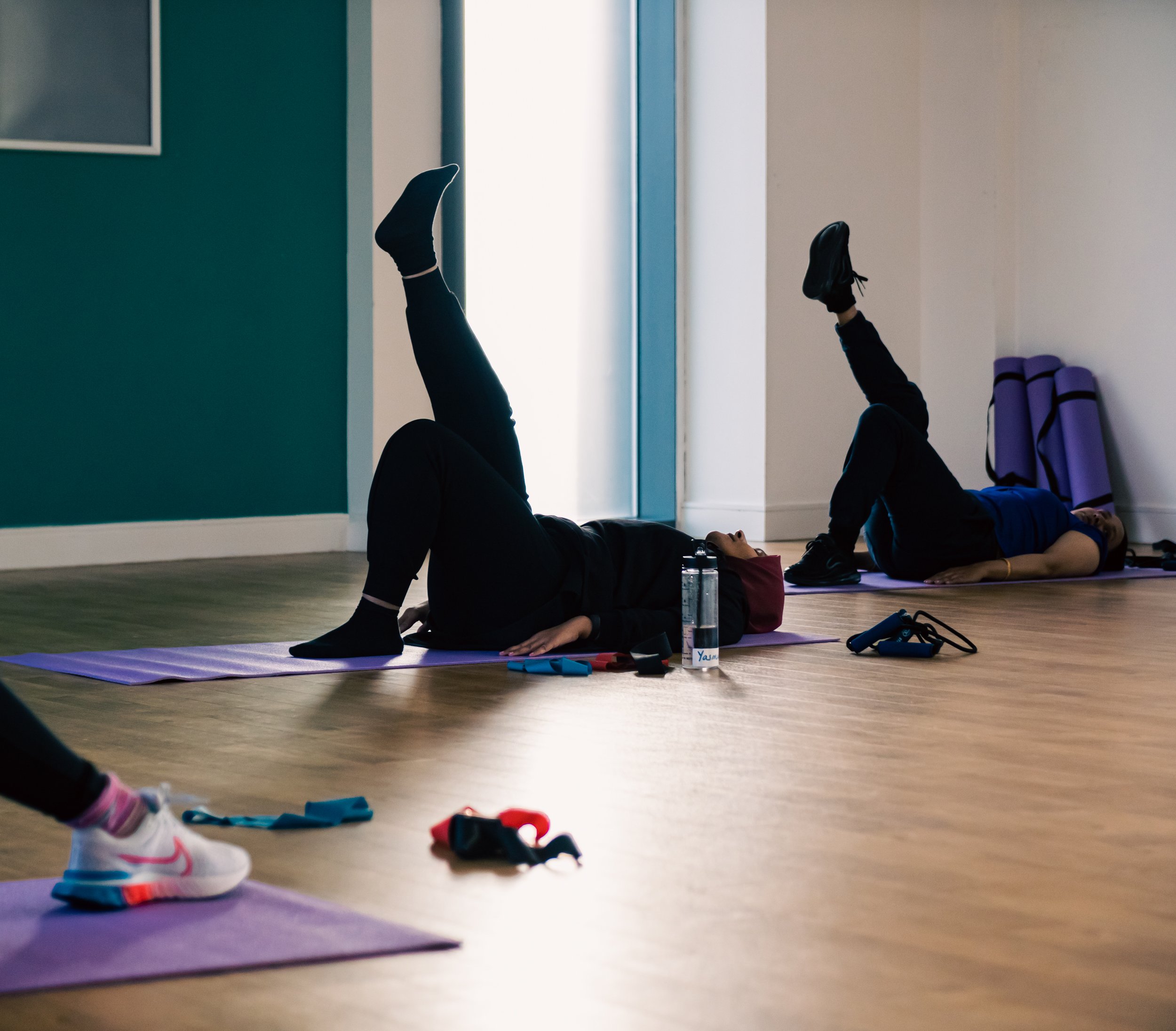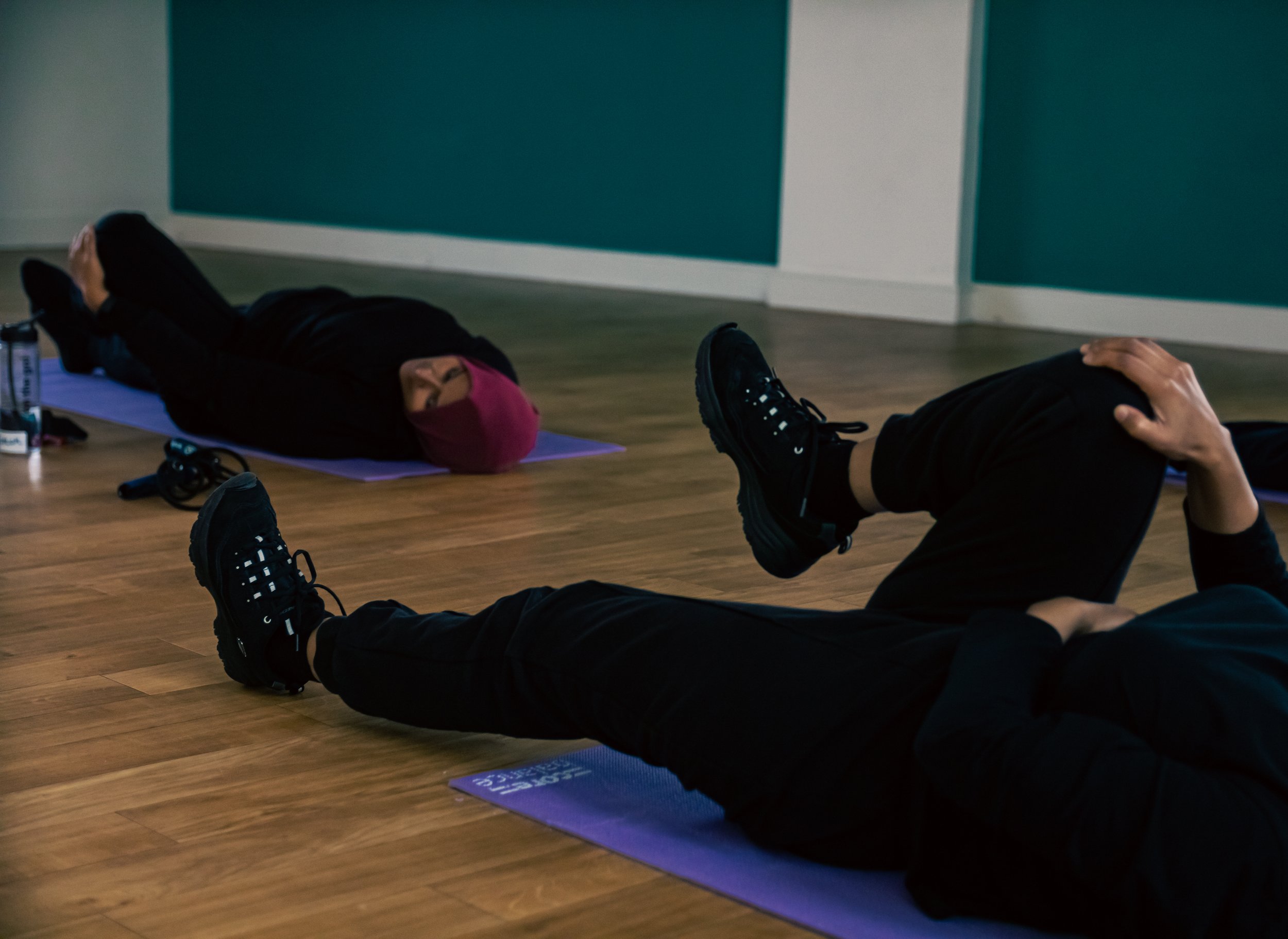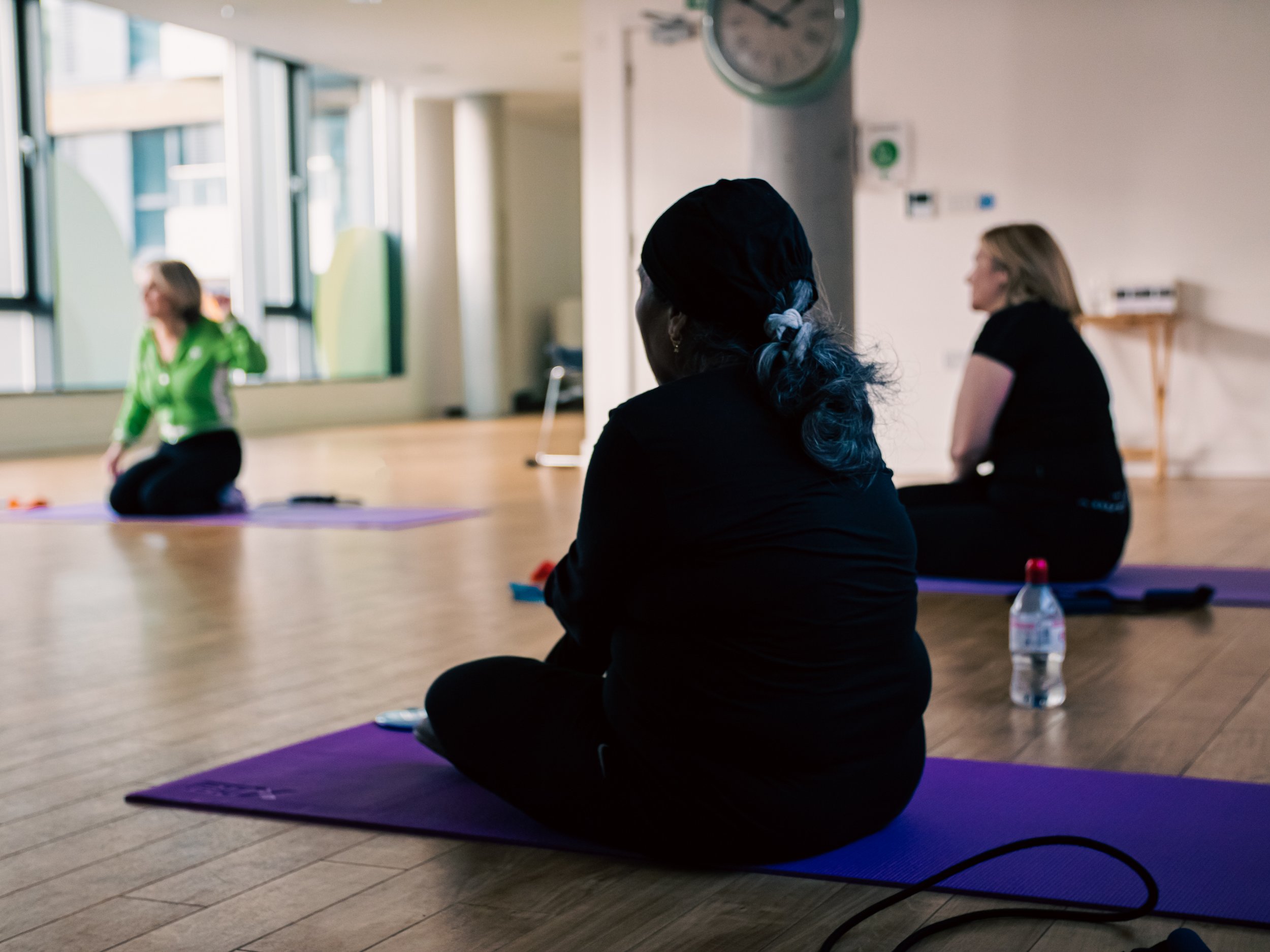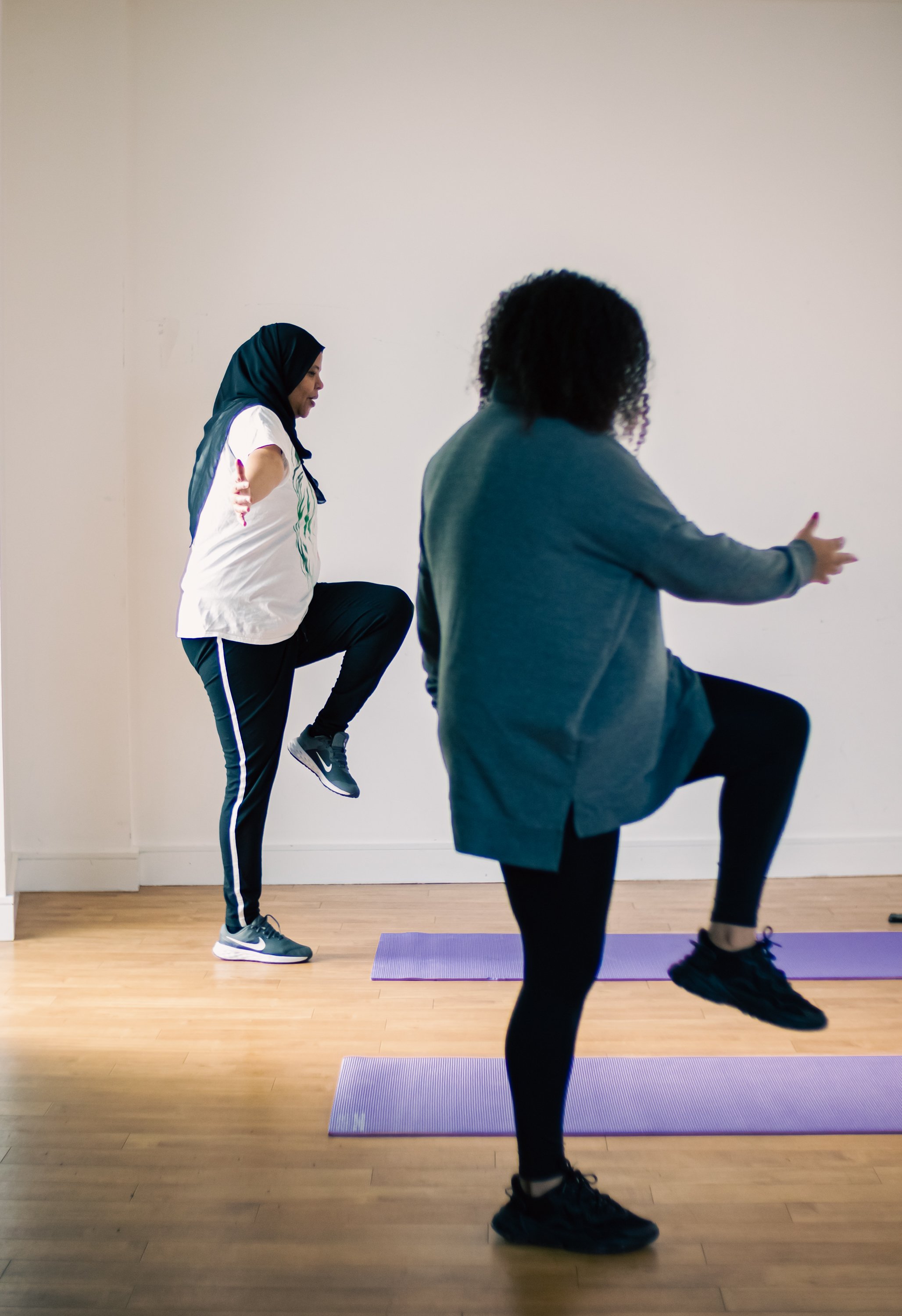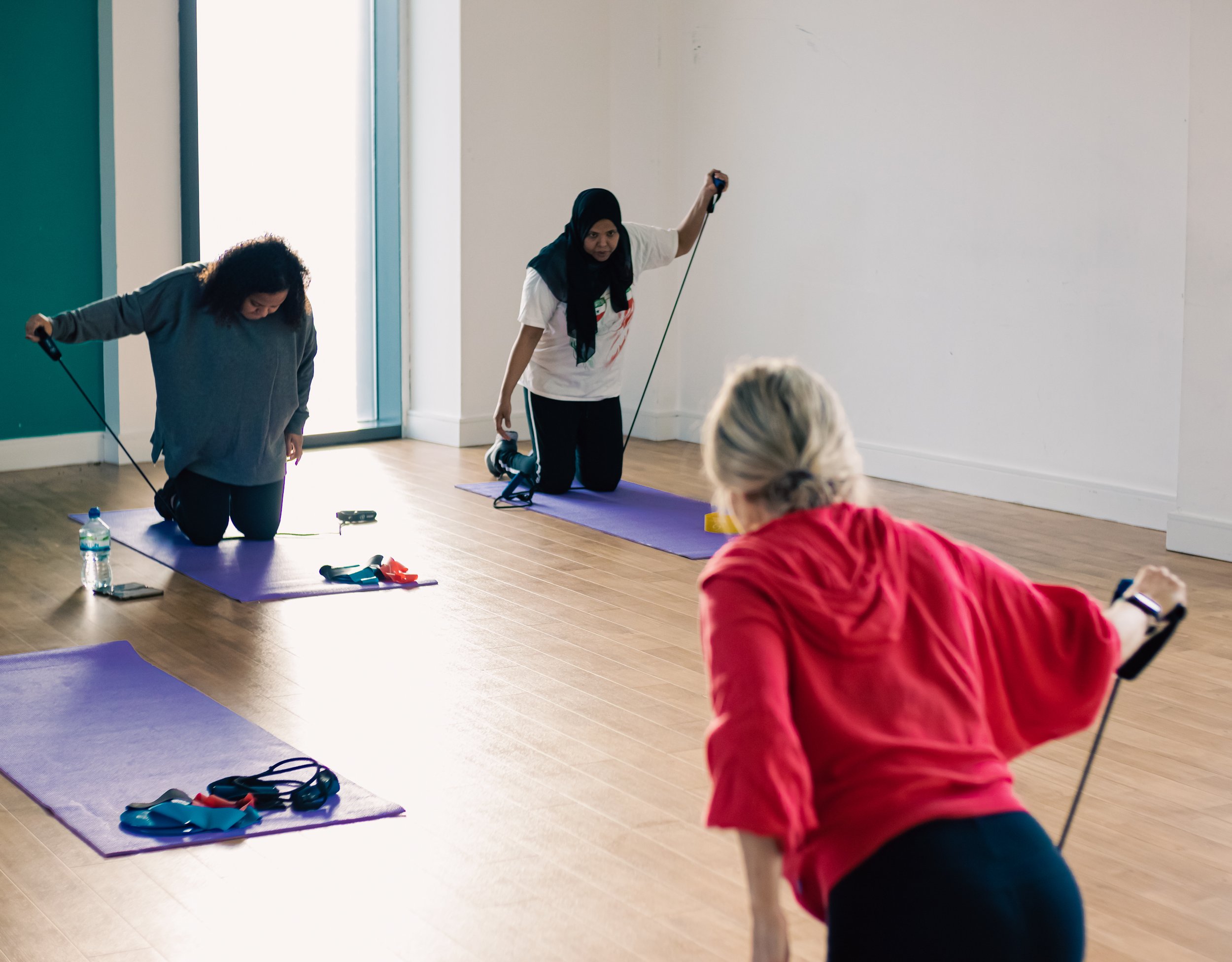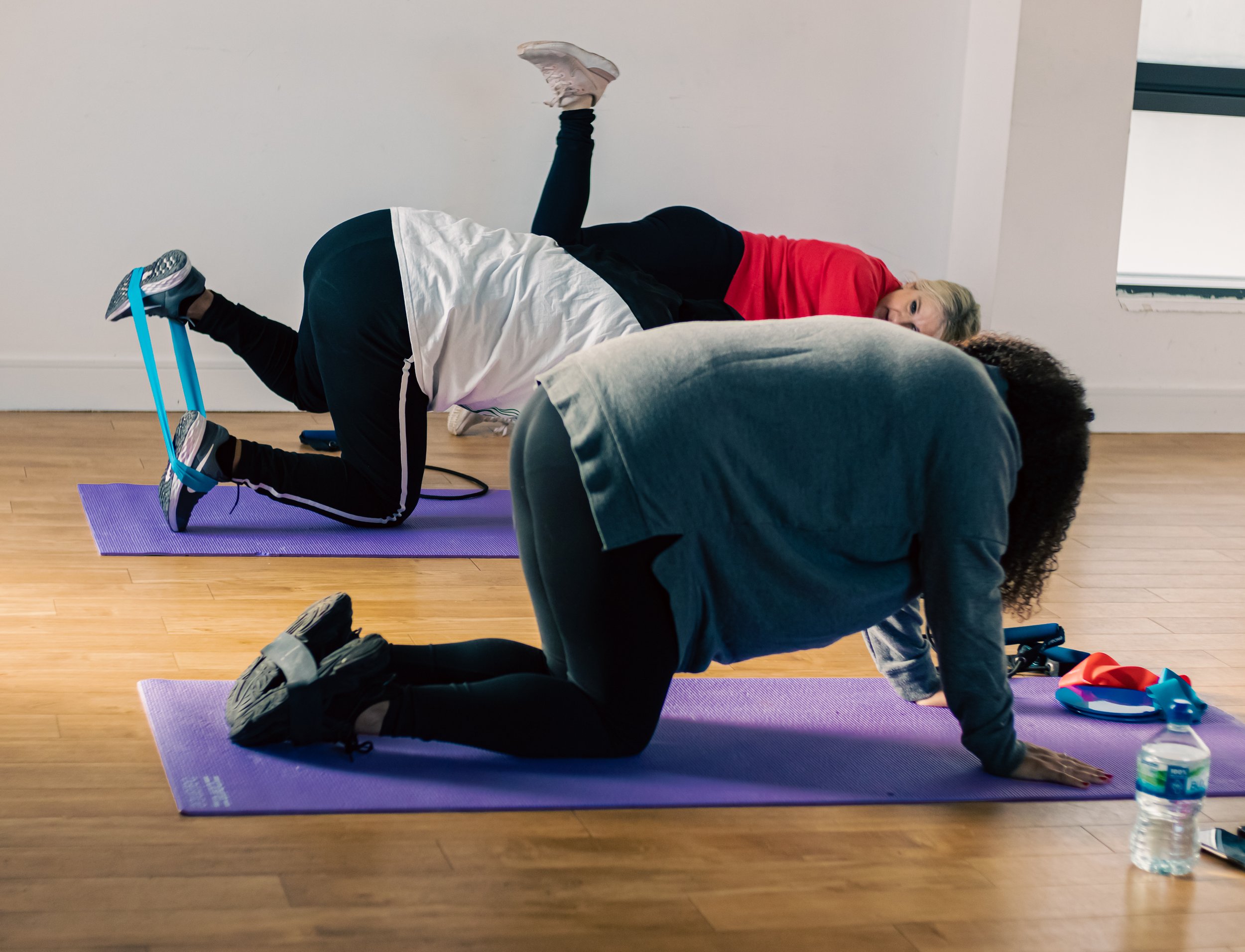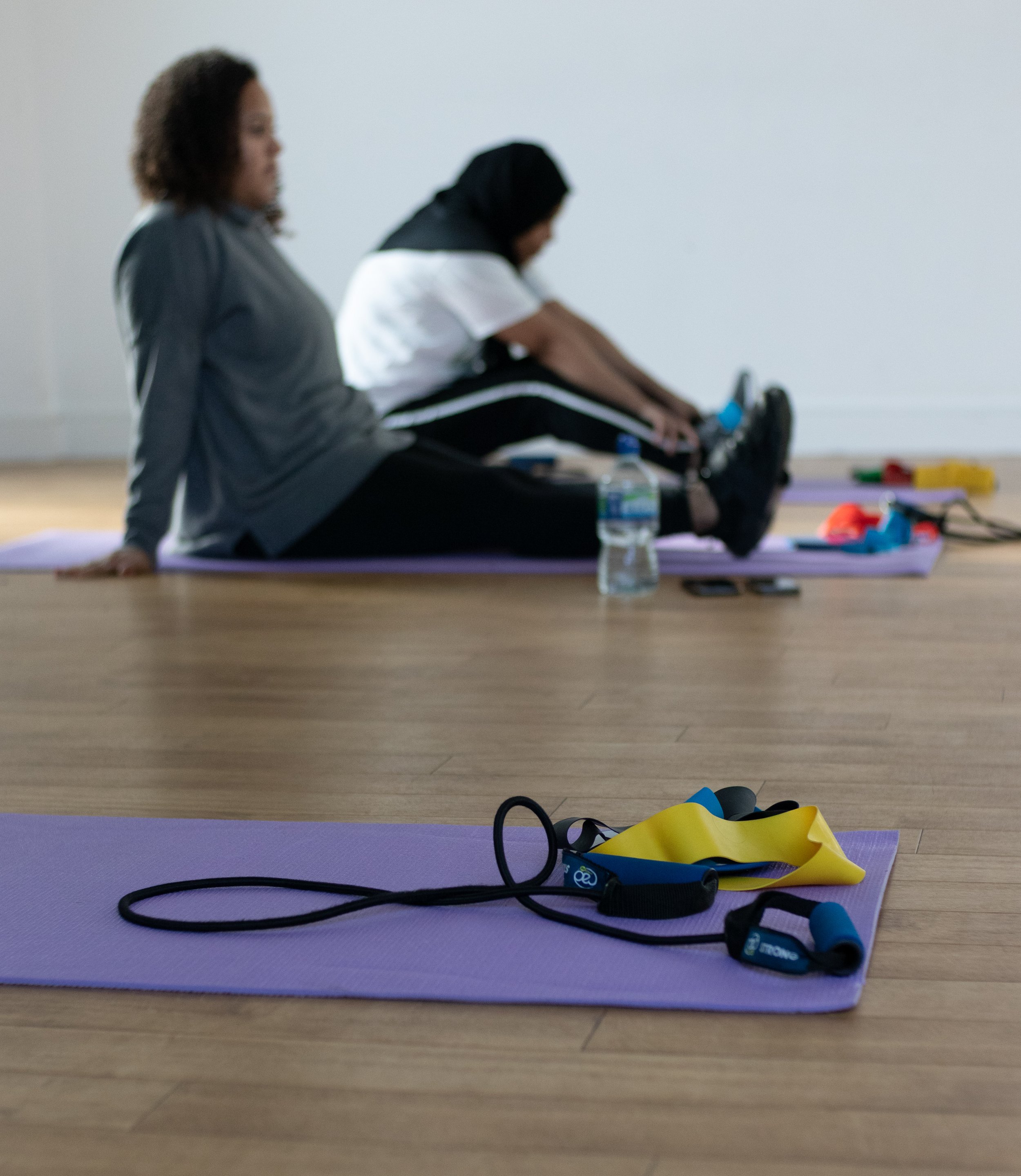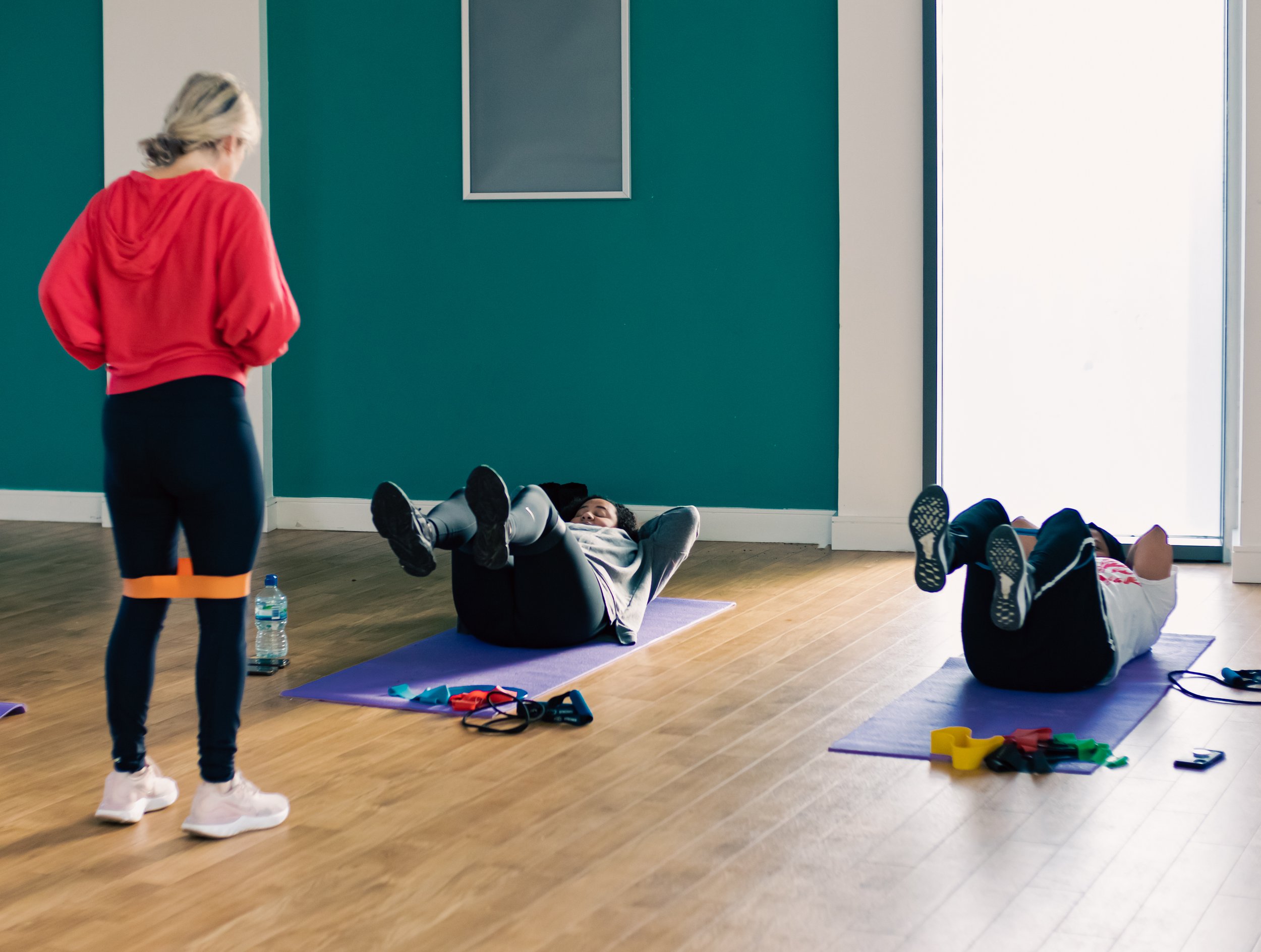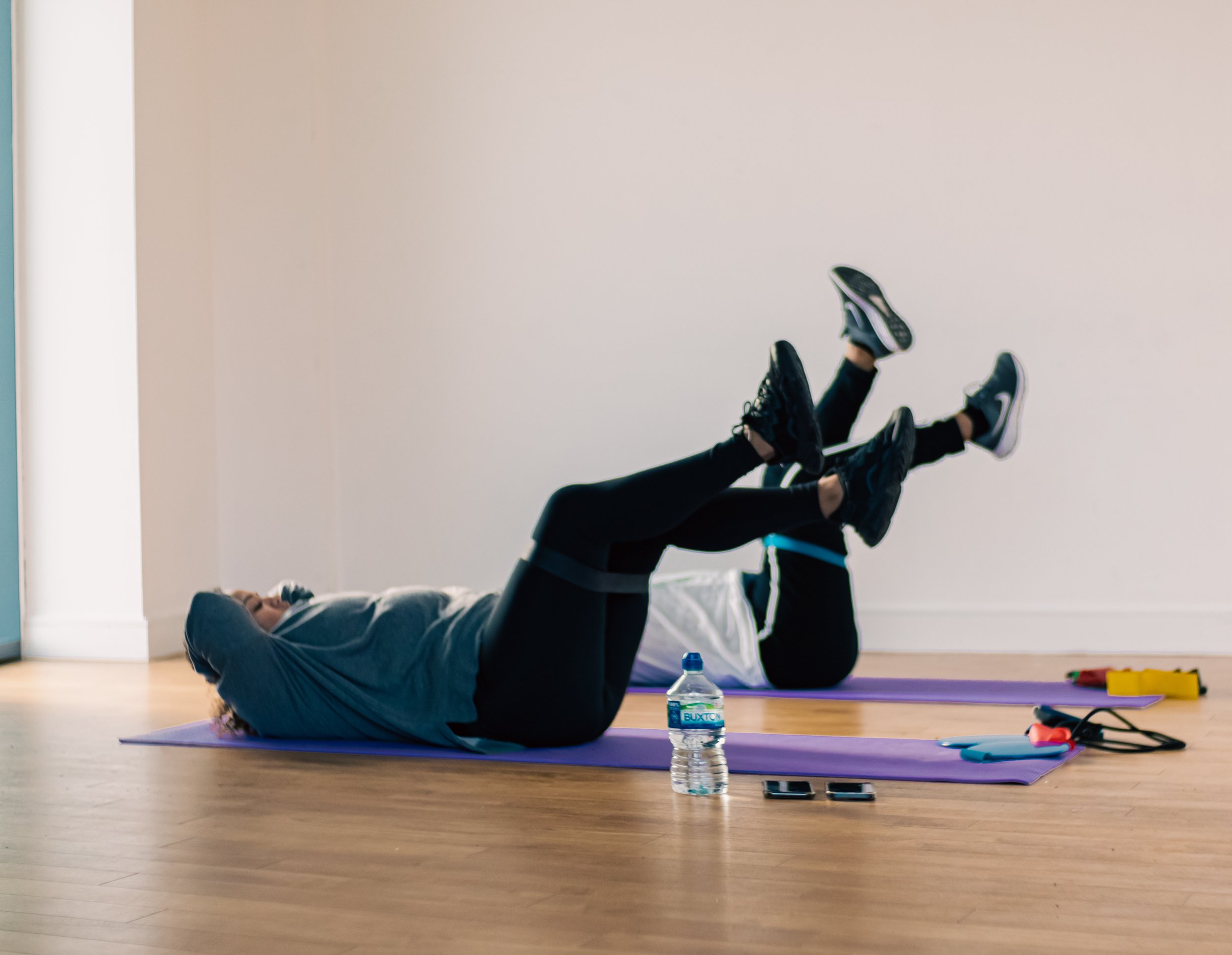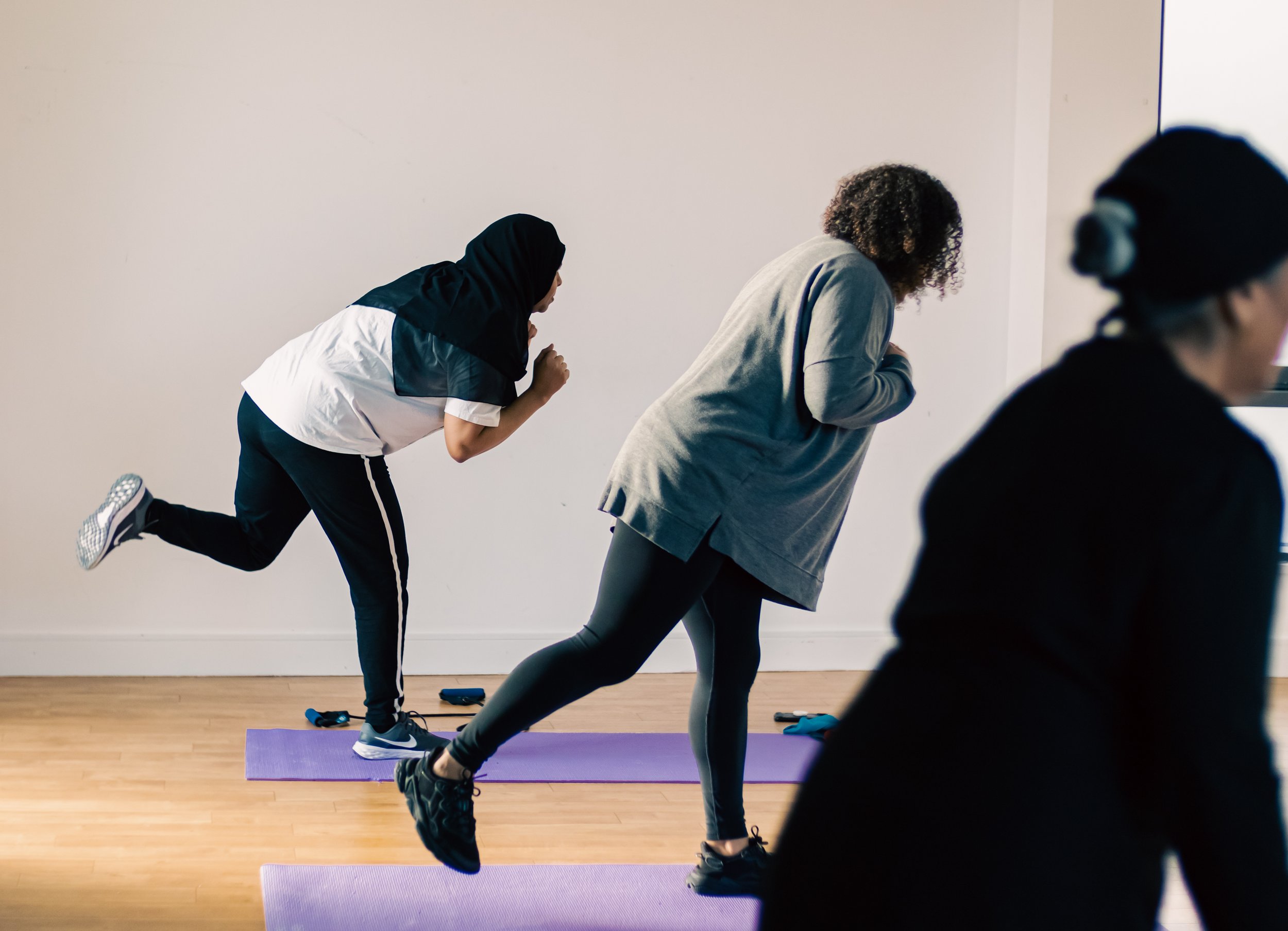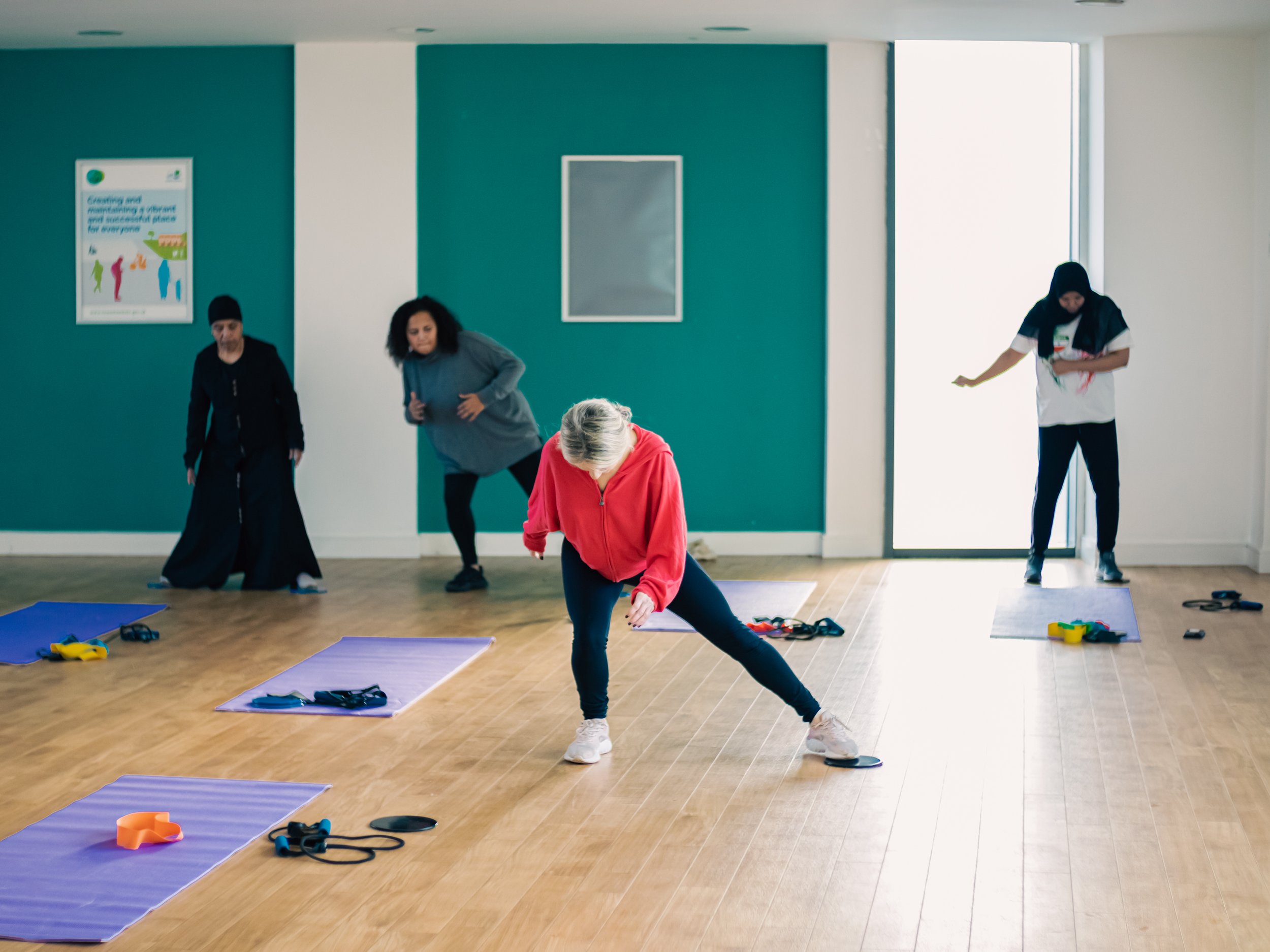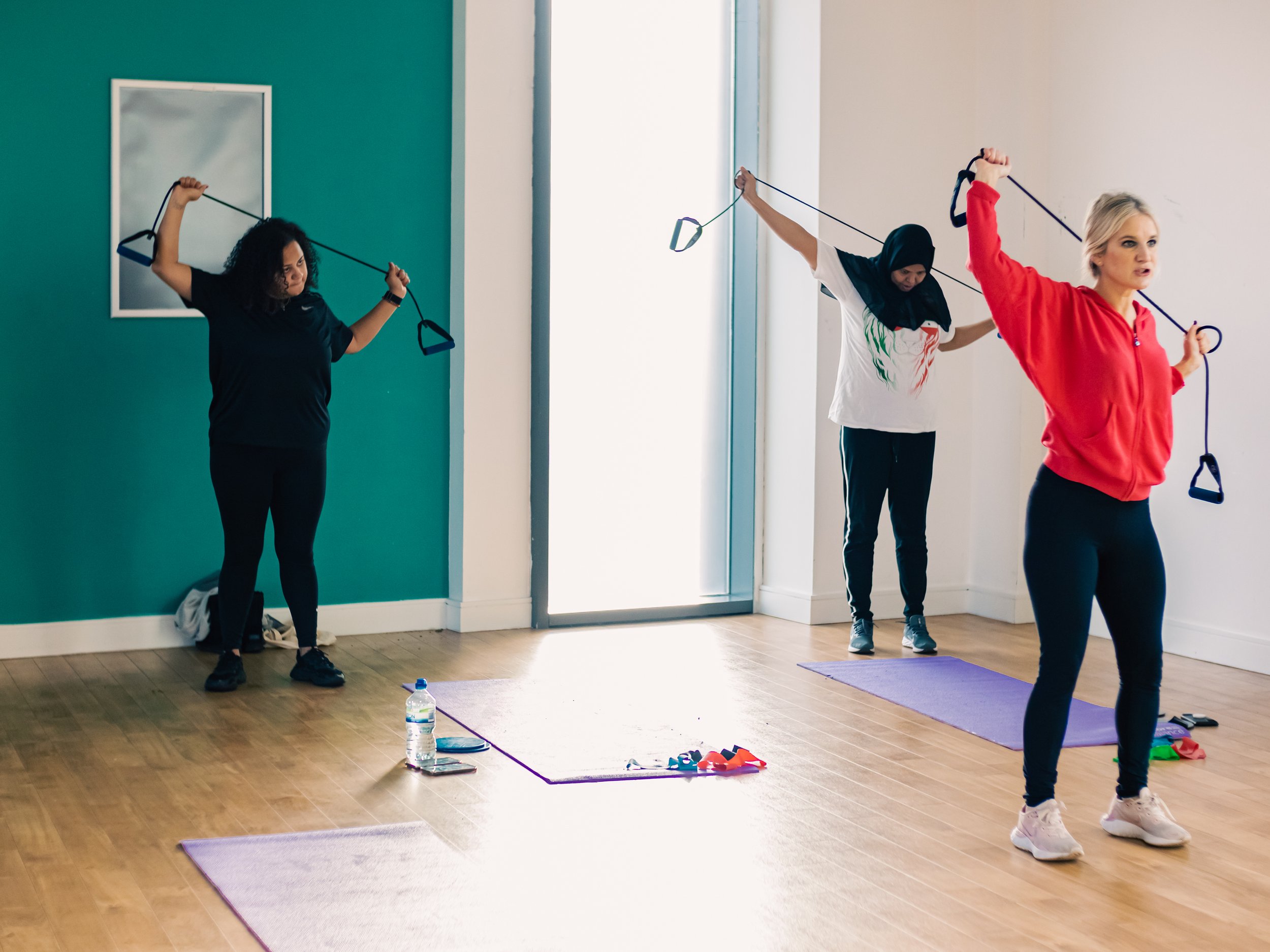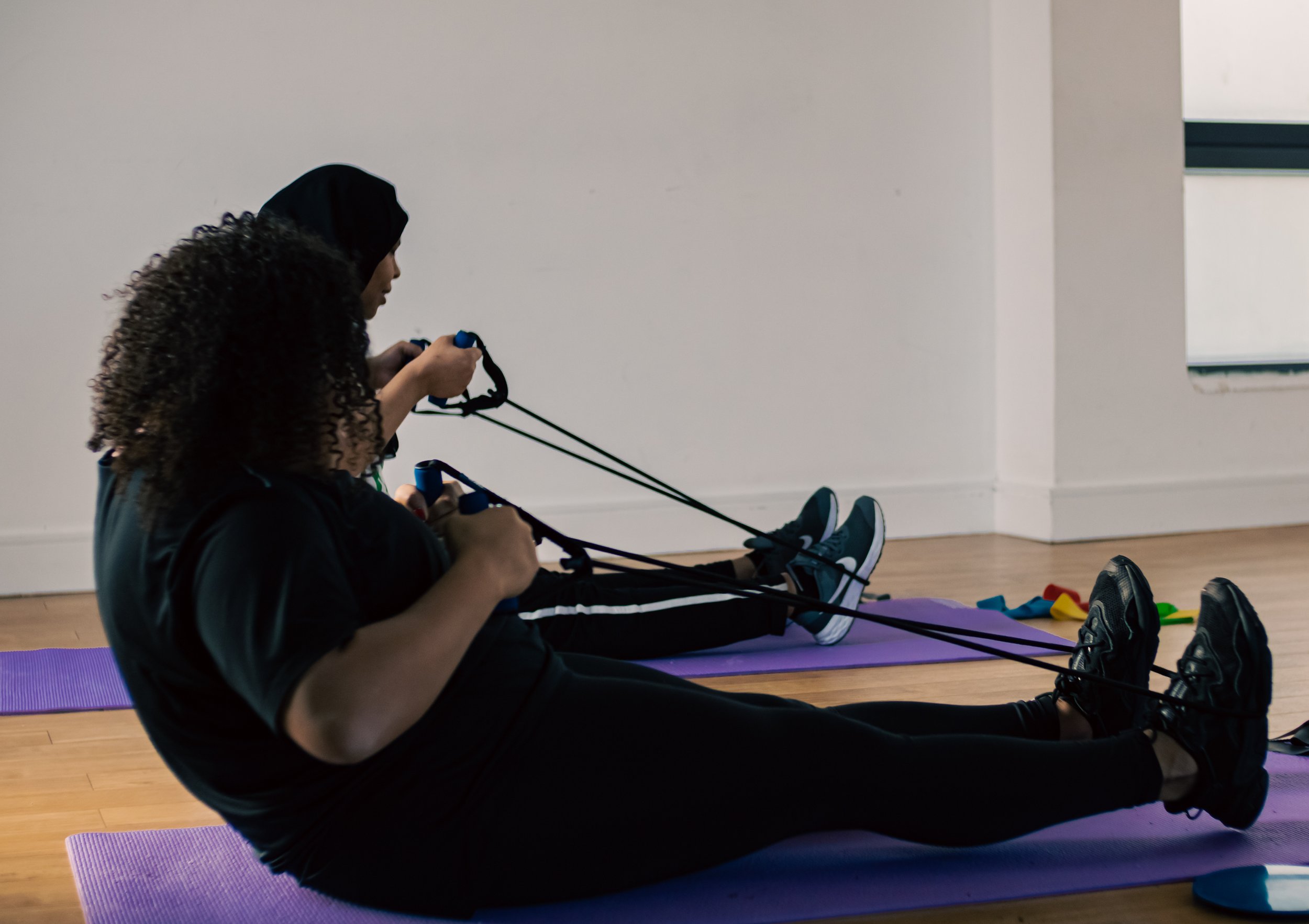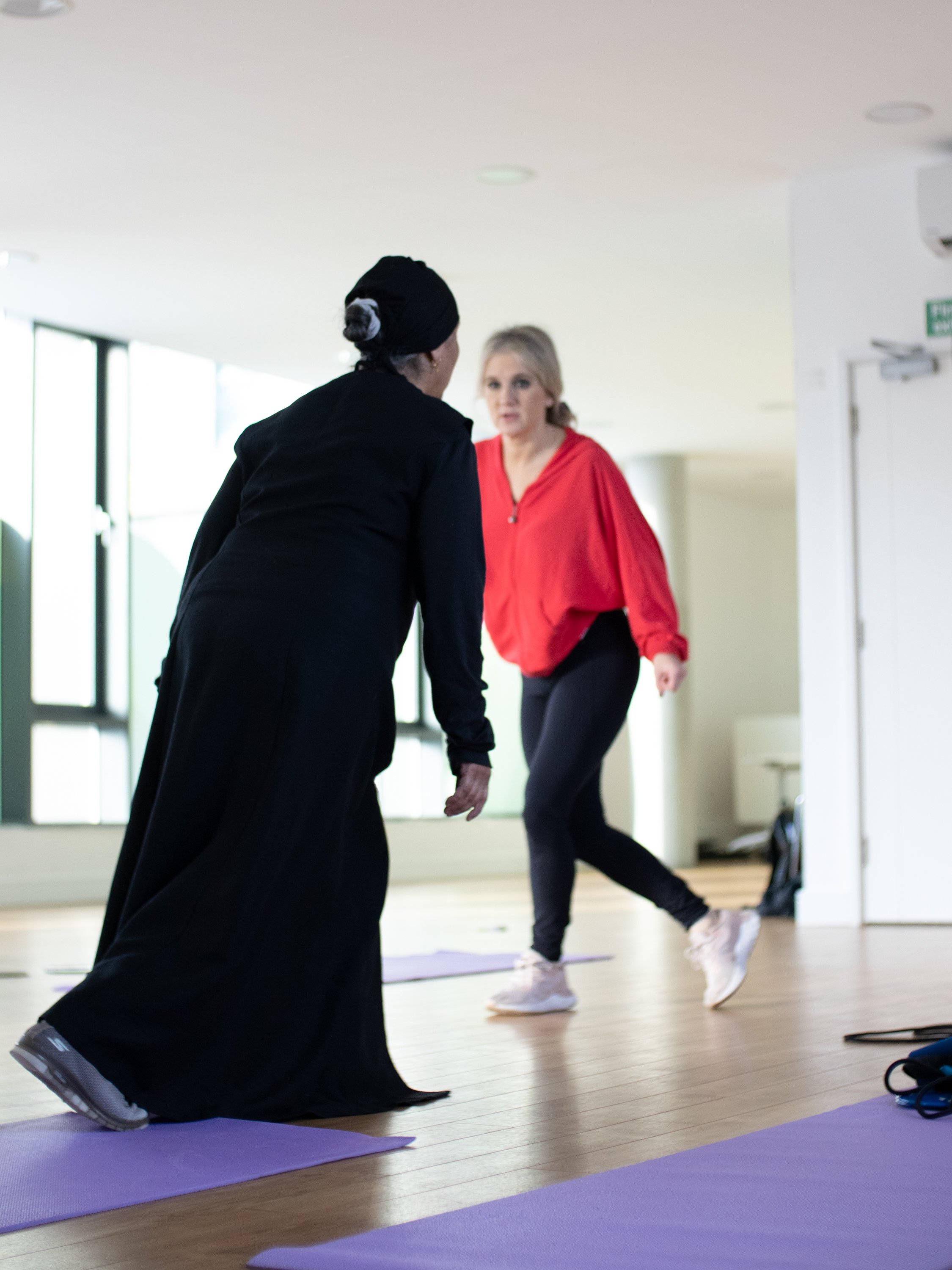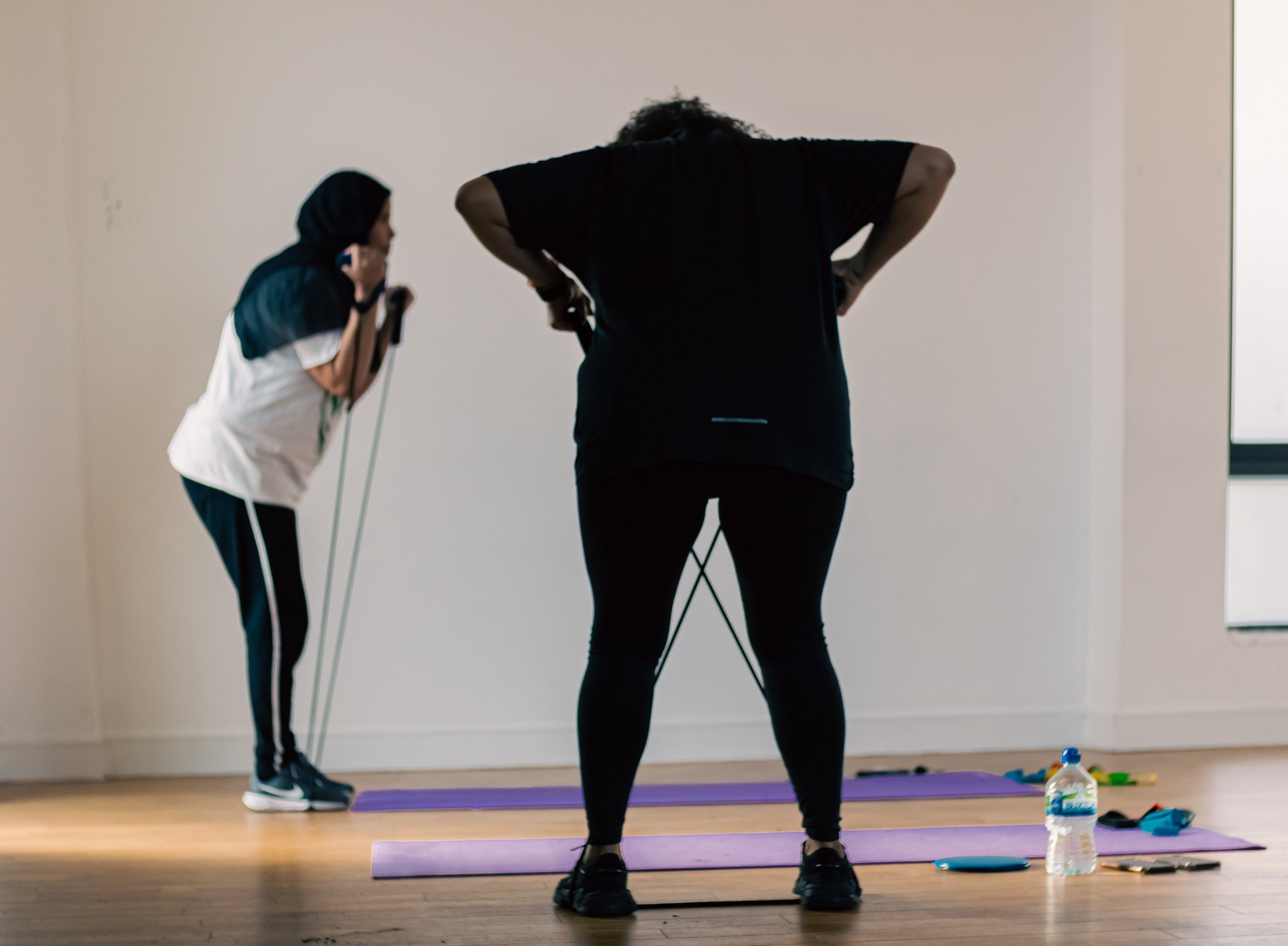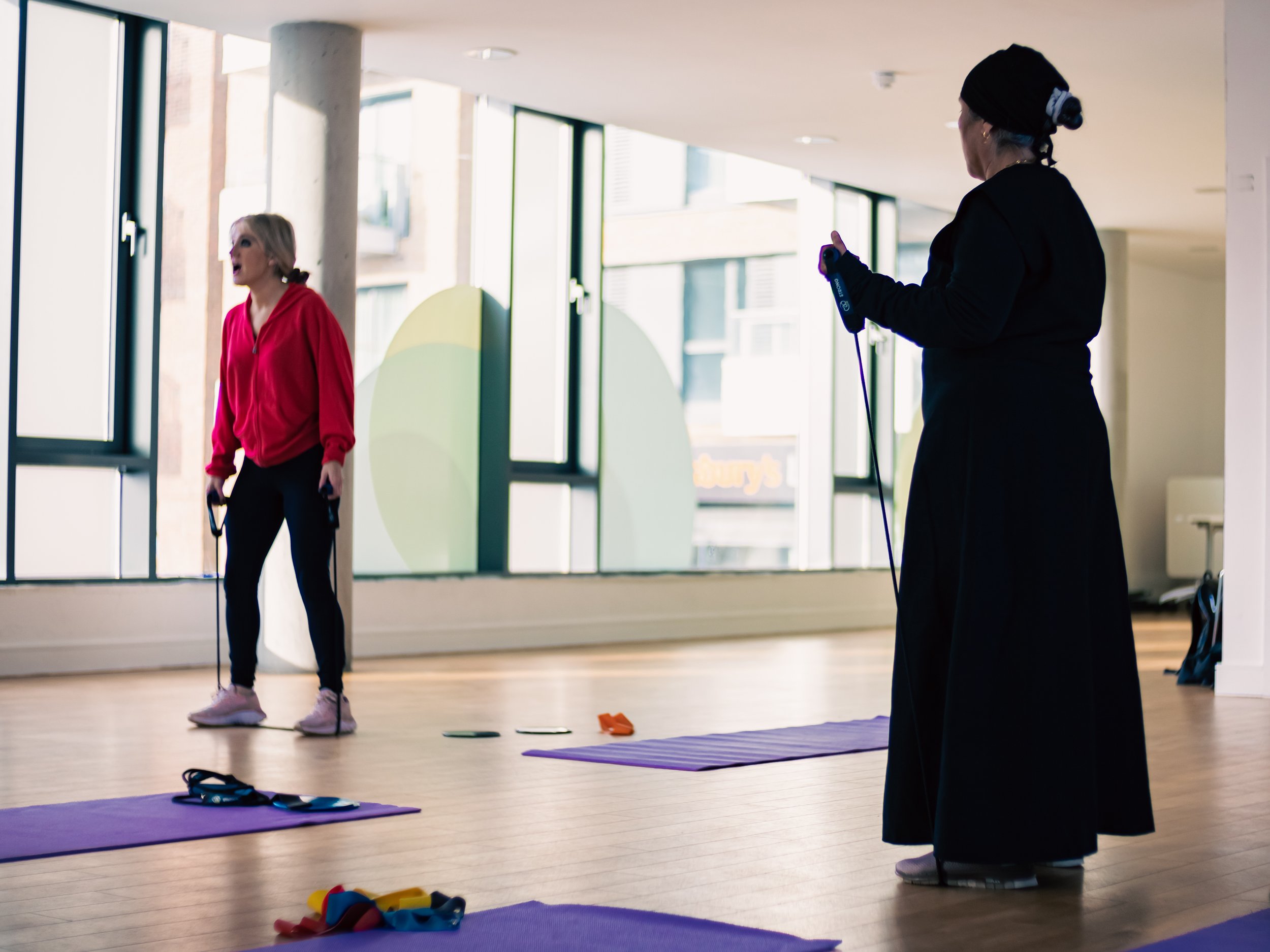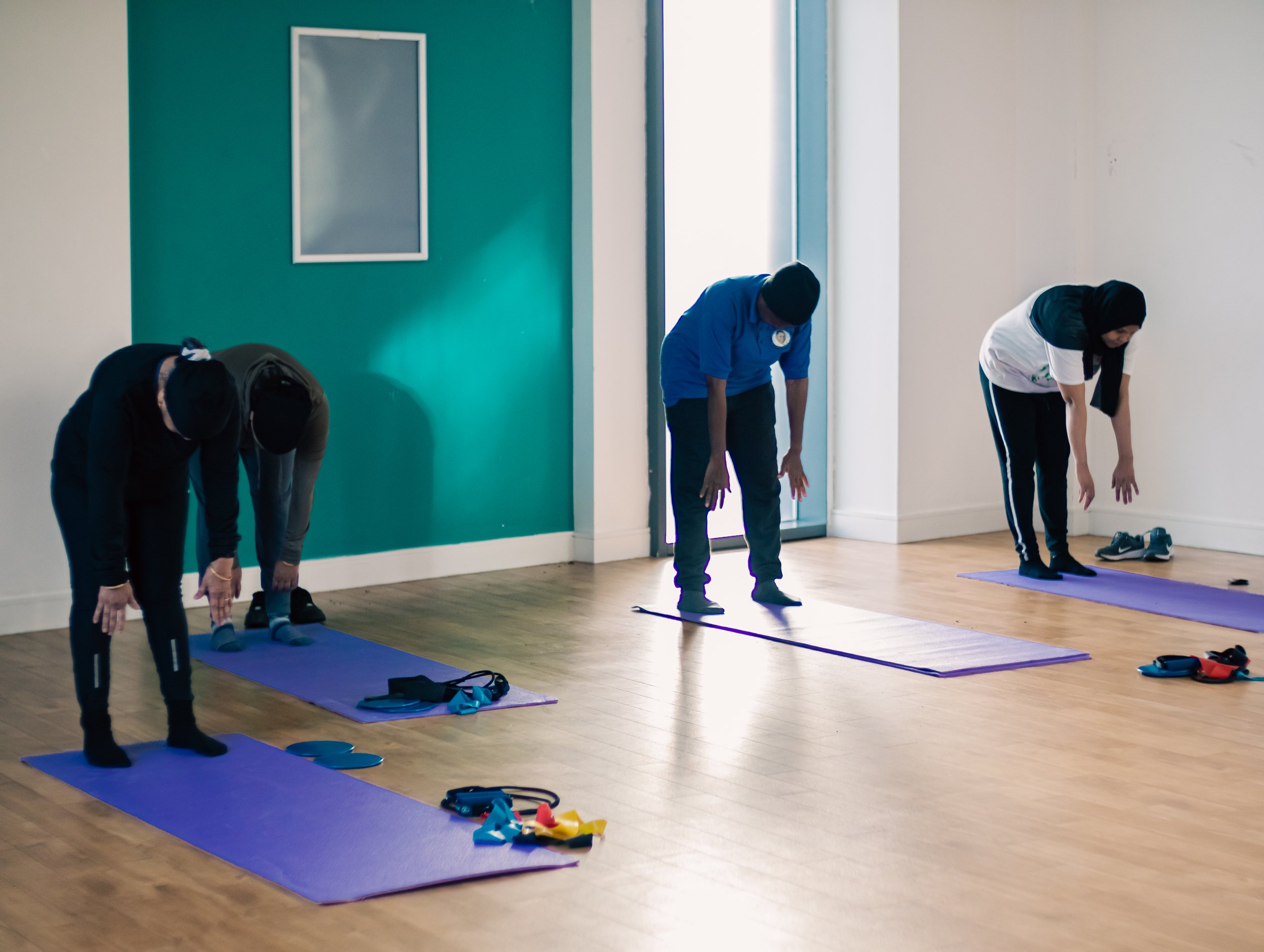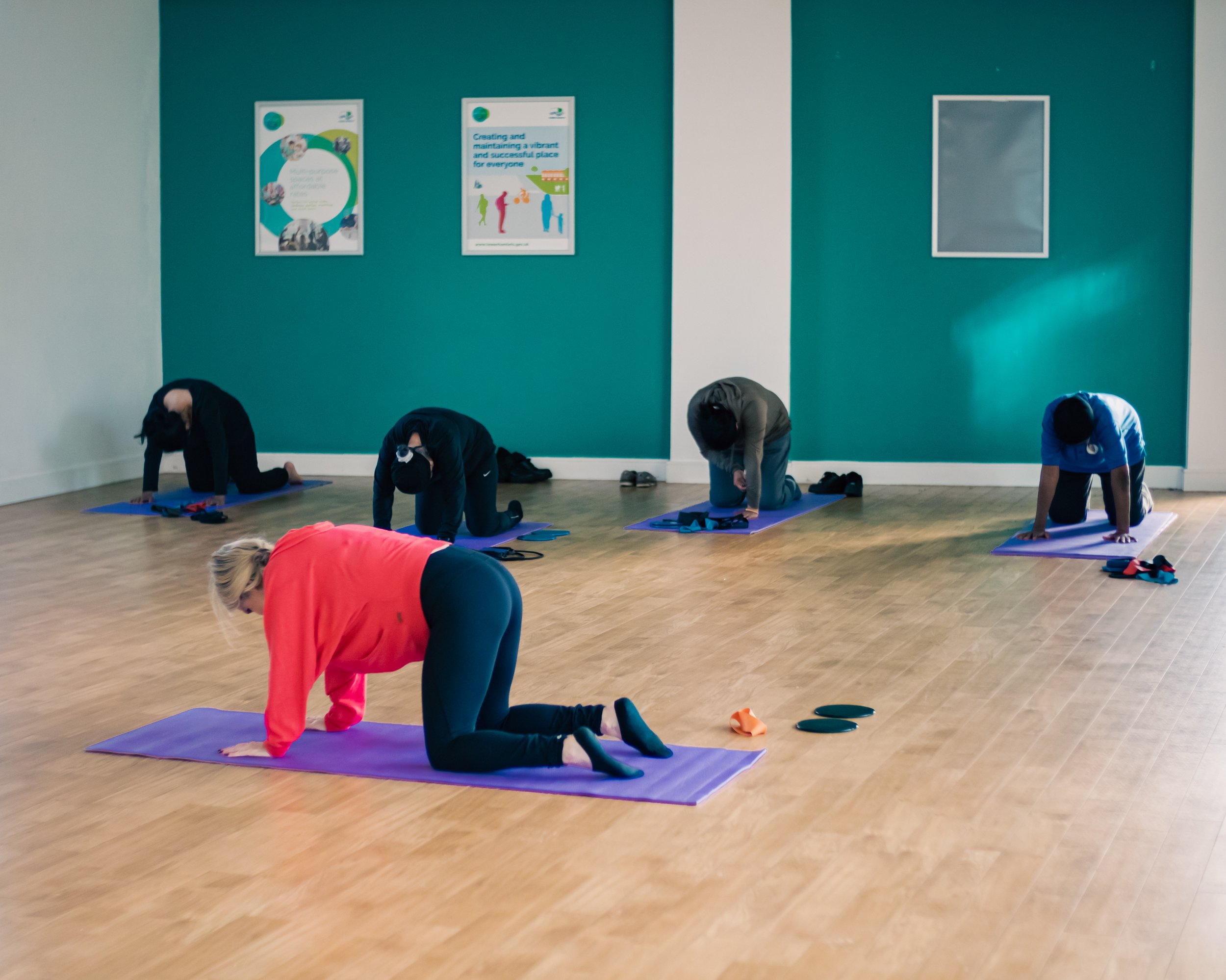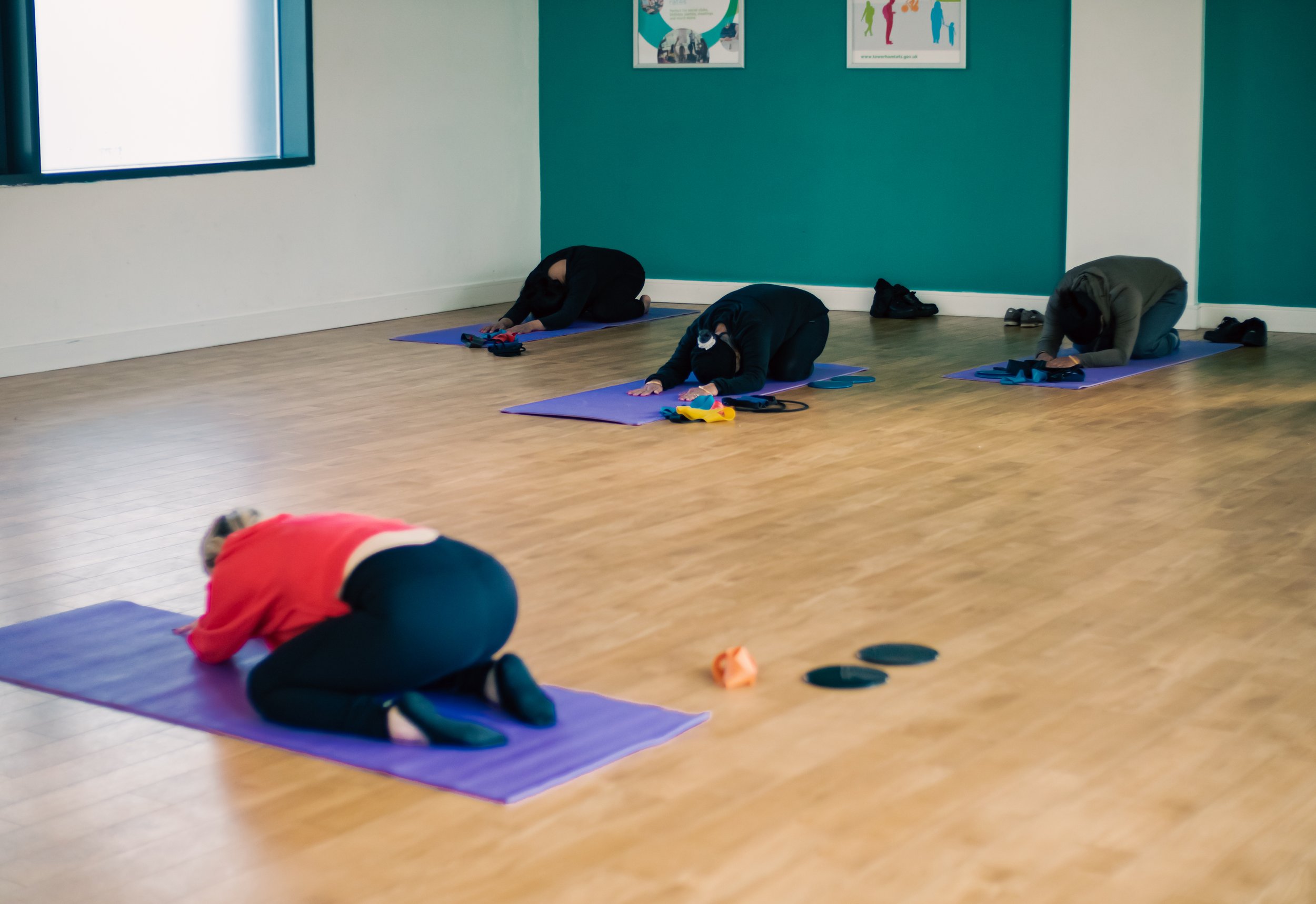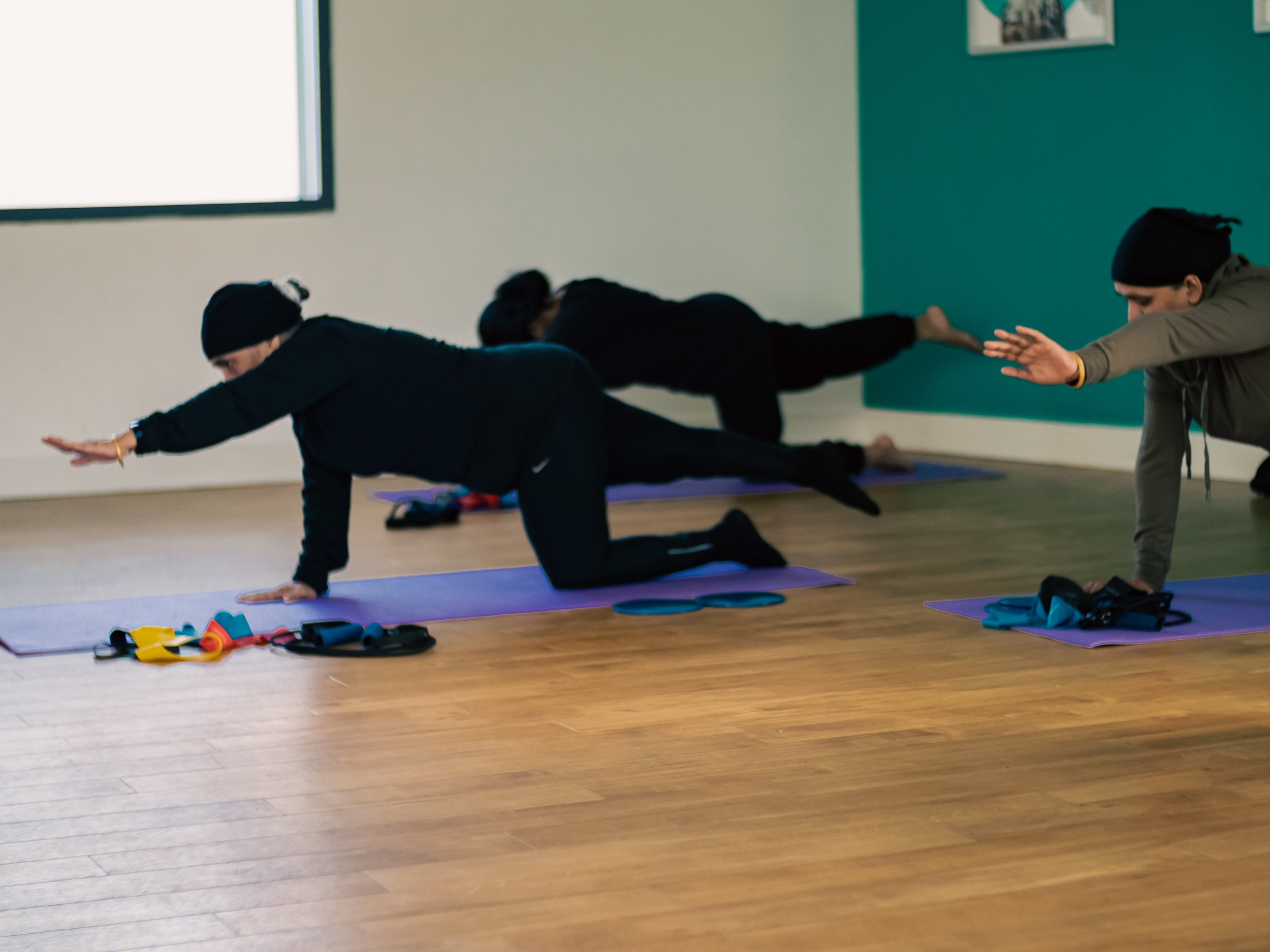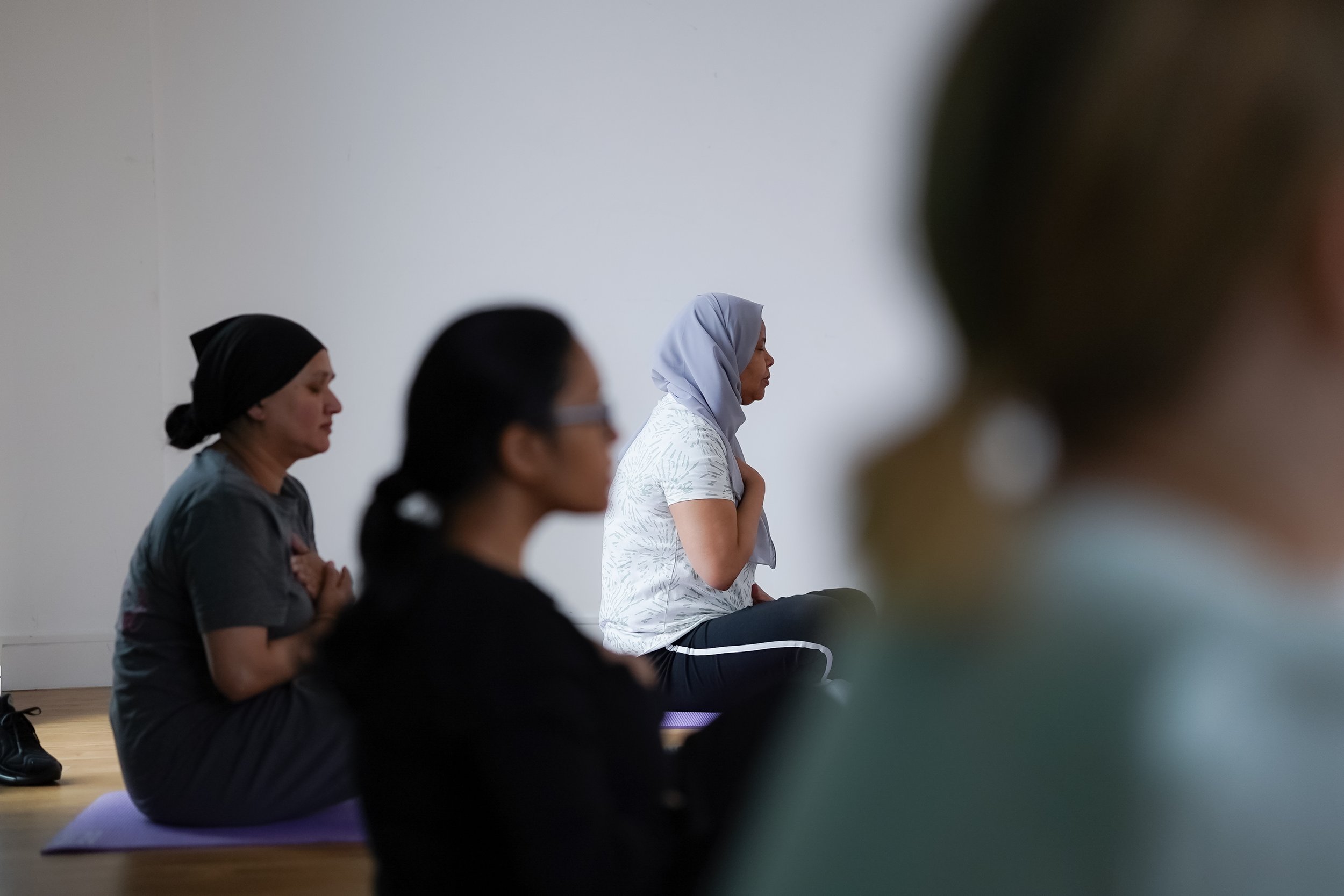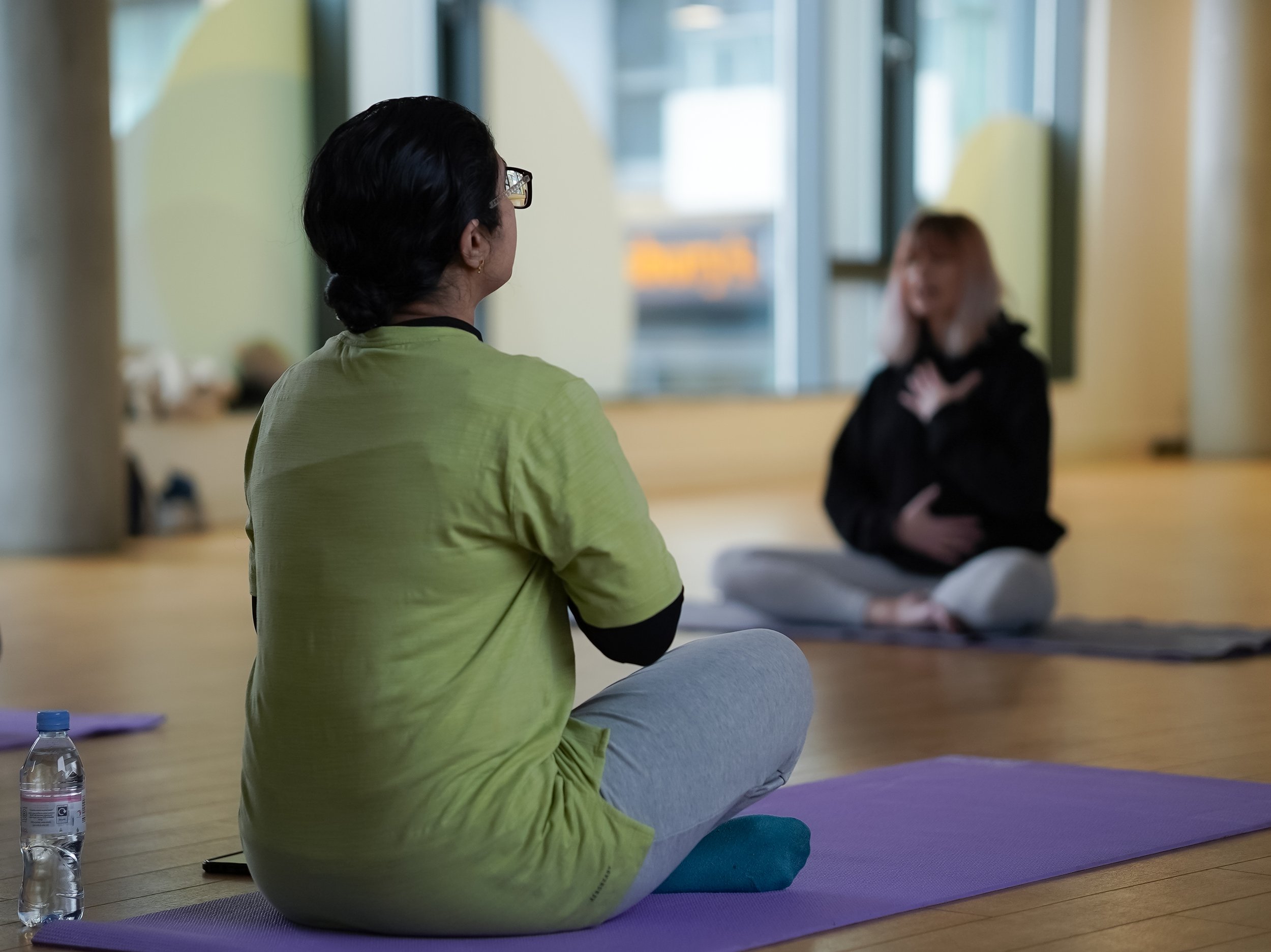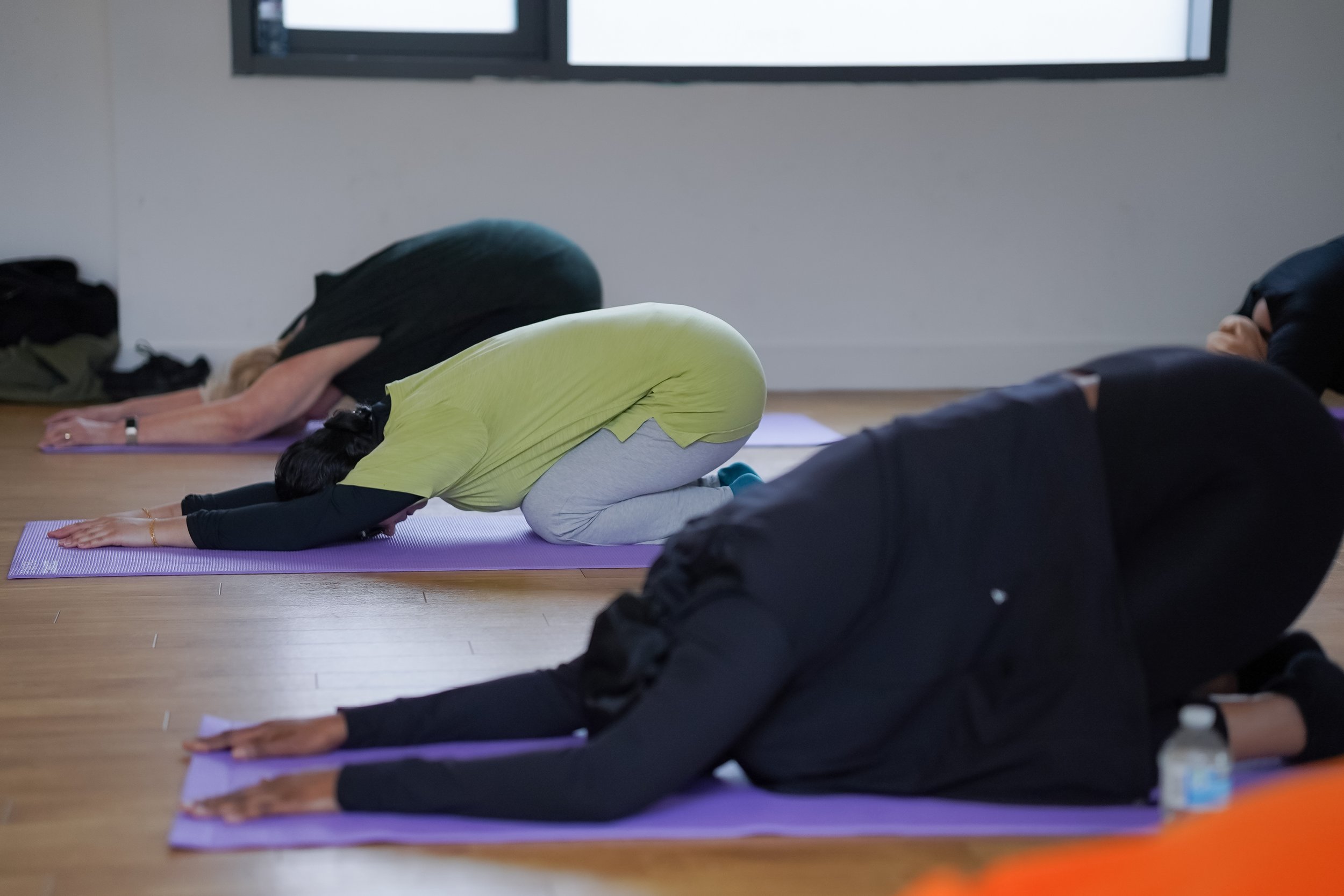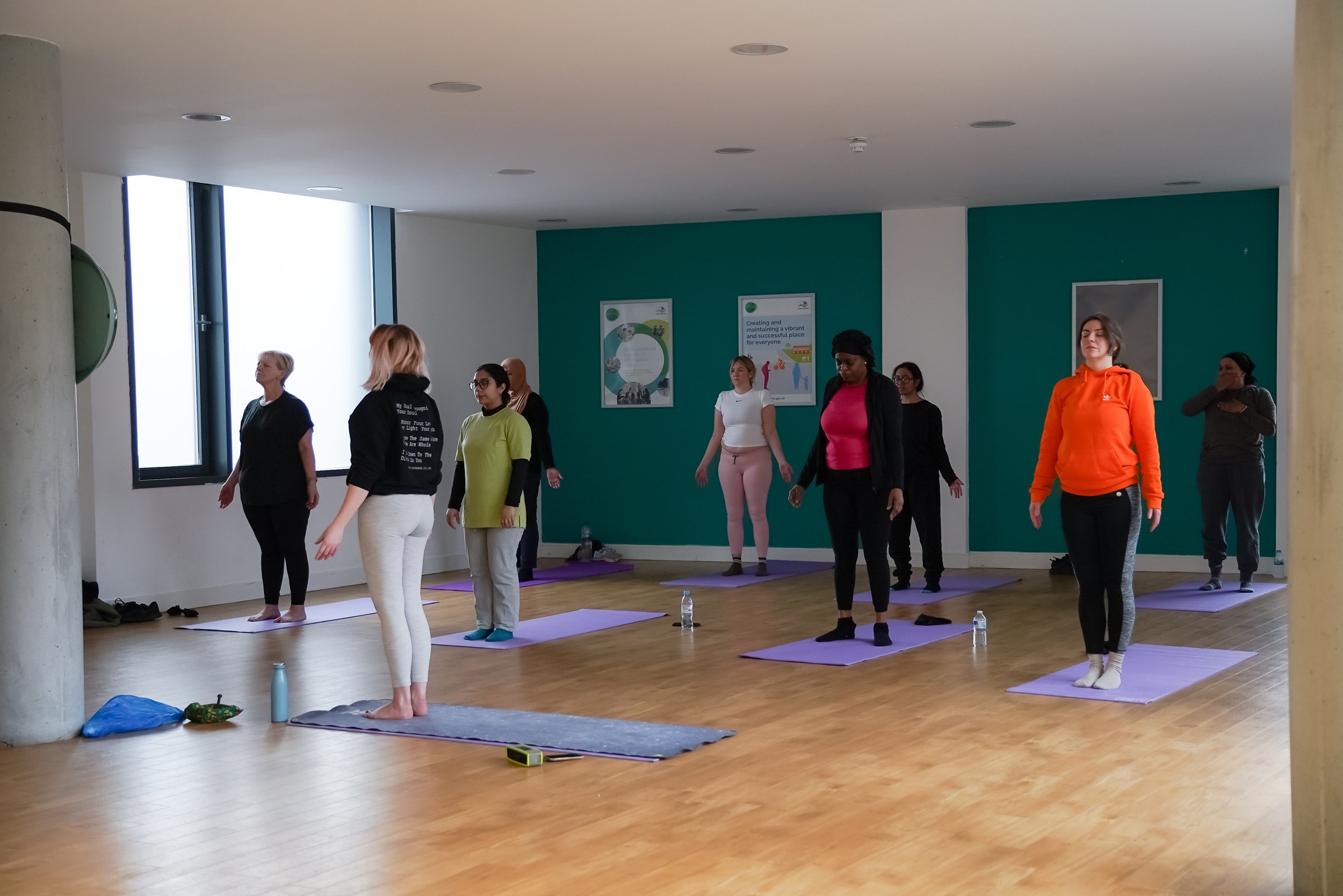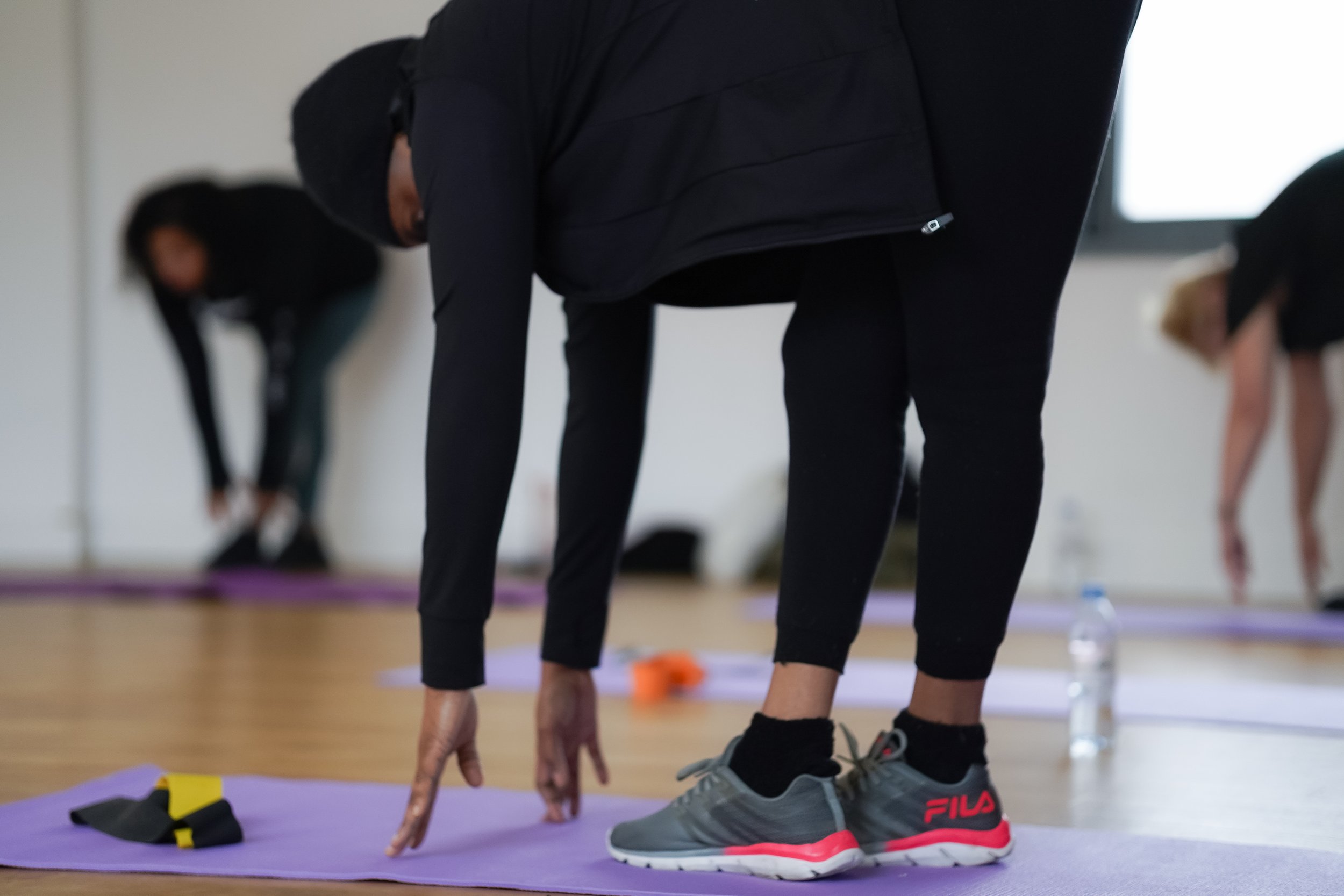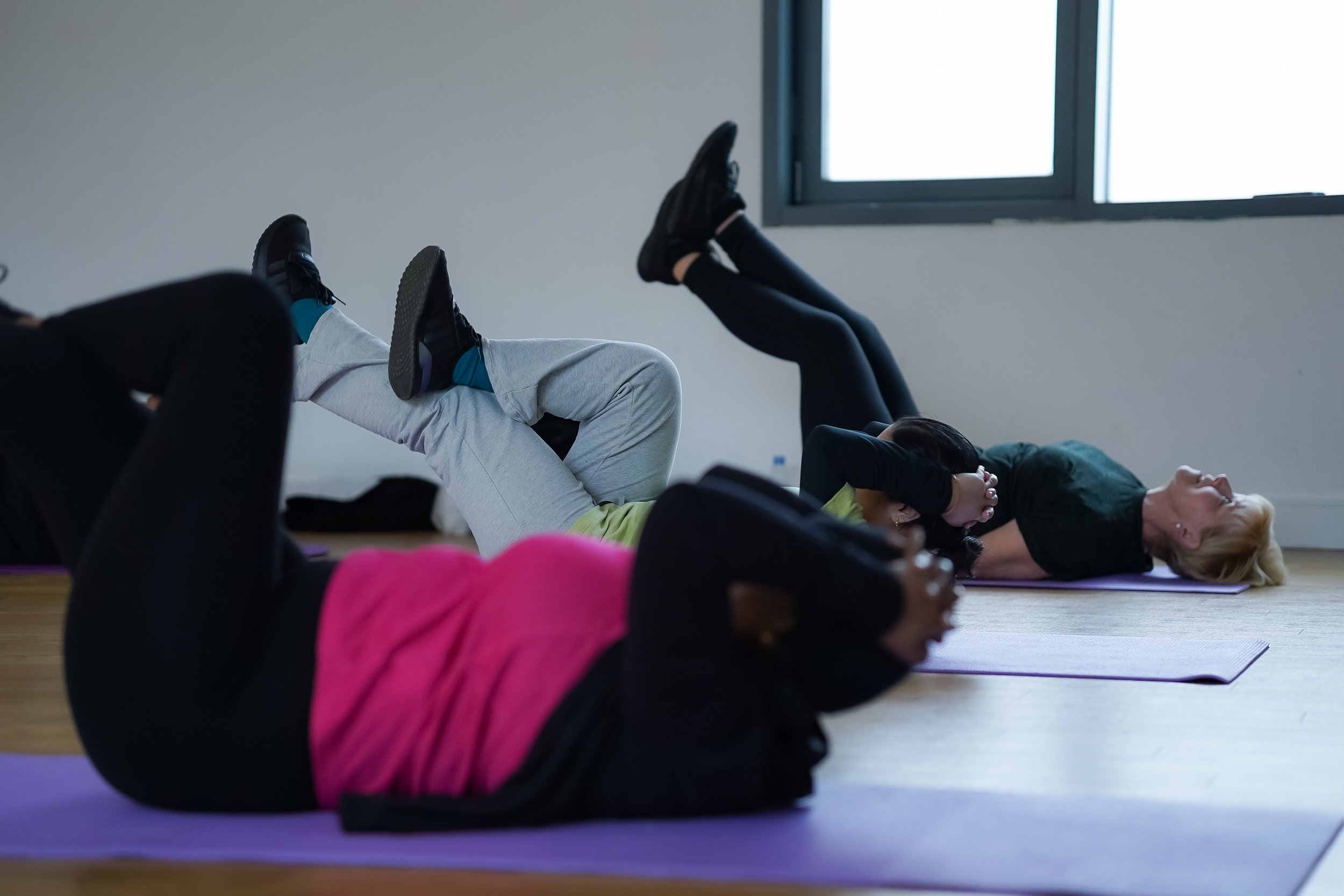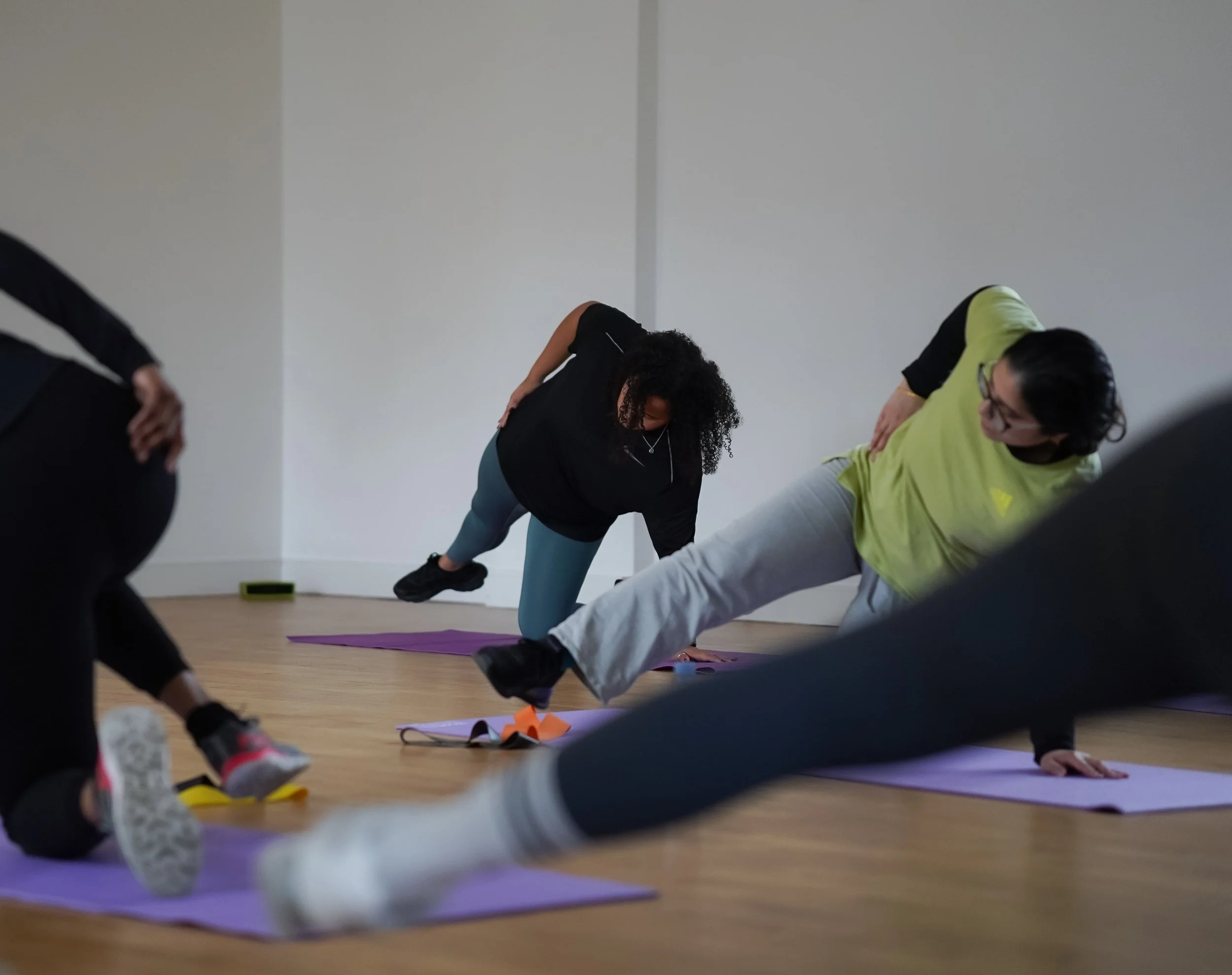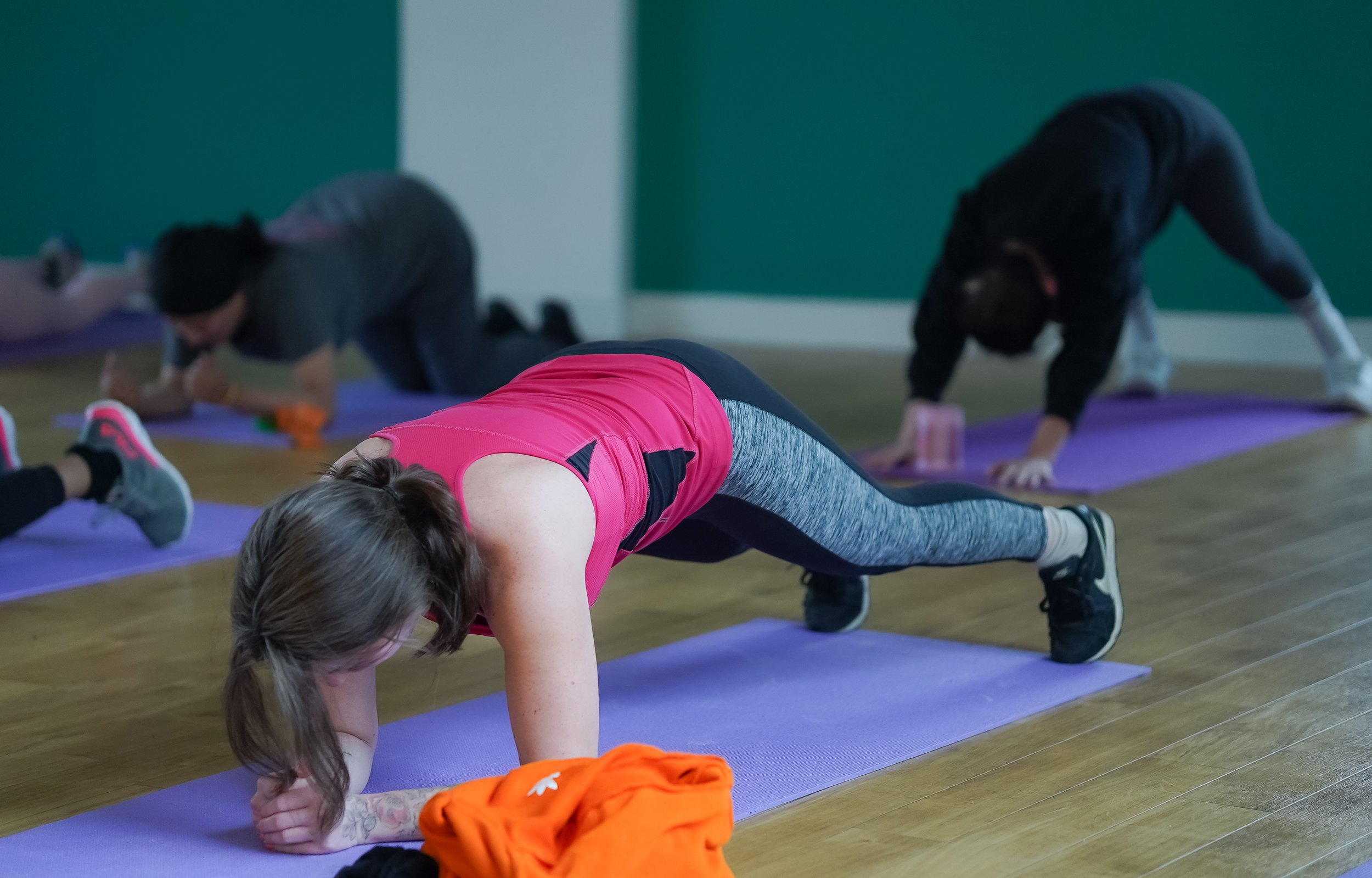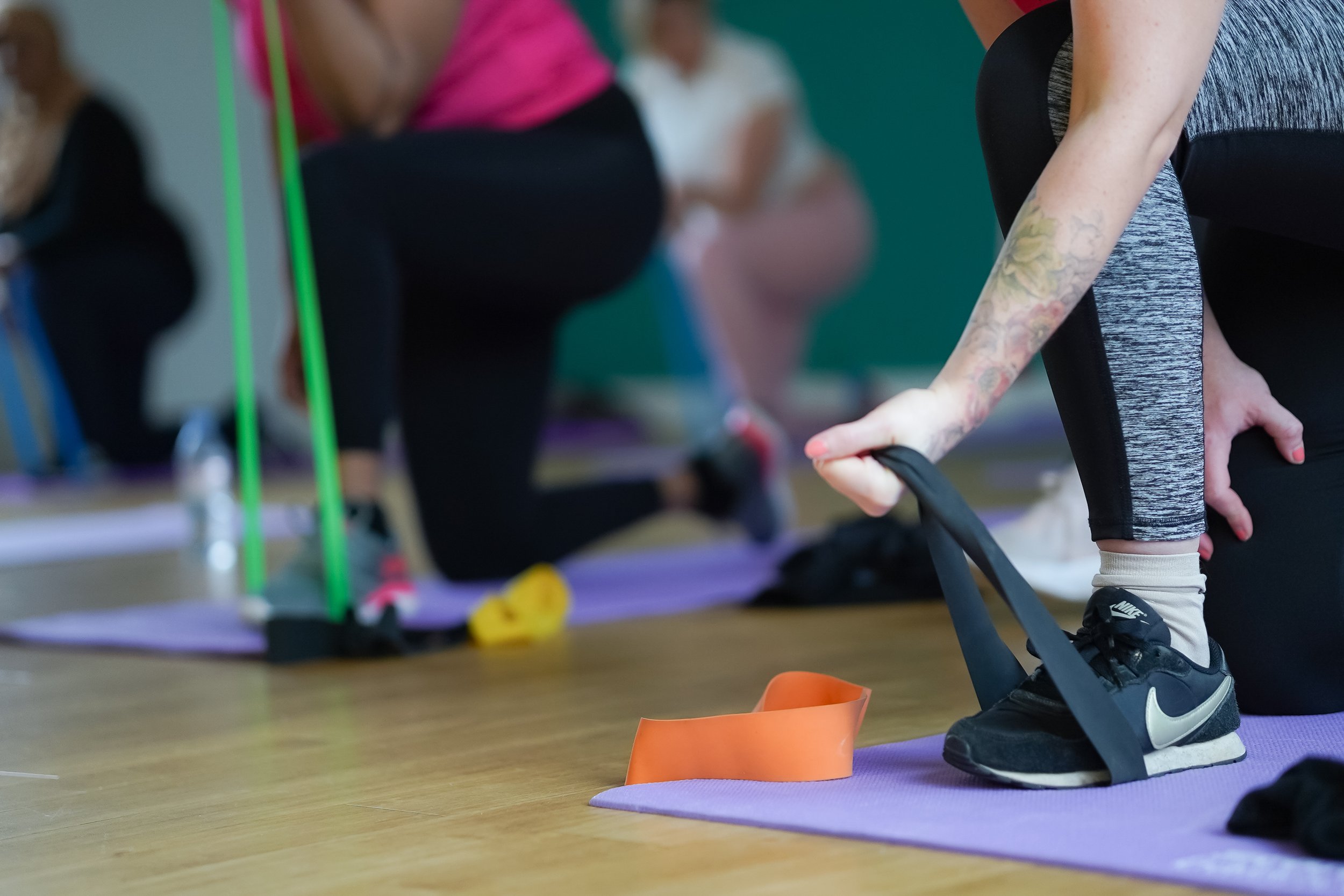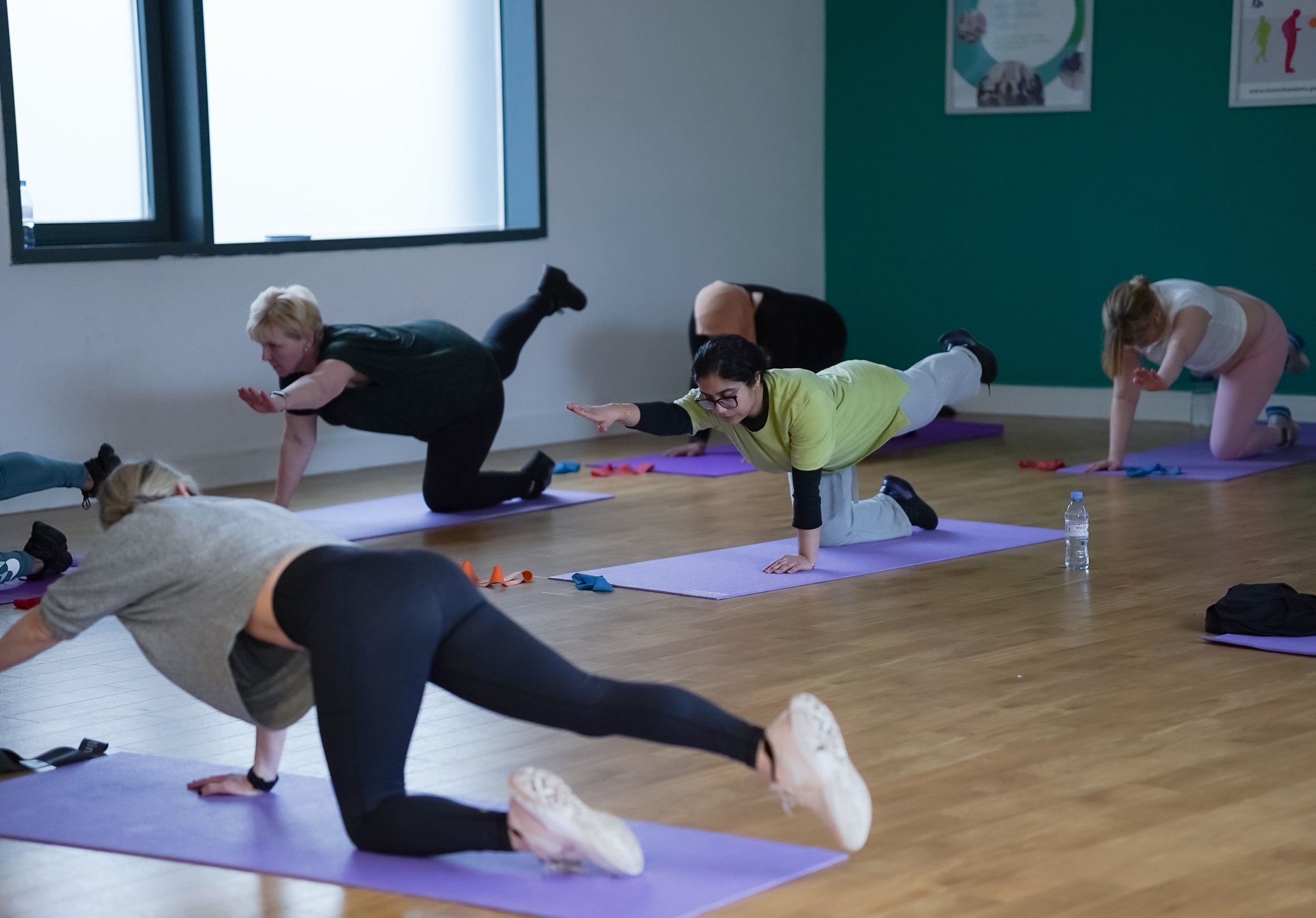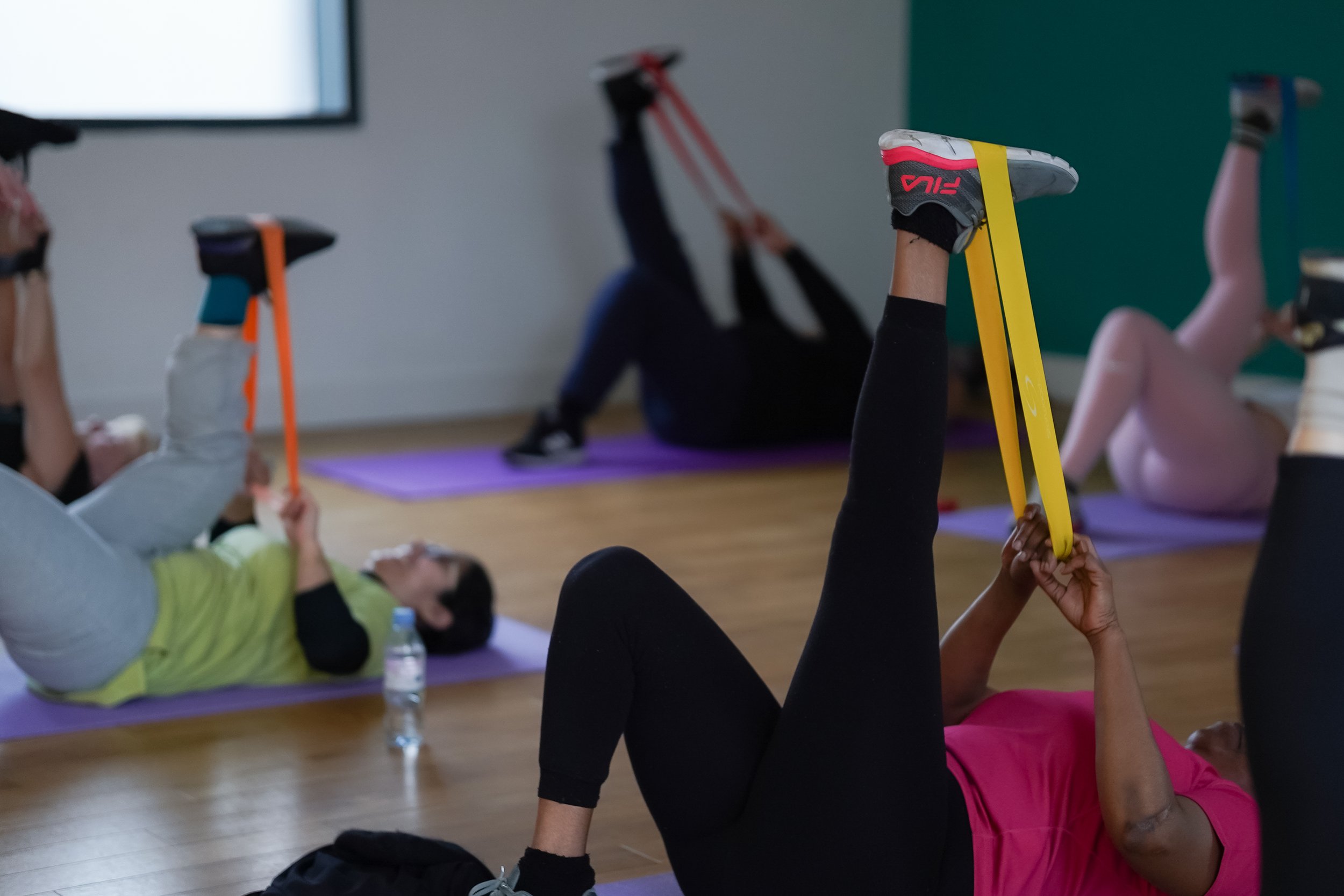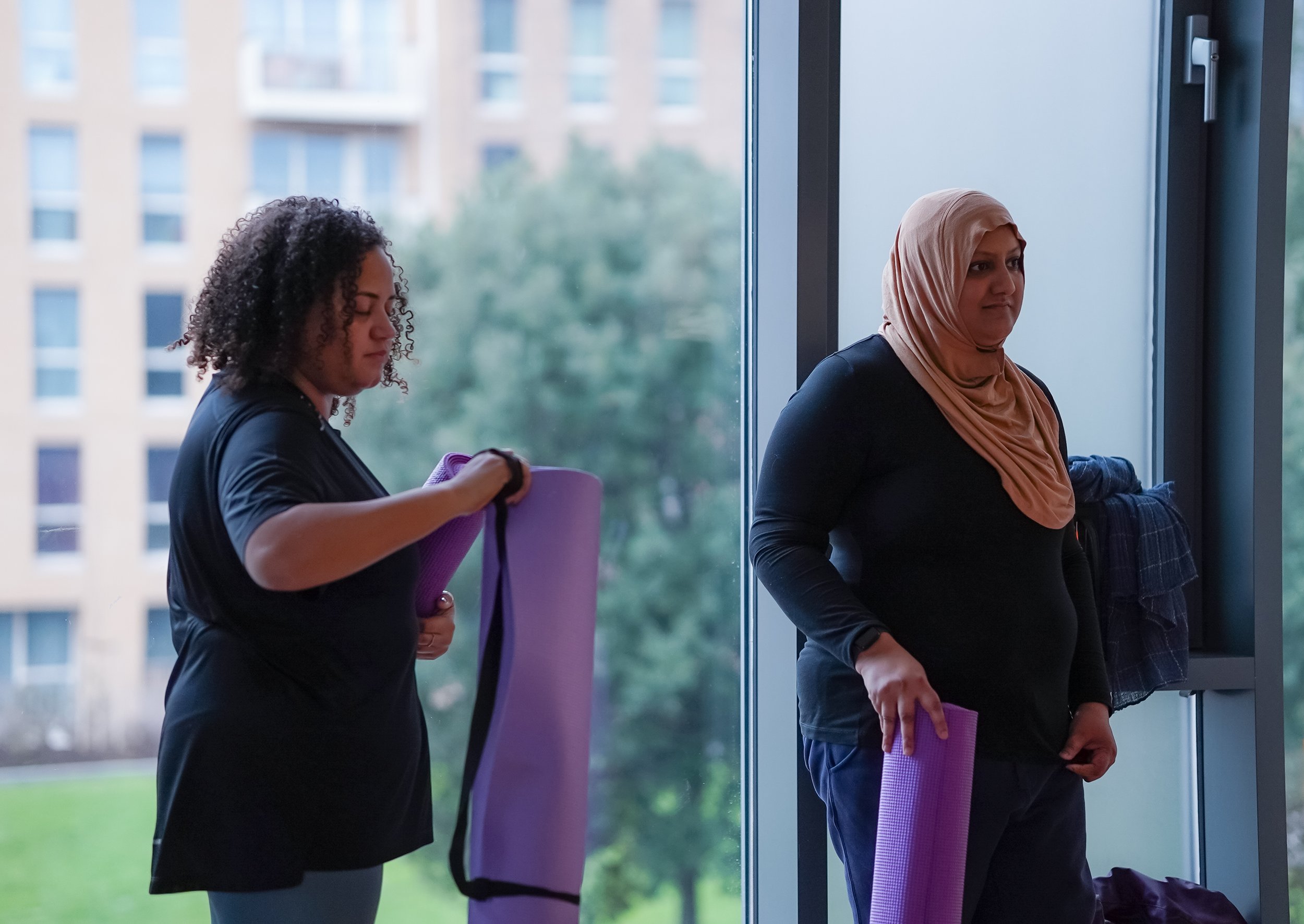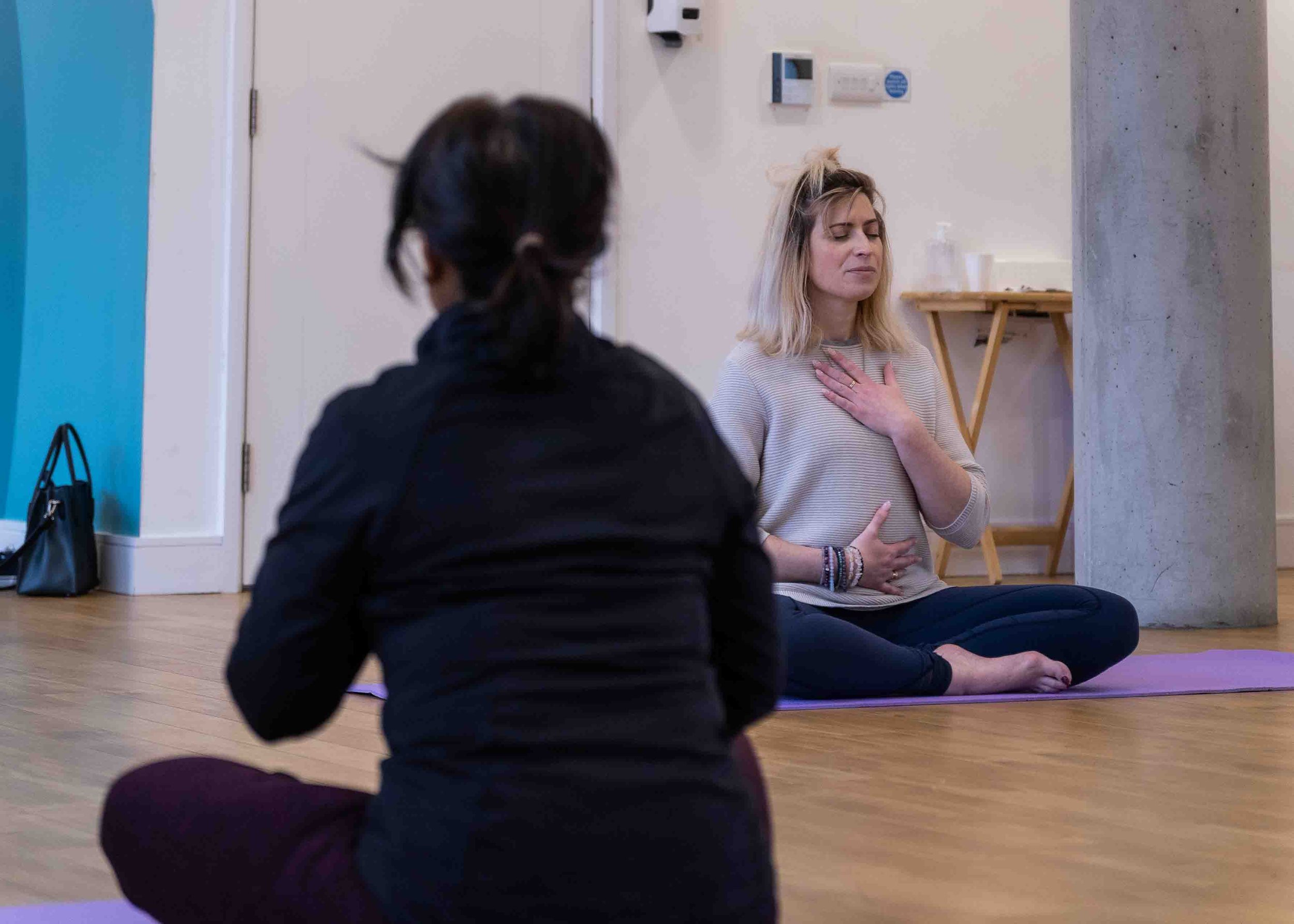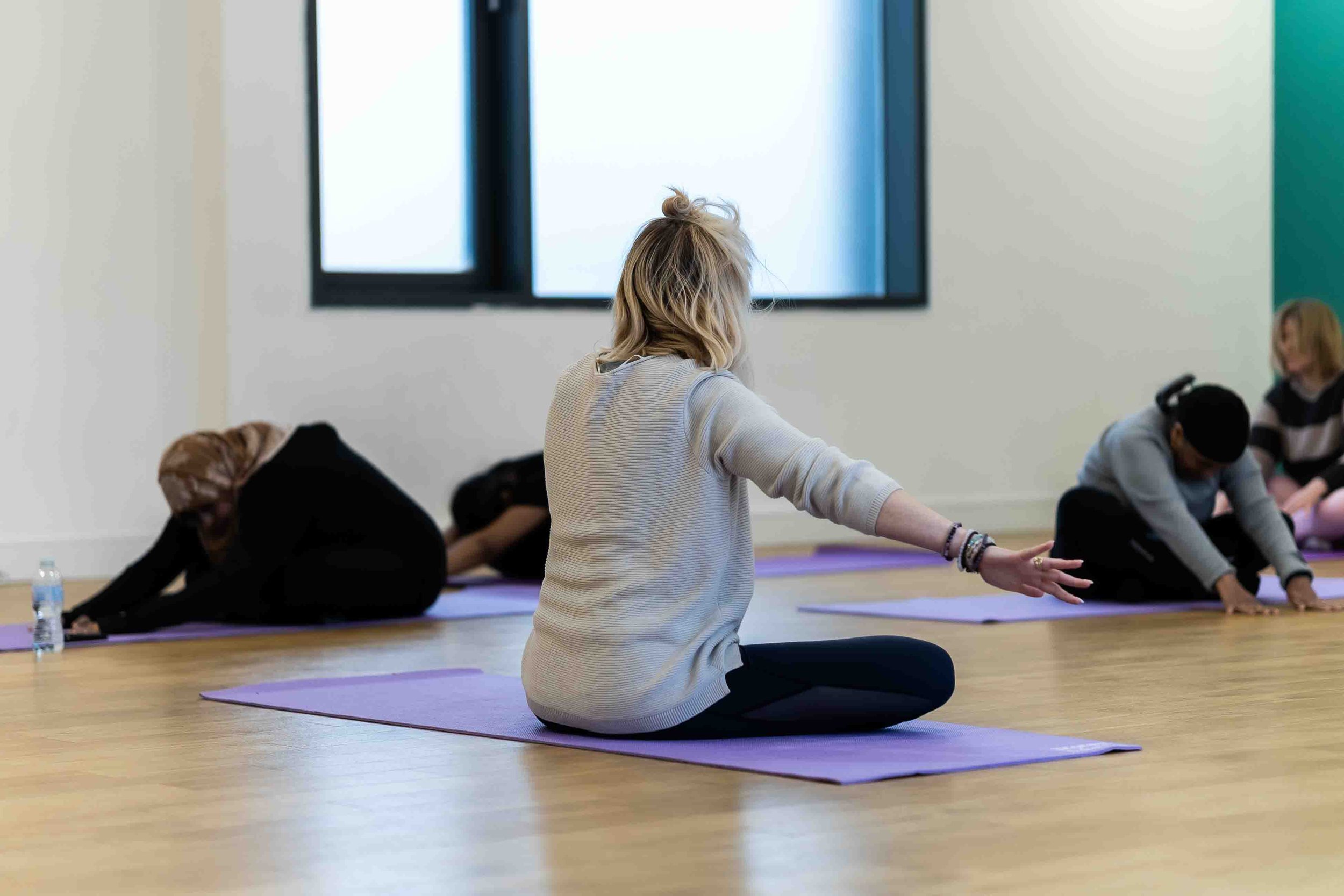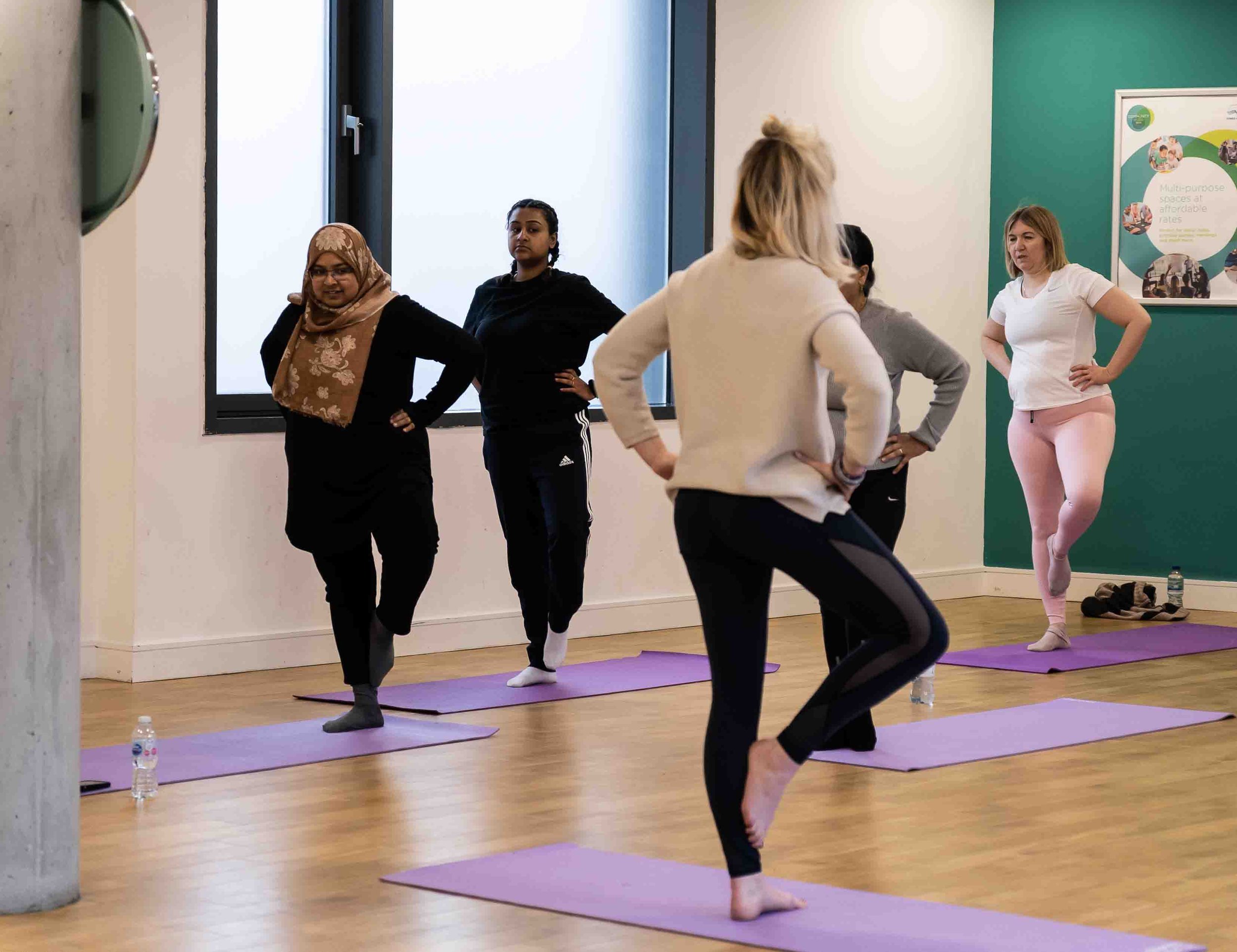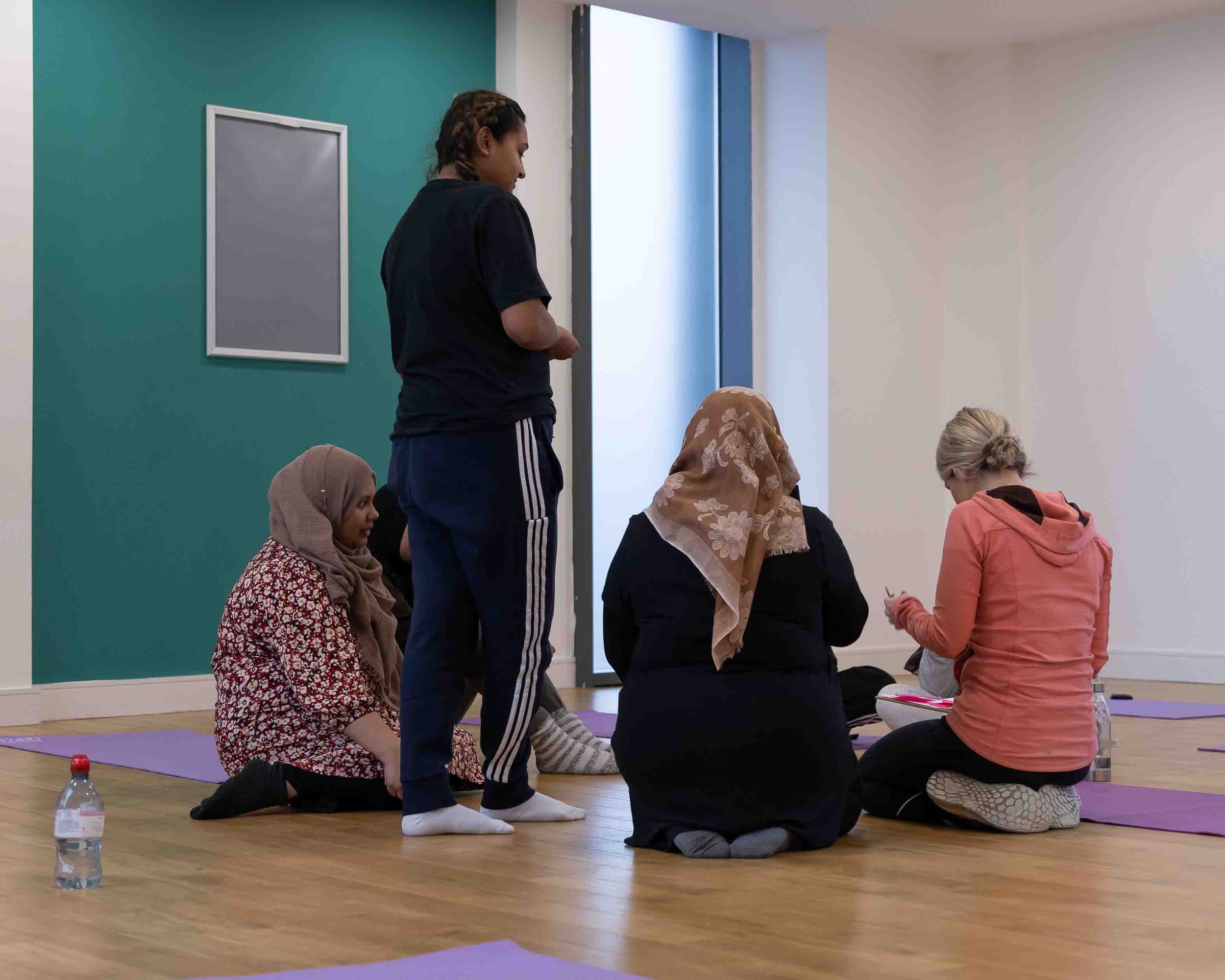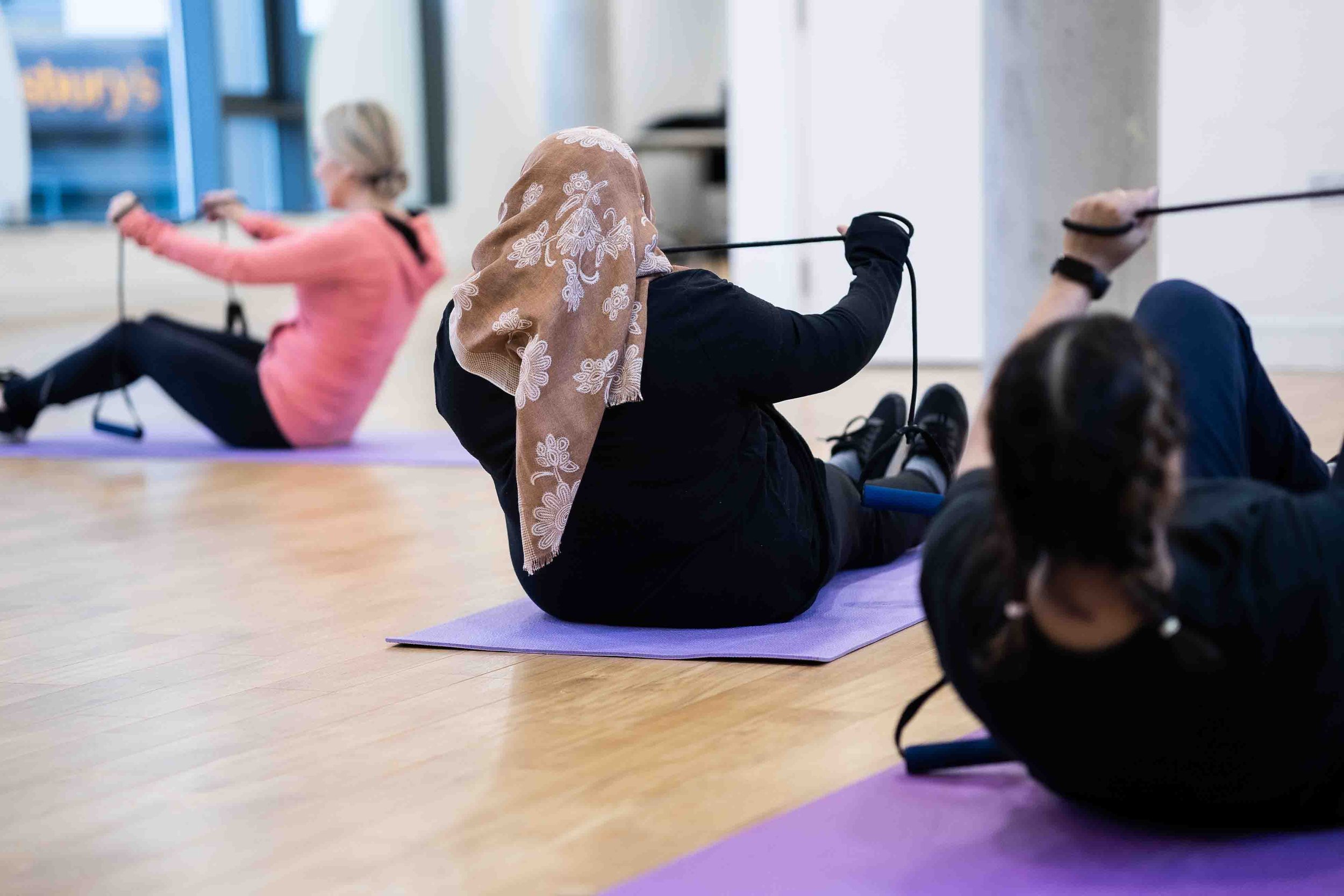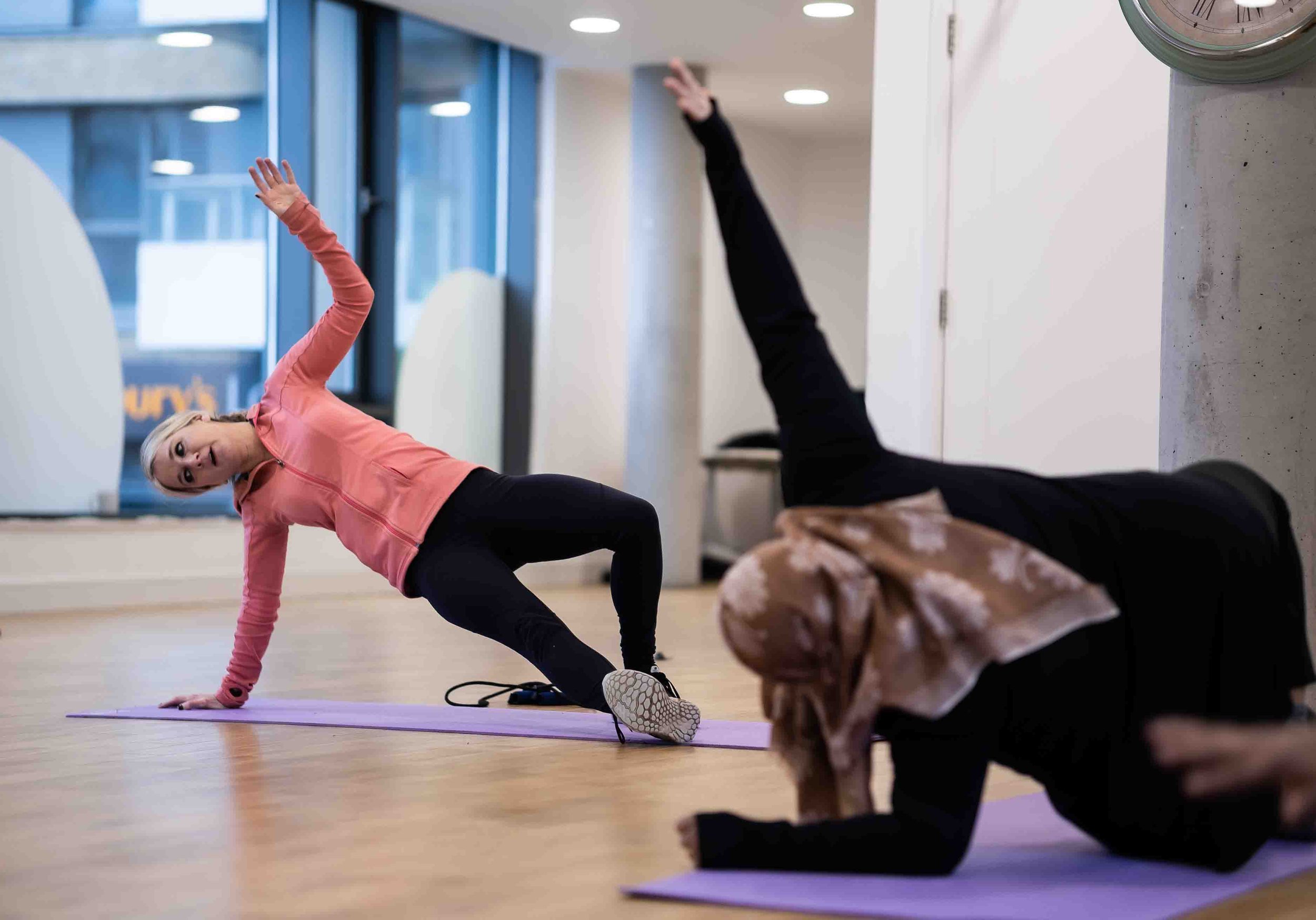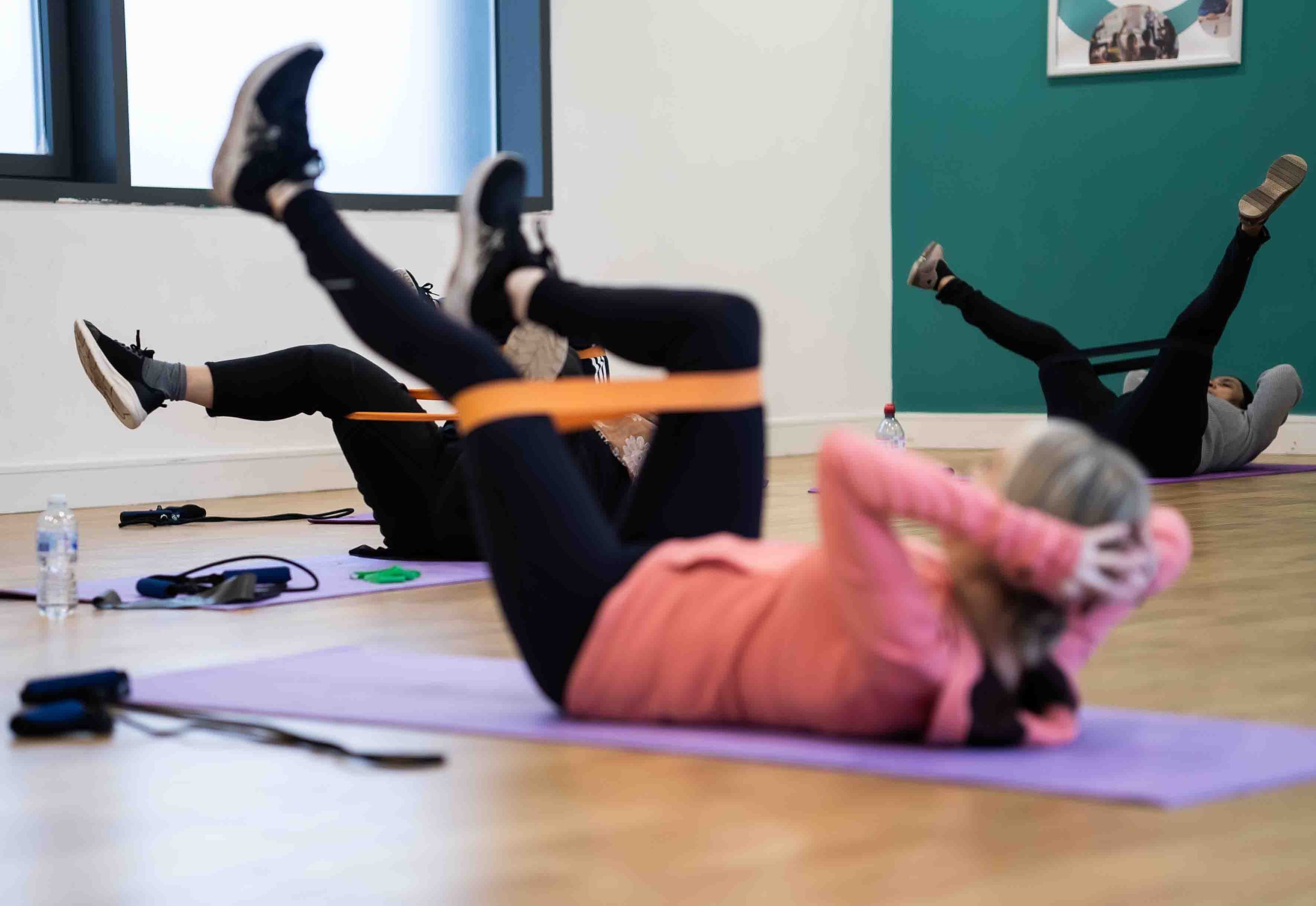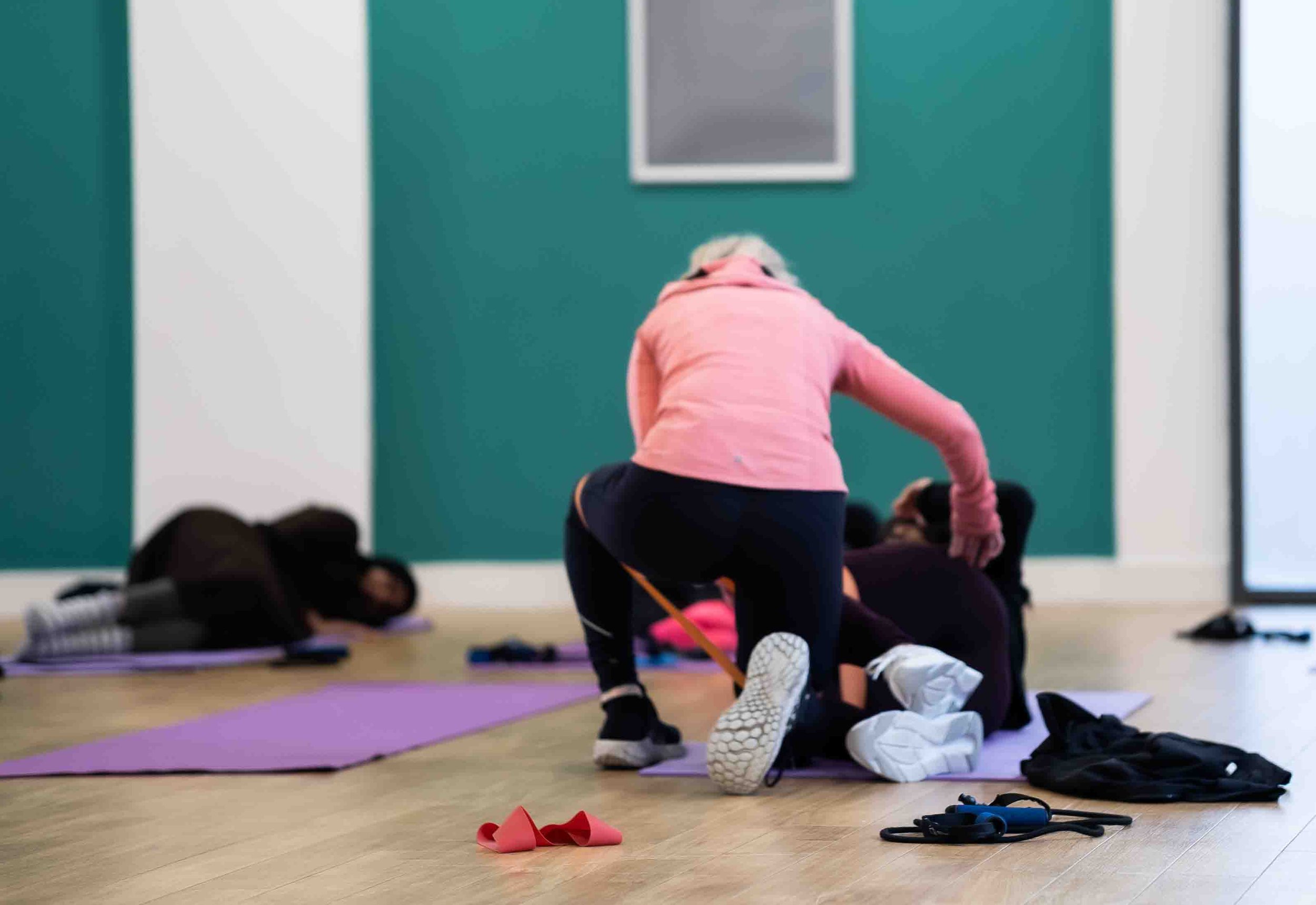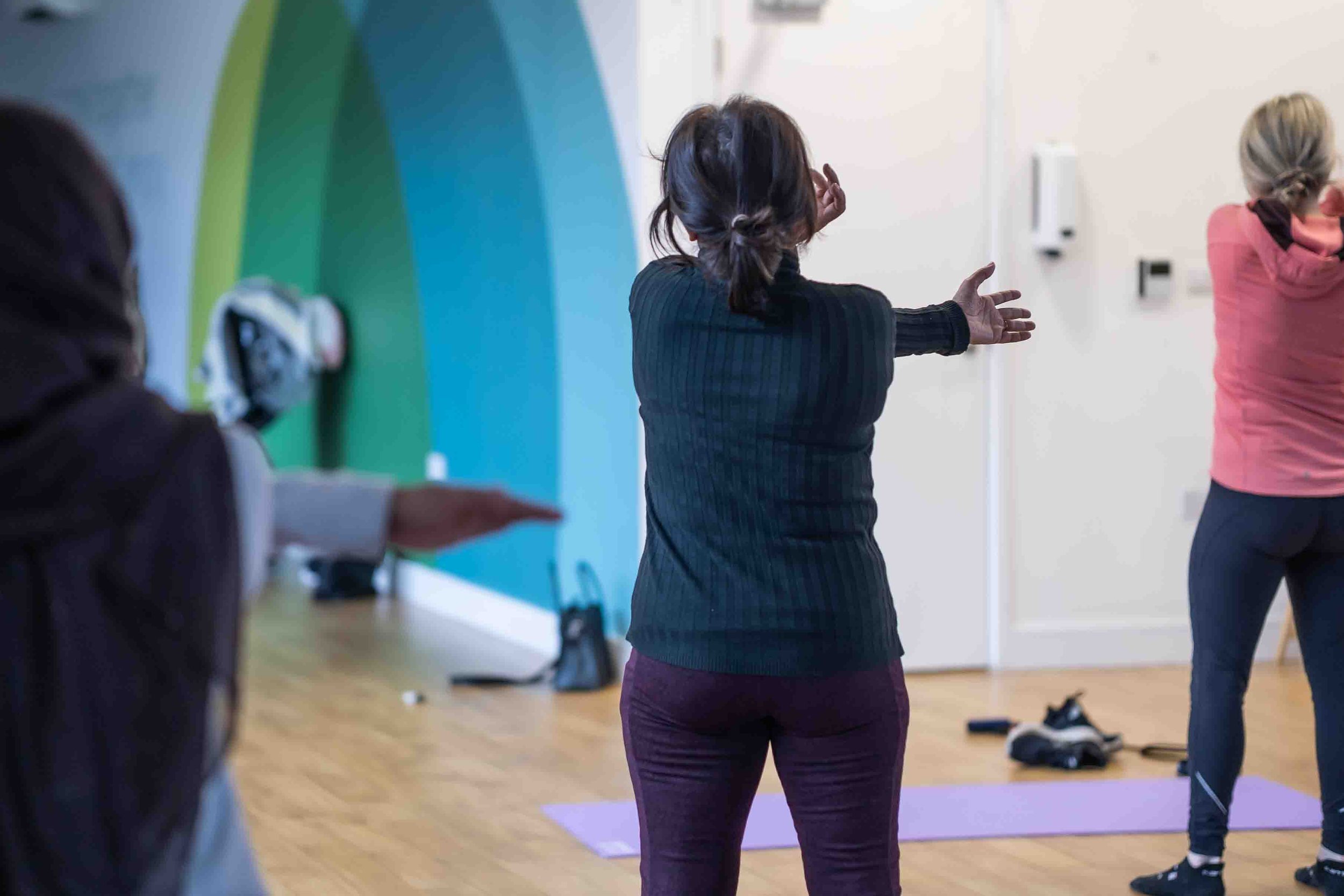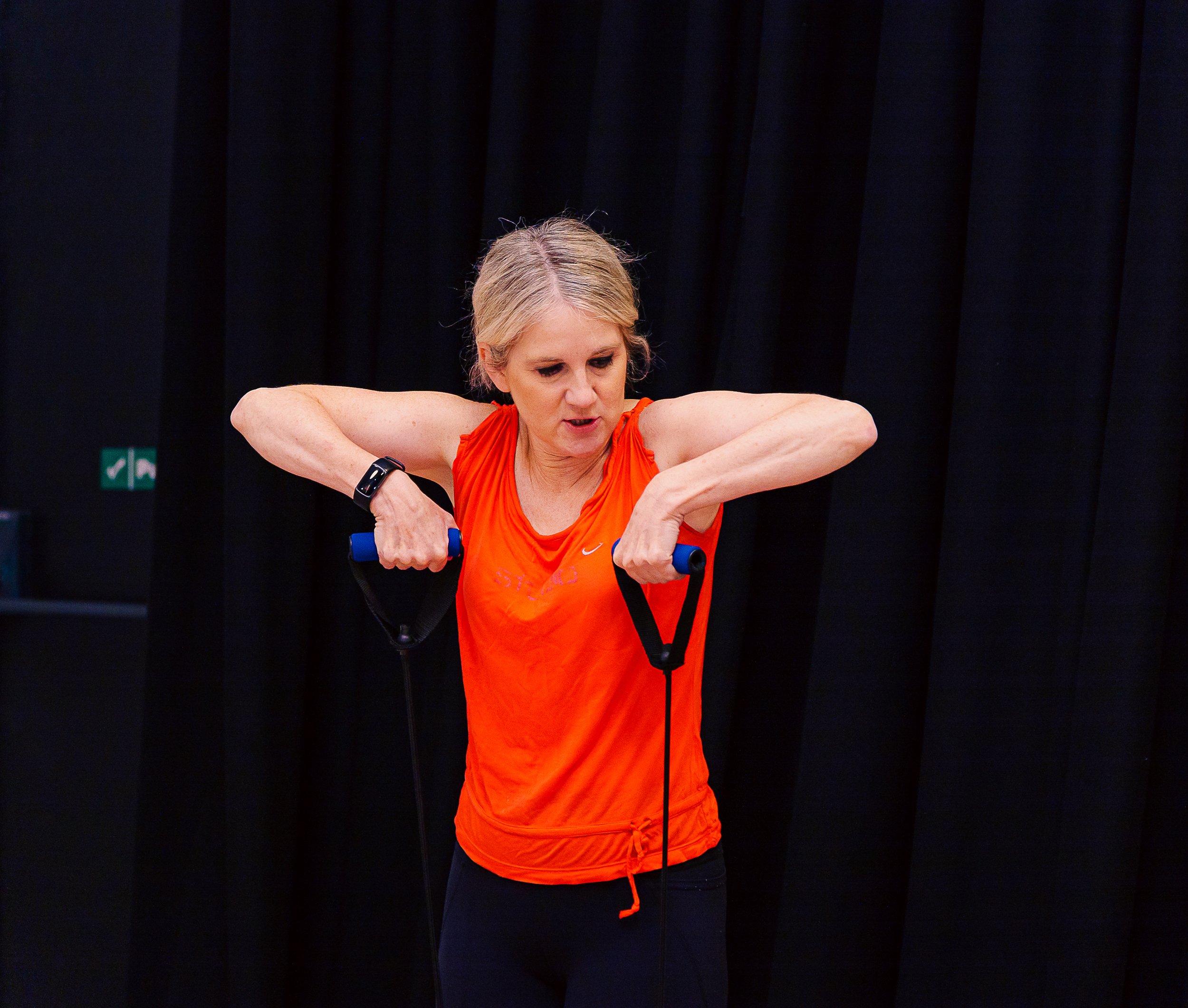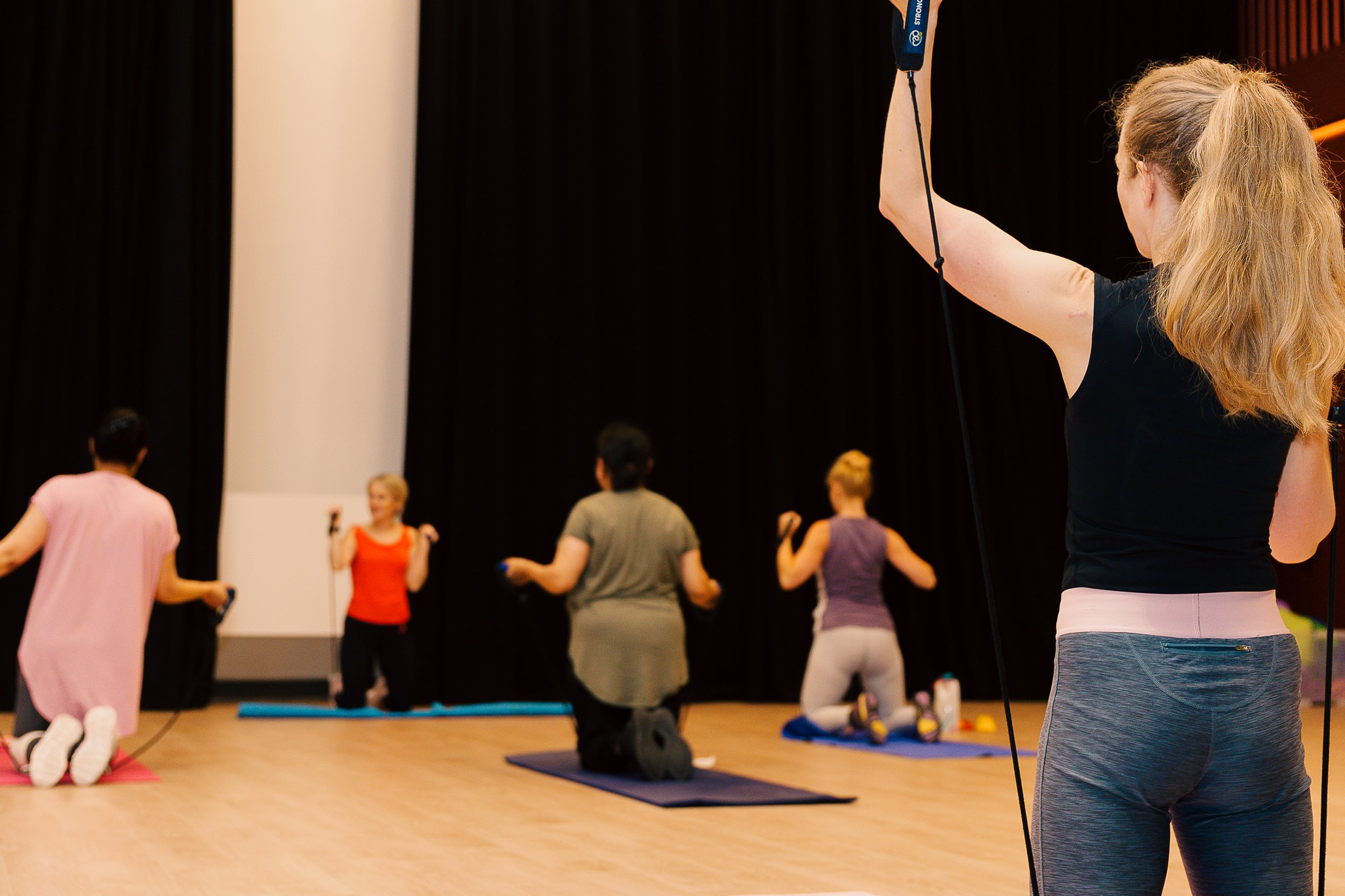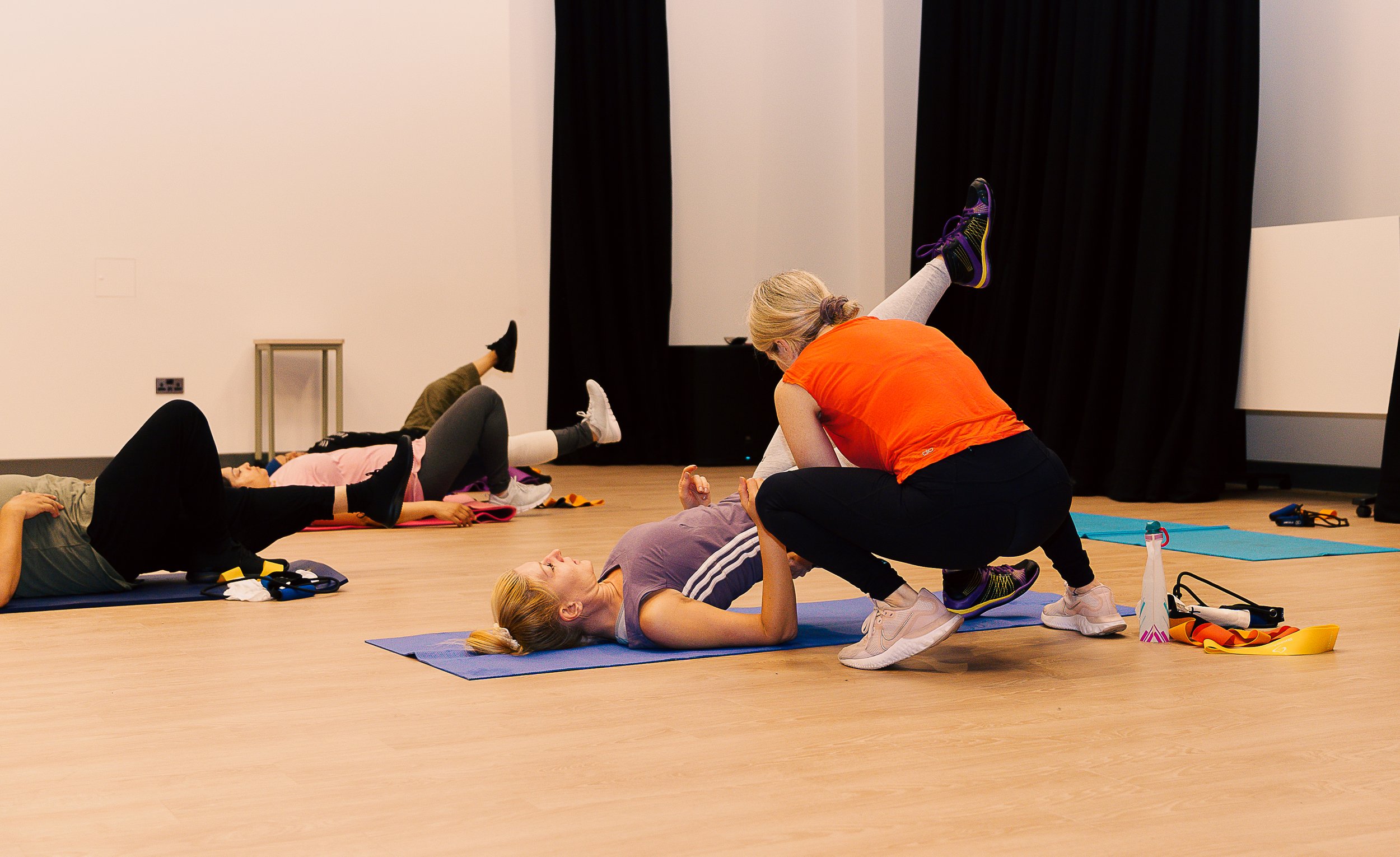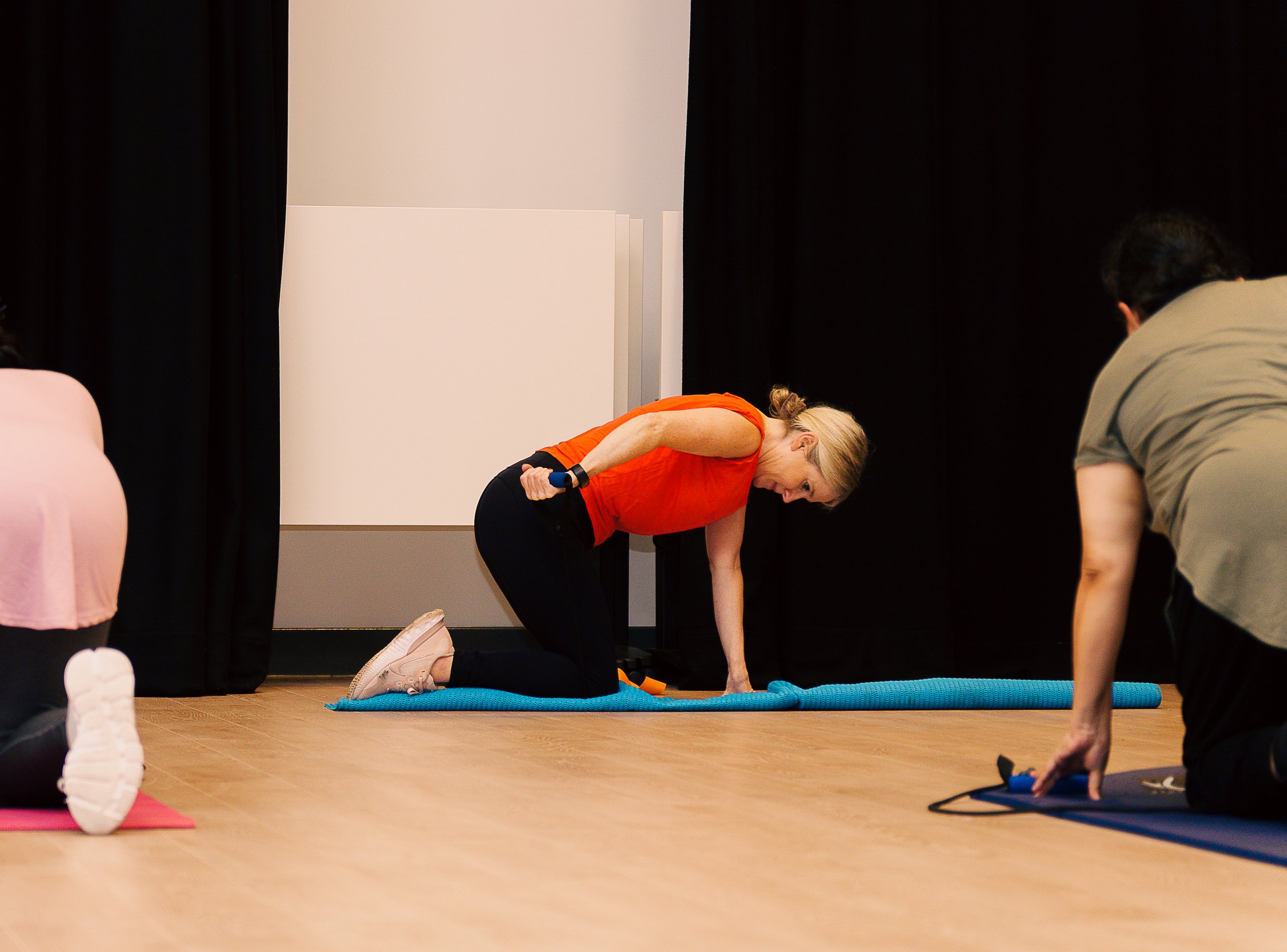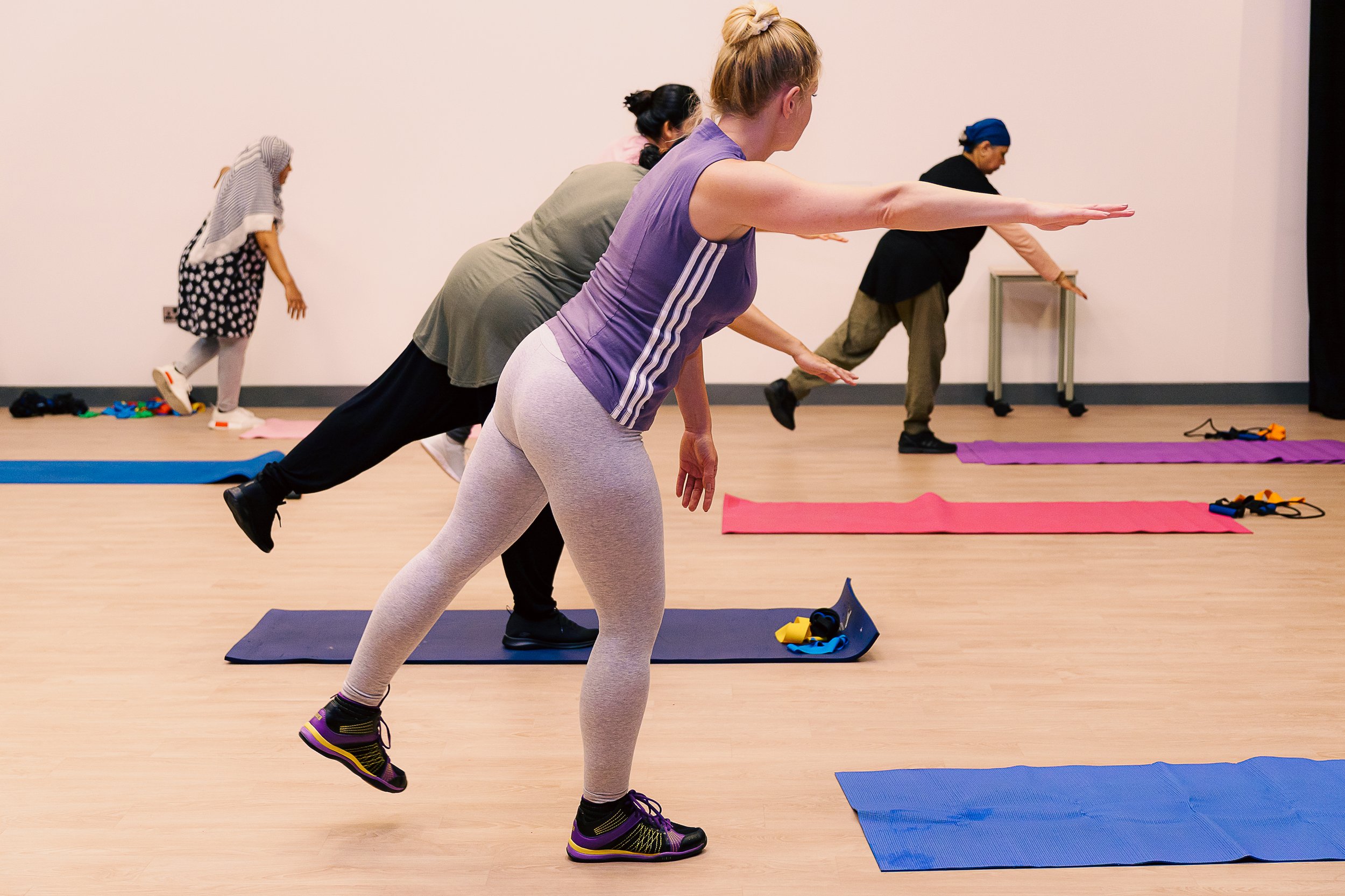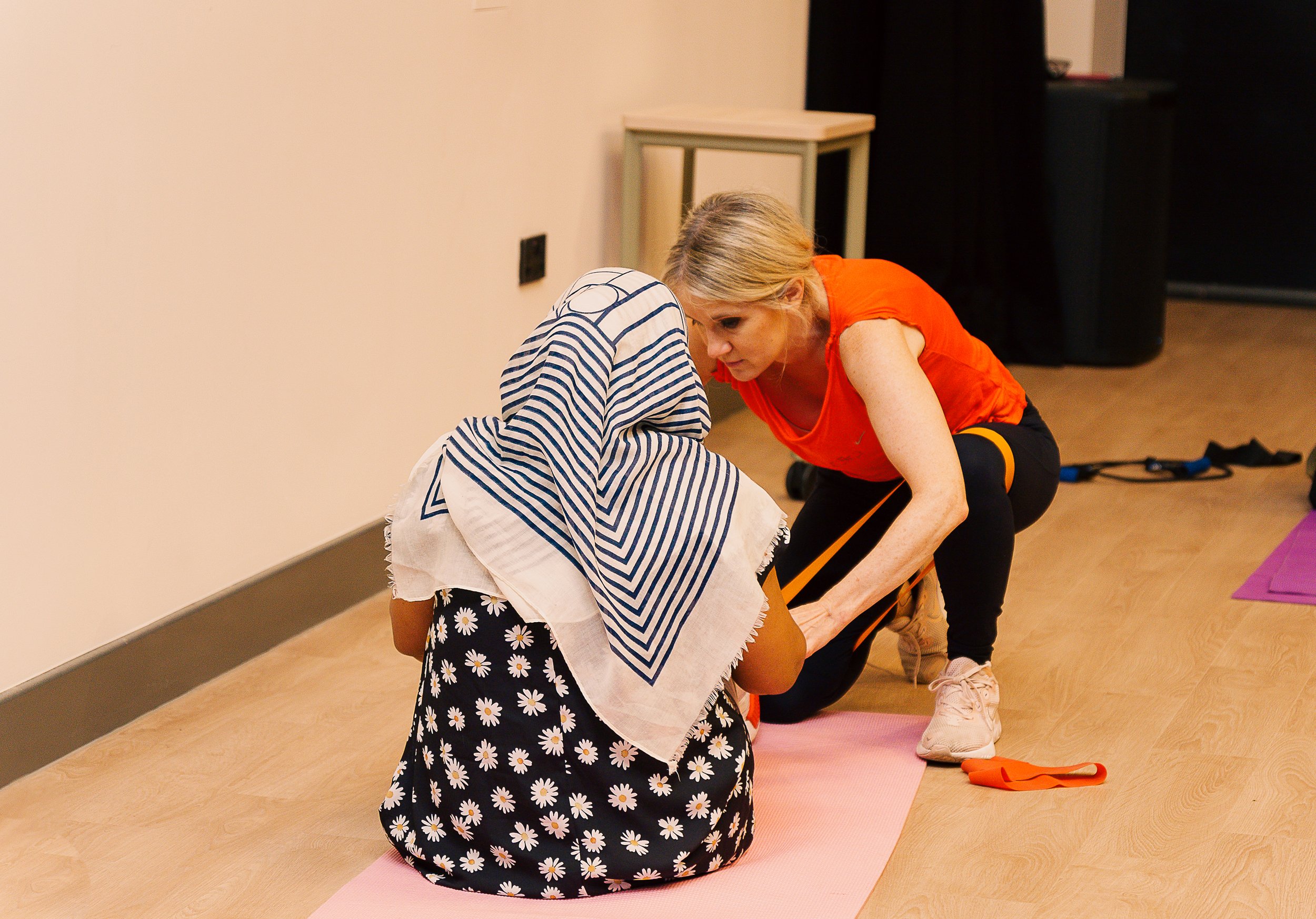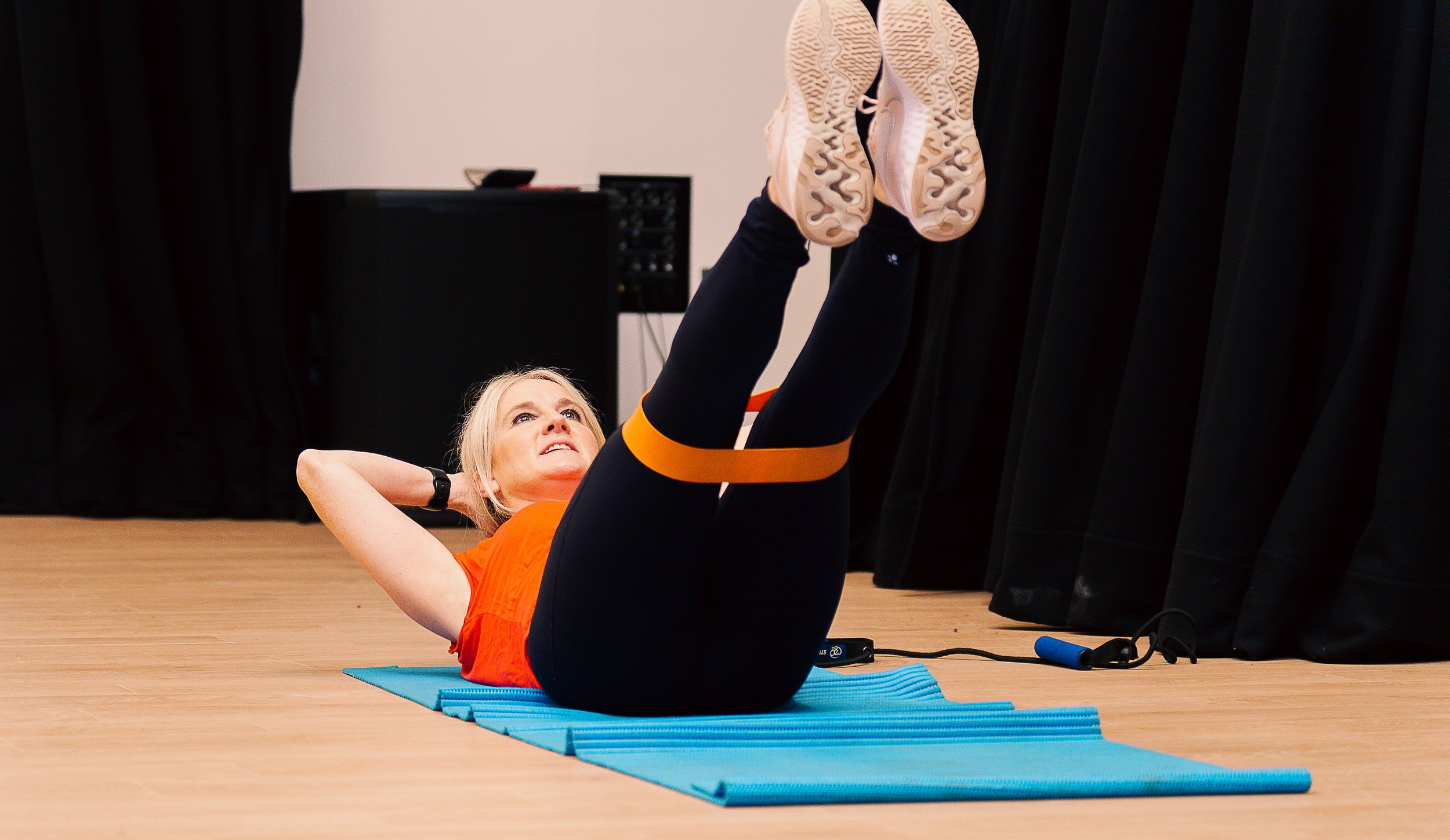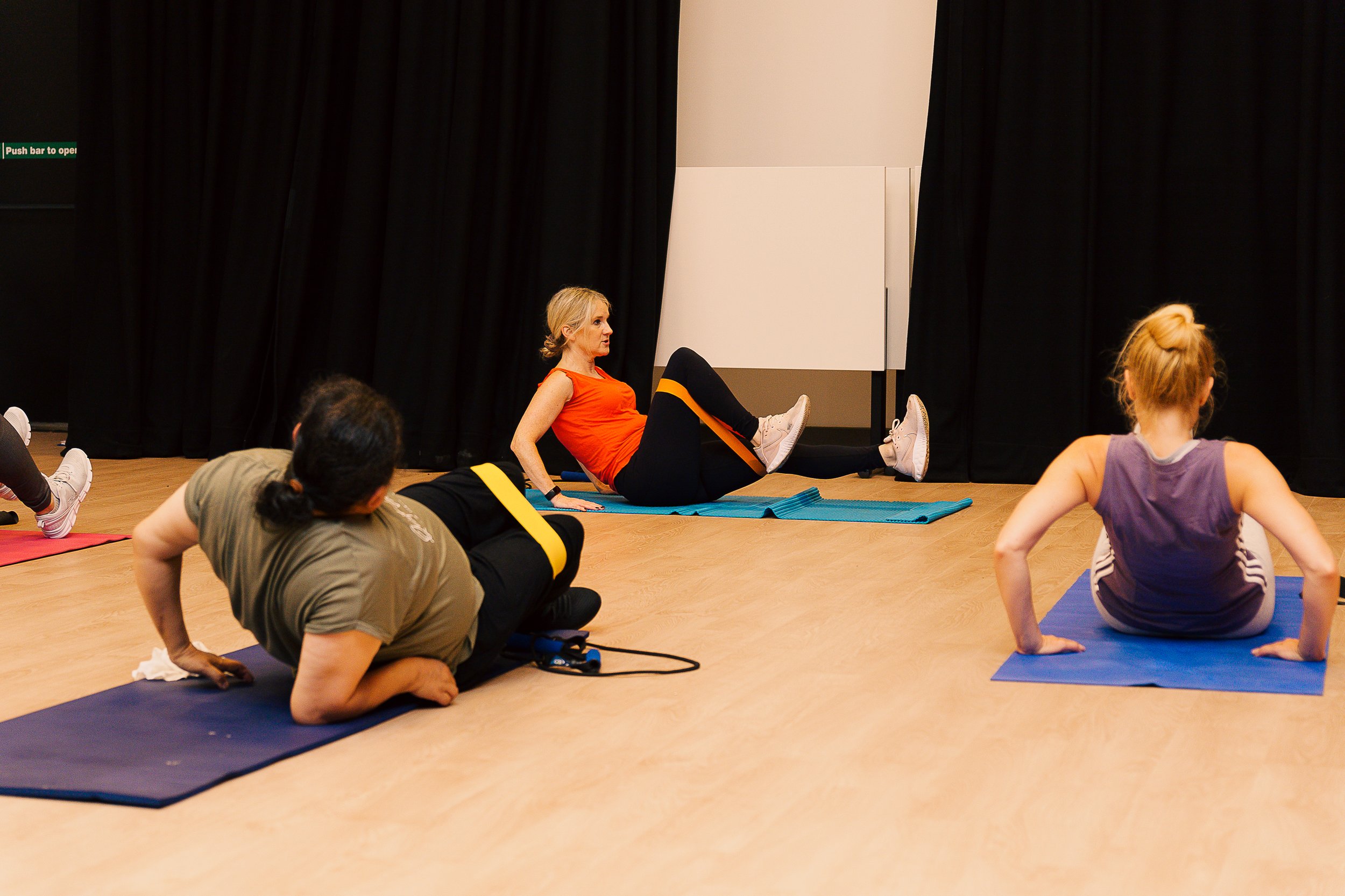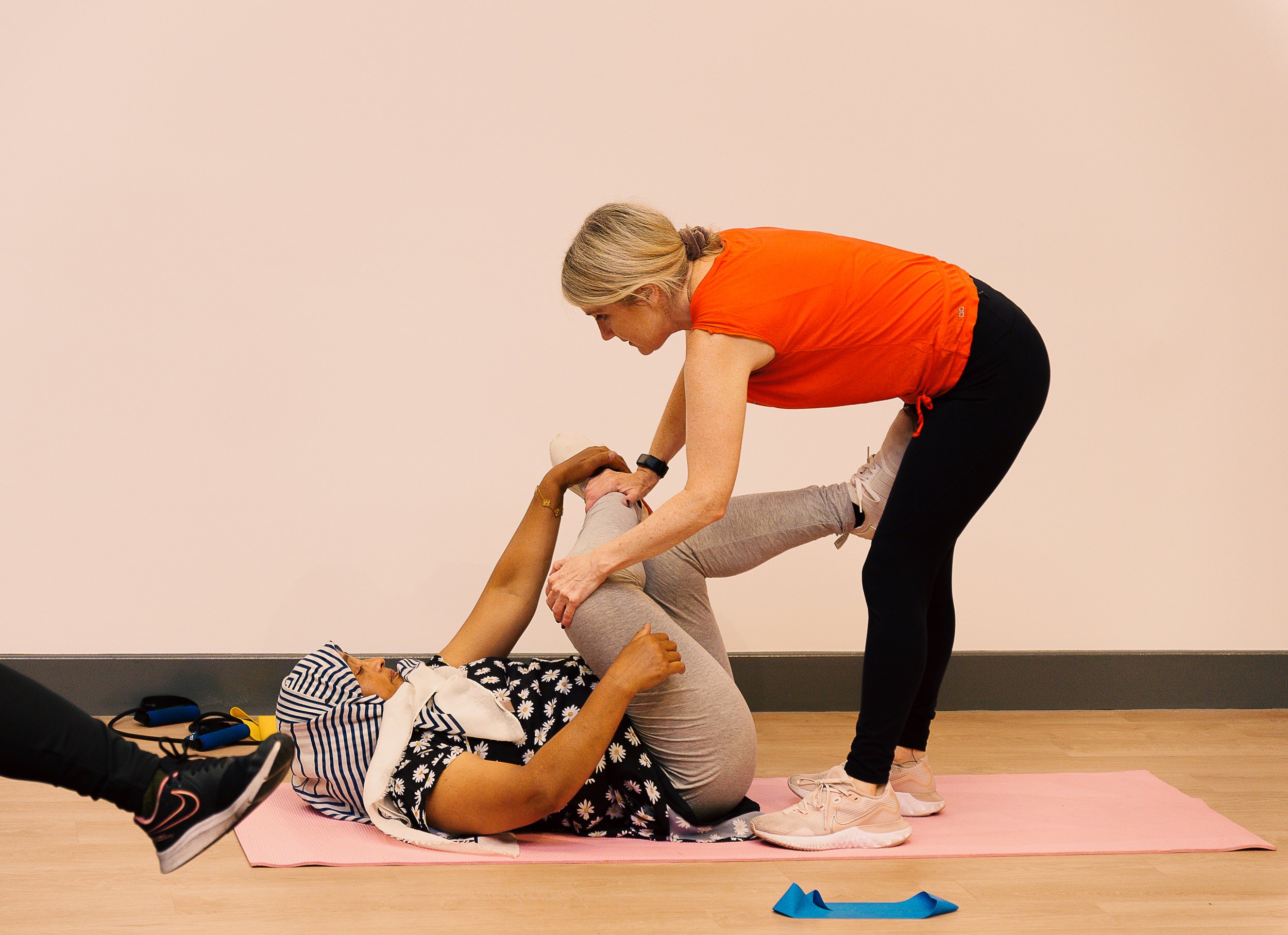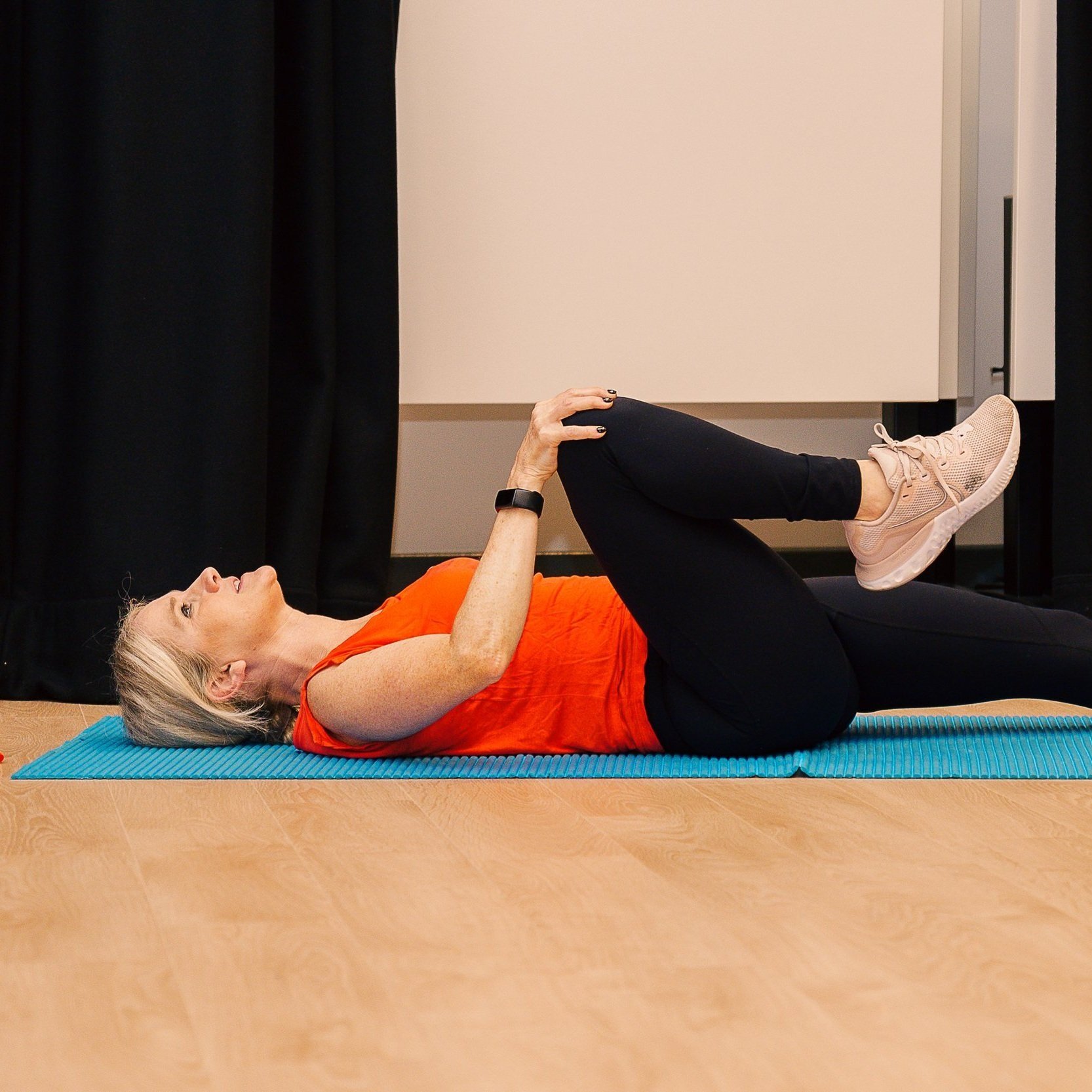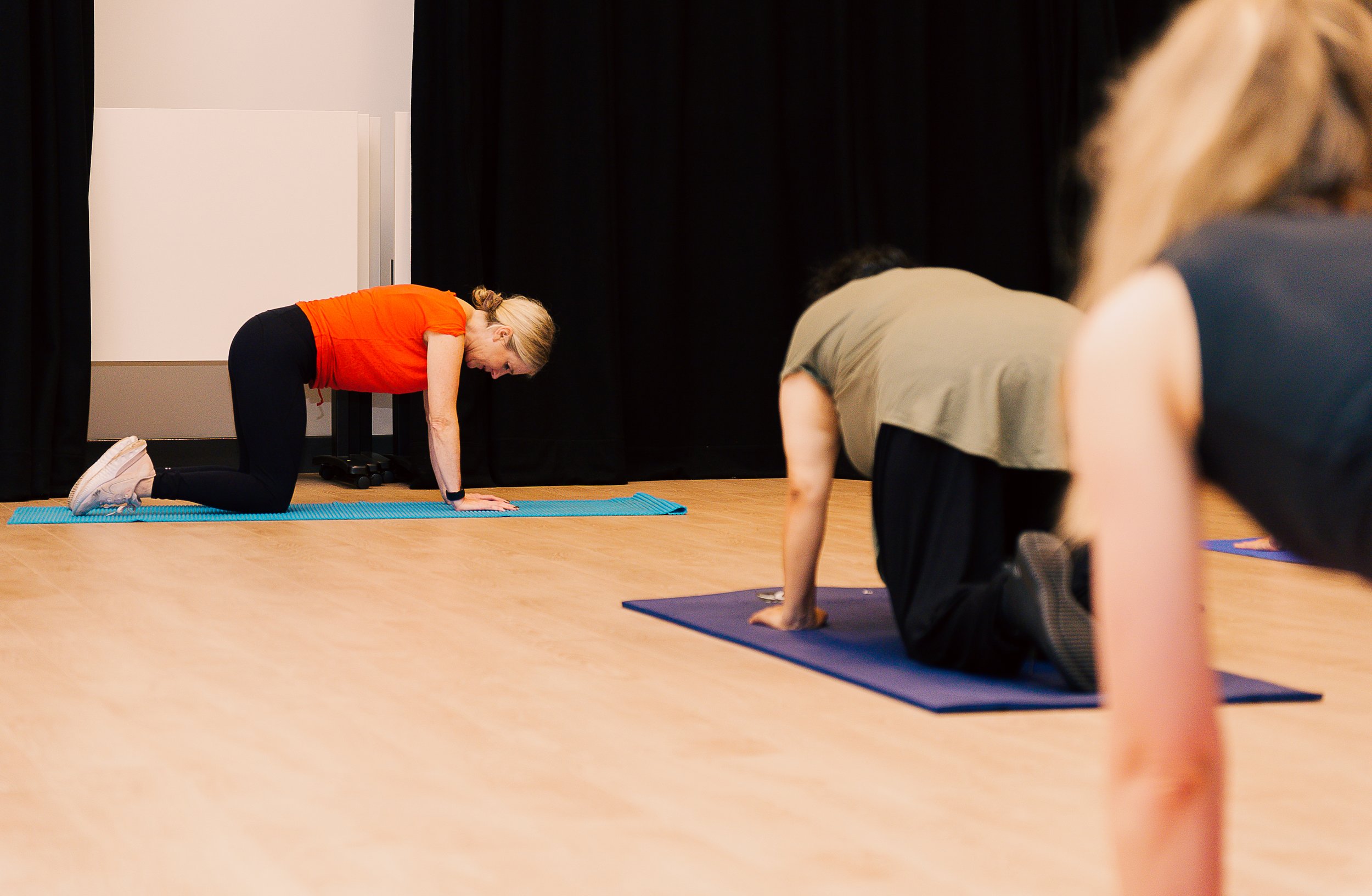MOVE AND STRETCH
Trapped in Zone One featured in Sport England’s Uniting the Movement, their 10-year strategy that aims to transform lives and communities in England through sport and physical activity.
Exercising for free in Tower Hamlets – what you need to know
We have been awarded funding from the Sport England to provide Move and Stretch group exercise sessions.
This programme is open to females aged 18 and over from diverse ethnic background living, working, and studying in Tower Hamlets. Sessions will improve fitness and activity levels in weekly in-person group exercise class, led by qualified fitness instructor Laura Williams.
These fitness sessions are FREE to attend: online registration and Physical Activity Readiness Questionnaire (PAR-Q) form are required for enrolment and need to be emailed to us prior to participating.
During September in Tower Hamlets, Laura Williams will host weekly fitness session. Inspirational and inclusive, this community-based class will include Pilates and strengthening exercises, suitable for all fitness levels.
Day and Time: Wednesday | 10:00-11:00, Aberfeldy Practice, 19 Aberfeldy Square, E14 0XA
Cost: FREE
PLEASE NOTE: YOU NEED TO WEAR TRAINERS AND BRING YOUR OWN MAT AND A WATER BOTTLE TO THE CLASS
What to expect in the sessions:
Exercise quick fixes. What you can do at home if you have just five minutes to spare.
20-minute tone-ups. Each week, we will spend 20 minutes each session on those typical trouble spots, targeting long-forgotten core muscles and exploring the best upper body exercises.
Al fresco exercise. Each week we will spend some time exercising outside (weather permitting). Exercising outdoors is good for our mental health, and means we get to perfect our walking technique!
Focus on flexibility. Dedicating a small amount of time every day to stretching can help prevent aches and pains, as well as enabling you to relax. At every session we’ll explore the best stretches for you, and how to do them at home.
Meet our instructor Laura: “It’s fantastic for women to have the opportunity to come together in this community exercise class.
Motivating yourself to maintain a good level of fitness can be challenging with work and family commitments, so meeting weekly with other women who share similar goals, and experience similar barriers to achieving those goals, is motivating, and reassuring.
In these sessions, we always enjoy a good workout, as well as covering topics like weight management, exercising after having a baby and staying active when you’re busy.”
What participants are saying:
The sessions have been a success already.
Iman, a regular Move and Stretch participant said “It was a great to attend the session, try out exercises and use equipment (that I've been intimidated by) correctly. Laura (instructor) was great in hearing our stories and fitness queries and adapting the workout routine and tailor to our needs.”
Rahana, “I like all the clear instructions. It made the class easy to follow.”
Layla, “The level of attention and supervision makes it feel more like a one-to-one rather than a group class!”
Mel, "The class encourages me to get out and move my body, and also helps to lift my mood."
Bushra, "The class is helping me improve the structure in daily life, and it's improving my health and fitness."
Asia, “The sessions has been helped me because it is for females only, female led and I feel more confident.”
What to wear
We recommend you wear clothing you are comfortable in that allows you to move freely, such as leggings, joggers, t-shirts, and sweatshirts. Jeans and skirts are not suitable.
Please wear supportive trainers.
You do not need to bring any special equipment, but we recommend bringing your own mat, a bottle of water and a sweat towel.
Why Exercise?
If a local, friendly, effective and free fitness class on your doorstep still isn’t enough to get you signed up, there are some great health reasons to get your winter sweat on
Yes, as winter starts to set in and temperatures start to drop, the temptation to stay at home grows - and you’re not alone. Research from the University of Essex found that levels of exercise decrease in winter months and, perhaps unsurprisingly, time spent sleeping and sitting down increases.
But did you know:
Exercise can alleviate symptoms of depression and anxiety
For some people, winter brings about a condition called seasonal affective disorder, or SAD for short. Sometimes called winter depression, the condition’s symptoms include:
Feeling lethargic (a lack of energy)
Difficulty concentrating
Persistent low mood
Finding it hard to get up in the morning
The NHS website suggests one of the main treatment for SAD is lifestyle changes, including exercising regularly.
This is because physical activity releases chemicals called serotonin and dopamine, both of which are proven to improve your mood. In turn, a better mood can lead to less lethargy and an increased sense of ‘get up and go.’
Exercise can help you sleep better
As the days get shorter, the changes in sunrise and sunset can lead to disrupted sleep. This is due to something called our ‘circadian rhythm.’
A circadian rhythm is the 24-hour cycles that our bodies work from. Think of it as your body’s internal clock. Your body has natural ‘alarms’ set, such as getting up in the morning.
Our rhythm can be affected by many things and in winter, shorter days and longer evenings distort our body’s alarms.
So, when it starts getting dark earlier, our bodies start preparing for sleep a lot earlier, leading to poorer quality sleep and increased lethargy.
But exercise can help!
Studies suggest that just 30-minutes of moderate aerobic exercise can improve sleep quality that very same night.
Exercise keeps your social life active
Summer is synonymous with socialising, but winter’s cold and dark nights can lead to more people staying at home alone.
The Campaign to End Loneliness estimates that “45% of adults feel occasionally, sometimes or often lonely in England. This equates to twenty-five million people.”
Group exercise and other group-based activities are a great way to alleviate feelings of loneliness and isolation. Initially you may feel apprehensive about joining a new group, but a warm welcome, a good workout and friendly faces will soon become an invaluable part of your weekly routine. Working out in a group setting not only feels good but builds a sense of community and is a great place to meet new people.
A survey by EMD UK, the national governing body for group exercise, found that while getting fit and losing weight were the top reasons most people gave for taking part in group exercise, social aspects also ranked very highly.
Classes are great way to spend time with family and friends in fun environment, or even meet new friends too.
Exercise helps to combat stress
The increased cost of living has not only changed the day-to-day spending habits of the population, but it has also negatively impacted peoples’ health.
According to The Health Foundation, “constantly worrying about having enough money to pay bills or buy food can also lead to stress, anxiety and depression. It should also be remembered that stretched finances and the concerns that stem from them are far from limited to only low-income families.
This impacts on people’s health both in the short and long term, where stresses can contribute to the build-up of psychosocial problems over time. In turn this puts a strain on people’s bodies, resulting in increased stress, high blood pressure and weakened immune systems.”
EMD UK research found more than 40% of respondents said they enjoyed group exercise because it was fun, while a third said that they sought stress relief or relaxation from taking part.
Our Move and Stretch project has been recognised by StreetGames as Highly Commended for their Us Girls Award 2024 for Engaging Women and Girls in London & Southeast
If you have a question, contact us:
This project is funded by,


